#but its anti war in the sense that this sucks shit and it was pointless (except for protecting oil fields)
Explore tagged Tumblr posts
Note
You may have infected me with American (i have a sudden craving for burger)


hehehe did you sense me eating one when we joined earlier bc i definitely was going to make a joke about it
#manifest destiny part 2 except this time im not going to devastate local inhabitants in pursuit of expansion#just making people eat burgie#hehe#hiso tag#answered#kimjunnoodle#also all of those are from facebook i just googled guns american flag and eagle lmaooo#not my true feelings obs im currently watching an antiwar film#well it's not really but its based off a book this dude write about his experience in the gulf war#but its anti war in the sense that this sucks shit and it was pointless (except for protecting oil fields)#((which i also hate)) listen i not a defender of the us anything especially army
3 notes
·
View notes
Text
Disinterpretation
I finally finished the Sarah Z video about “pro vs. anti”. It’s pretty long, and I ended up watching it in chunks over several days, but I think it’s worth watching, especially if you’re sort of partially connected to online fandom, but not enough to be aware of all the lingo.
As I expected, the whole thing was vague and confusing because the people involved in the conflict made it vague and confusing. In theory, the full terms would be “pro-shipping” and “anti-shipping”, but it seems like it’s more about particular kinds of ships that could be considered controversial. But that’s a slippery slope, and apparently the whole conflict mutated into both sides deciding that every hypothetical relationship between fictional characters is either equally valid or equally dangerous.
Long story short, it’s just purity culture, which was what everyone on Tumblr was calling it around 2012. But now, if you’re a sane person who genuinely asks: “Who gives a fuck about Voltron?”, these people will jump your ass and accuse you of being on the side of their enemies. “Children have died over the importance of Lotor/Hagger! Your callous indifference proves that you yourself must have murdered children!”
I think what Sarah Z really hit upon in this video was that media consumption has become so ingrained in our culture that people feel like it has to go hand-in-hand with our morality. That is, it’s not enough for me to watch Star Trek, I have to justify Star Trek as evidence that I’m a good person. Maybe this is where the expression “guilty pleasure” comes from. Conversely, it’s not enough for me to not watch Dr. Who, I have to somehow convince everyone that Dr. Who was invented by the devil.
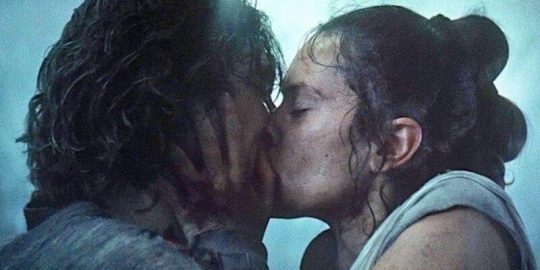
I’m pretty sure the Reylo ship has a lot to do with this, since it’s kind of understood to be a dark, problematic concept, and fans either embrace its flaws or recoil in horror because of them. Star Wars itself is a dumb story about space wizards, so people try to give the debate more weight by linking it to freedom of self expression and/or enabling real world harm. Suddenly it’s not enough to just think two actors would look cute making out instead of fighting. Now it’s this battlefield for the soul of civilization or something.

I grew up in the 80′s, when “concerned parents” and grifters would accuse the Smurfs and metal bands of promoting satanism and witchcraft. I used to hear stories of teens going out into the woods in the middle of the night to do occult stuff, and all I could ever think about was: “Why would anyone bother wandering out in the woods in the middle of the night?” Which is why “concerned parents” turned their attention to things that were closer to home, like Saturday morning cartoons. It had nothing to do with the content; it was just about finding a safe, accessible target for their hysteria. Some people want to go on a crusade without leaving the house, so they pick a fight with Papa Smurf instead of confronting the real evils in the world. Even as a kid, I knew this was a con, because I’d watched the show for myself and knew it was too saccharine to be threat to anyone.
The pro/anti folks have tried to disguise this with a lot of terminology. I wondered why they seemed to reluctant to use the full terms “pro-shipper” and “anti-shipper”, and it’s probably a couple of things. First, the word “shipper” is basically an admission that this is pointless bullshit that doesn’t matter, and they’d like to avoid that connotation. Second, they seem to have decided that this goes beyond shipping itself, into practically anything else they want it to involve. It’s all part of the con, which is to make you believe that it’s “us vs. them”, and you can be part of “us” by curating specific attitudes about Steven Universe.
Seriously, “about Steven Universe” is such an incredible punchline. You can make anything funnier by adding those three words to the end of a sentence. “Do not interact if you blog about Steven Universe.” “Hey, what’s up, YouTube, this is SSJ3RyokoLover69, and this is going to be kind of a serious video about Steven Universe.” “Mrs. Johnson, the results of your biopsy are in, and I have some bad news about Steven Universe.” It’s a fucking kids show. “Oh no, all the characters look like the characters in all the other kids shows!” Yeah, that’s because it’s a kids show. Marvin looks like Garfield, this isn’t new.
The common denominator here seems to be that both sides try to wrap themselves in the flag of vulnerable groups: impressionable minors, trauma survivors, harassment victims, etc. The “pros” want to protect those people so that they can feel free to explore weird subject matter on their own terms, and the “antis” want to protect the same people from being exposed to weird subject matter that they might not want to see. It’s all about establishing a moral high ground. Back in the day, it was called “sanctimony”.
But people get roped into this, because at their core, people want approval, and this stupid conflict offers them a sense of community. As long as you support the cause, whatever it may be, you’ll have this online friend network that appears to support anything you do. But if you deviate from their norm, you’ll be cast out. Does this sound familiar?

To use a more familiar example, I still sometimes find people clamoring about Gochi vs. Vegebul. I’ve never understood this, because both ships were canon, and I never saw much direct evidence of a war between them, but people would still talk about how crazy the Vegebul shippers were, and how crazy the Gochi shippers were, and it was like some huge thing going on just over the hills. It’s the same idea, since the idea that you could like both or neither never seems to occur to anyone involved. I never gave a shit, because I used to see the same dumb agendas in the Harry Potter fandom.
Okay, so let me take you back. It’s 2005 through 2011, and I’m hateblogging all seven Harry Potter novels, because fuck you, that’s why. The funny thing I encountered was that occasionally fans seemed to want to pretend like my bashing of certain characters was proving them right somehow. They were like “See? He hates Ron Weasley too! That proves that Seamus Finnegan is the coolest guy ever.” The Slytherin stans would do this all the time, because I would constantly take the piss out of the Gryffindor characters for being self-important dopes. I think they just liked hearing it from an outside perspective. But I had to keep reminding them all that I hated all of them. Every character from Harry Potter sucks ass. Voldemort was my favorite, but only because he was the one guy who wanted to kill all of the others. But he sucks too because he failed.
And the shippers were the same way. I’d say something shitty about Ron, because Ron sucks, and some smartass Joss Whedon fan would be like “Yes! Boost the signal! That is why Harry/Hermione is the best ship!” And I’d be like “No, Harry and Hermione suck at least as bad as Ron does. They’re all terrible and I hate them.” I really do think there was some sort of Stockholm Syndrome going on with Harry Potter books, where everyone secretly knows they suck, but the fans sort of latch on to one or two characters and go like “Well, he’s not as shitty as the rest.” Like finding spaghetti in the trash and picking out the meatball with the least amount of lint on it. Then you’d go and start a flamewar with some other starving person over whether your meatball is shittier than theirs. This is what people mean when they say to read another book.
Anyway, the big thing I picked up from Sarah Z’s video is “disinterpretation”, a term coined by MSNBC columnis Zeeshan Aleem. The Twitter thread is worth a read, but the short version is that he once remarked that a Julia Louis-Dreyfus routine wasn’t very good, and someone got mad at him for insinuating that women are incapable of being funny. They just took his dissatisfaction with one performance by one comedian as being a universal condemnation of women comedians in general. And this sort of thing is all over the internet. Everyone sees what they want to see and then they take it as permission to overreact.
I ran into this myself a while back, because someone saw who I interacted with on Twitter and decided that they’re all bad guys and if I have any interaction with them, then that makes me a bad guy too. At the time I tried to play it cool, but the more I think about it, the more it ticks me off. And over the course of that conversation, it was said that I don’t talk about myself much, and that’s kind of funny, because all I ever do on social media is write long-ass blog posts like this one. I don’t expect anyone to memorize them, or even read them all the way through, but when I write all this stuff and someone goes out of their way to say they don’t know anything about me, the message is that they just didn’t pay attention to what I was saying, and they didn’t bother to try.
So I’m a little jaded from that, because I got called out for a bunch of stuff I didn’t even do or say, and apparently that’s just a thing that happens. People will reject you for completely arbitrary reasons, not because of anything you actually said or did, and you’re left thinking you made some terrible mistake. Except, no, I’ve seen it happen to other people, people a lore more conscientious than I am, and if they can’t satisfy the bullshit purity standards, then I never stood a chance. If the game is rigged so I can’t win, then I’m not going to play.
And it’s that same condition that probably draws people into these online holy wars, because if you declare yourself for the pro or anti side, at least then you’ll have a posse backing you up. Only they don’t support you, they support your willingness to support them. Once your commitment to their agenda wavers, even in the slightest, they will turn against you.
Sarah Z suggests that both sides of the war drop the pro and anti terms, since they lost all meaning long ago. But that just invites a new set of useless terms to perpetuate the same cycle. Her more useful advice is for fandom people to broaden their horizons. She got a lot of flak for tweeting “Go outside” once, but the ironic thing is that it’s sound advice. I had lunch with my mom yesterday and it was just nice getting away from things for a while. People need to do that more often, and unfortunately it feels like it’s harder to do than ever before.
But “go outside” isn’t just a literal thing. It can mean going beyond your usual haunts, reading the same books, watching the same shows, rehashing the same conversations. I think the reason this stuff always revolves around “shipping” is because there seems to be this deep-seated compulsion to pair fictional characters off like this, and for a lot of folks it’s the only way they can consume a story, so they do. And they do it lot, and there’s a lot of them, and they do it the same way every time, and lo and behold the same old conflicts start up. So maybe “go outside” should mean “go outside of that cycle once in a while.” Just a thought.
10 notes
·
View notes
Note
I was hoping you would be able to help me form a response when my family says they're sick of hearing of systemic racism and white privilege because THEY have had to work for everything and believe nothing got handed to them (true in the way they're thinking, but you know what I mean).
Welp. First, I applaud you for taking the initiative to engage in difficult conversations with your family, since the only way embedded racist ideas are going to get confronted in white society is if racist white people hear it from their friends and family. They are going to cheerily ignore protestors, academics, newsreaders, popular culture, and certainly politicians who say anything to the contrary, but it’s harder to ignore and brush aside when it’s coming from people who are directly within your own family group. They can still then ignore it, but at least you’re trying to do something that is not at all fun but which is deeply necessary, and good for you.
First, there are a few things for you to consider. Is this a case where they actually don’t know the difference, but are willing to learn, or is this essentially sealioning (where they act like they don’t know the difference, but they absolutely do, and put the emotional labor on you to extensively define and explain and educate while never intending to change their stances on anything). If it’s the former, then there is some point in engaging in dialogue with them. If it’s the latter, it’s a giant emotional trap that you are within your rights not to engage with until they signal that they’re willing to engage productively. You don’t have to educate someone who is categorically unwilling to be educated (especially when it’s often deliberate ignorance). As people like to say, Google is free, and it’s their responsibility to take the first steps to change. You can continue to talk with them, but yes, that is contingent on them actually standing a chance of listening to you and not just you wearing yourself out on something that they don’t want to actually hear (because it threatens them and makes them feel Personally Wrong, and white people don’t like that).
There have been various books written on why it’s so hard to talk to white people about racism, which you may be interested in checking out, not least the book "Why I’m No Longer Talking to White People About Race” by Renni Eddo-Lodge. Ibram X. Kendi has also written “How to Be An Antiracist,” one of the bestselling books of this summer, either of which would be useful either in shaping your own arguments or (if they’re receptive) giving to your family. Once again, this is contingent on them signalling that they’re actually willing to listen, and not just to make you do pointless emotional labor. These books are probably available from your public library (though there’s probably a waitlist) or in other easily available formats.
Next, it’s a basic tenet of an anti-racist education that white people have never had to do this kind of reckoning, and thus get whiny, defensive, guilt-tripping, and “it’s not about ME I’m a GOOD PERSON” when it comes up. This also rests on the damaging and deeply intertwined effects of racism and classism, which has to be understood if you’re going to talk about it. One of the greatest tricks that racist capitalism ever pulled is convincing poor white people that they had more in common with their filthy rich white masters (people whose way of life will never in a thousand years be anything like each other’s) simply because they shared the inherent racial “purity” of being white. There have been political studies written on how poor/undereducated/working class white people have become such a reliably Republican constituency, because they have been successfully manipulated to believe that the white overlords are their “people” and they will constantly vote against their own economic, social, and cultural interests in favor of enriching amoral white demagogues who beat the populist xenophobic drum. Then they blame black and brown people for society’s ills and for the reason that they stay poor, rather than the rampaging oligarchs awarding themselves massive tax breaks and billion-dollar bailouts and refusing to extend unemployment benefits in case people “make too much money” from not working, just to name the most recent example. They are so poisoned on populist politics and white supremacy, which assures them that they’re better than anyone else by virtue of being white, that they actively attack politicians and policy platforms and other social welfare initiatives that would materially improve their own lives as “un-American.” This is maddening and sometimes baffling, but it’s how it works. Whiteness trumps all, currently literally thanks to the Orange Fuhrer. Problems in life are the fault of the Other.
This isn’t to say that poor white people are “dumb” and just unable to realize it, because they’re caught in a system that has done this literally from the start of America. In the early 17th century, indentured laborers and slaves in the American colonies were in fact more likely to be white. (The word “slave” comes from “Slav,” since that was the predominant ethnicity of slaves in medieval Europe; i.e. white eastern Europeans.) But even despite the fact that they were unpaid laborers, they were still white and thus recognized as human by their white masters, and thus when slave ships began arriving, it was easier for everybody to simply outright demonize and dehumanize the black African slaves. The poor white indentured servants got to feel better than the black slaves simply for the fact of their whiteness. Their lives obviously sucked, but their whiteness was in fact a mitigating factor in the suckiness that it involved once it was easier to use “animalistic” black people. And we wonder why America can’t ever confront its racist history properly. As Kendi calls it in his other book, it is stamped from the beginning.
As it has been put before, white people can and often do have difficult lives, because late-stage capitalism devours its workers no matter what color they are, but their whiteness isn’t a factor in why their lives are difficult. They will never encounter racial prejudice, race-based hate crime, discrimination for housing, education, employment, bank loans, daily microaggressions and identity erasure, constantly racist tropes in the media, politicians fingering them as everything wrong with America/the world, casual prejudices or assumptions even from close friends, assumed criminality based just on their race -- etc etc. The list goes on and on. Just because you have a hardscrabble economic background does not mean that your life has been made harder by your race -- because if you’re white, it hasn’t. (And as noted, poor white people have consistently voted for megalomaniac white men who don’t give a shit about them but promise them that everything is fine or should be better for them because of their whiteness, and then blame minorities for being the source of their problems.)
I honestly wonder if racism would still be such a problem in America if we had a remotely more equitable economic system, because when you’re well off and have your basic needs consistently met and don’t need to worry that you’re one paycheck away from disaster, it’s harder to constantly be paranoid that your differently colored neighbors are stealing everything from you and the cause of all society’s ills. The historian Patrick Hyder Patterson wrote a very interesting book on material culture in Yugoslavia in the 20th century, where he basically argued that despite the spectacular collapse of the federation into the Yugoslavian wars of the 90s, things didn’t really go to hell until after the economy crashed following Josip Broz Tito’s death in 1980. While there were obviously ethnic fault lines and conflicts between Serbs, Croats, Montenegrins, Bosniaks, Albanians, etc, when there wasn’t any money and any jobs and everyone thought everyone else was to blame, THAT is when the whole thing blew up into a genocidal civil war clusterfuck. Food for thought.
This is why people talk about economic justice and racial justice as going hand in hand. When there is a scarcity of resources and no social safety net, people are obviously more inclined to look for scapegoats and to blame someone for taking their entitlement (while still somehow refusing to blame the billionaires and corporate oligarch who are ACTUALLY stealing from them). They indeed actively resist any attempts to make their own lives better as being “socialist” or “un-American” and take pride in the fact that there’s absolutely jacksquat nothing (until of course, something like the coronavirus pandemic hits and it’s revealed just how many of us were always one missed paycheck away from disaster). Then when they need government assistance (while disdaining the government as tyrannical the rest of the time, unless it’s Trump’s actively tyrannical lot, but hey, we don’t have time to unpack all that) it’s still shameful and something they shouldn’t be using, instead of their basic entitlement to a decent life.
This country is poisoned on a lot of toxic beliefs, but this is one of the deepest-running one, and which will always get in the way of poor white people dealing with racism: their lives suck, but they have ALWAYS been told that despite that, they’re still better just for being white, which is their consolation prize for supporting white populists who actively rob them, and they haven’t even always consciously registered that. They just feel that if they’re “fine,” even if they’re not fine, then black people are just malcontents and criminals who can’t hack it. In 2016, there was a lot of ink spilled over how poor white people felt a sense of economic grievance and being left behind, which was why they voted for Trump, but... Trump was never going to do a damn thing about that??? He doesn’t actually do anything for his supporters except feed them his jingoistic Orange Nazi stump speeches. They voted for Trump to feel vindicated, not to actually improve their lives, and it’s damn clear by now that not only has he NOT improved their lives, he has no desire to do so. He just wants them to cheer for him and feed his ego, not fix any problems.
Basically, racism and capitalism and the American political system intersect in multiple deeply toxic ways to do precisely what you’re talking about; producing poor white people who feel that they shouldn’t be included in the reckoning with racism because if THEY worked hard and they don’t live in a mansion, somehow racism is fake and black people should just shut up and get a job etc etc. This is because poor white people have been systematically conditioned to support white supremacy at the direct expense of their own economic and social interests; it’s terrible, but that’s how it functions. They will never in a million years have anything in common with the (white) ruling class, but they still instinctively identify with them rather than people in their own deprived economic class who are different races or colors or religions. That is how white supremacy has supported the hyper-inequality of the industrial age, and vice verse, and it is one of capitalism’s best functions for survival, so it’s in the interests of the overlords to maintain it. Stop the workers from recognizing pan-racial solidarity based on economic grievance, and compete with each other and blame each other rather than the overarching system, easy!
Anyway. Once again, this is long. But in short, the attitudes your family are exemplifying are a direct result of both racism and classism as they have been deliberately cultivated in the American social and political system, and the interlocking causes and symptoms of both have to be recognized (and acknowledged) before they can get to dealing with that. I don’t know how that will go, and I don’t have an easy shortcut. But I’m glad you’re trying. Good luck.
35 notes
·
View notes
Text
Dear Star Wars Diary,
Today, I went to my fourth and final big screen viewing of TLJ. It was bittersweet because I will likely not be watching this movie in its entirety again until I own it. What follows are some musings I had as I watched it for the last time, in all its theater-experience glory.
SNOKE
I don’t want to get into the whole “Kylo Ren is abusive and a mind rapist beh!” debate because it’s stupid, on several levels.
I just want to make the point: Snoke is the abuser and the not-an-actual-thing mind rapist in this story.
PAIGE and the BOMBERS
On my first viewing, I thought the opening bombing scene was insanity. Like, it was awesome and beautiful, but totally insane. I was seething: “Tallie! What happened to protecting all the bombers?! Also, why did you send so many?”
[Numbers, of course, increase the chances for success. But still. Surely they didn’t have to send ALL the bombers? Leia’s rank over Poe should’ve disengaged the bombers. I don’t know if this is supposed to be addressed with Poe’s cutting off communication with Leia or in an implication that the Resistance squadrons and bombers are simply more loyal and/or responsive to Poe, which is a troubling notion.]
But these are small quibbles in a bigger picture because you know what? The bomber scene is probably one of the most memorable moments for me as a female moviegoer of Asian descent. I’m not someone who actively seeks/looks for cultural representation or diversity in movies of any scale. But I have to admit…I was really moved.
The images: a lone bomber flying toward destruction and glory; a sole survivor with dogged determination and belief in her cause; calm composure in the face of Death.
Ugh. My heart.
I do like Rose, but I was more affected by Paige’s death than I felt I should’ve been, and I think it’s because I felt an added touch of pride. Here, for the film’s first lesson on failure, our teacher is a female character with a face like mine. And she literally has a single spoken line: her comrade’s name.
That is awesome.
LEIA’S LONG LOOKS
-Sensing Kylo through the Force
-Leaving Holdo on the Raddus; watching Holdo die
-Staring down the TIE fighters on Crait (Seriously! I can’t believe those TIEs stayed airborne!)
-Feeling Luke’s death
These are just my personal favorites. Carrie Fisher got some good one-liners in for Leia. But I think she was never more powerful than in her silent acting. It’s just so exquisite. I trust how J.J. Abrams and co. will handle her absence from IX, I really do. That being said, I personally feel like Leia’s death will have to be written in: after her performance in TLJ, it’s just not plausible to have Leia alive but not at the center of the action, nor is it plausible to have her alive and just never show up in the entire movie, to just have her constantly be referred to by other characters.There’s no closure there, and this is a character who demands closure of some kind in this trilogy.
People have theorized on a funeral opening the film or occurring early, and I think this is generally a good idea. It really sucks to have her die off-screen. But under the circumstances, I don’t think it would be wise to have a scene where her ship explodes or something of that nature because it seems unnecessarily cruel but, more practically, could take time away from moving the story forward; everything would have to sort of revolve around that and stall. But if the death occurs off-screen and we open on a funeral, it’s a better jumping off point for the narrative and characters. If Leia’s life in IX was going to be a plot device, particularly as it pertained to her son’s arc, then her death (harsh as it is) could also conceivably serve the same purpose.
LUKE the LEGEND
I’ll be honest: I was never a big Luke Skywalker fan. I liked him by virtue of the fact that I was supposed to because he was the hero in the hero’s journey storyline. But I didn’t feel any deeper connection to that character, although I did feel like he began to ascend to legend status in RotJ and I always liked him best in that movie. So, that’s sort of where the character ended for me; I never read any of the old EU and I didn’t have him built up in my mind the same way some people obviously did.
I absolutely love that Luke became a legend in his lifetime after RotJ. But I love that he succumbed to hubris even more. It’s so real, so human. The higher you go, the harder you fall. What I really can’t understand about all these butt-hurt fanboys, who expected Luke to always be Luke the Legend and never-stop-nevering, is that not only did you get a humanized presentation of your hero, but he did in fact re-ascend to legend status in TLJ. That isn’t bad story-telling; that’s amazing story-telling!
I can’t believe there was anyone who didn’t get chills when Luke Skywalker stalked out of that burning cave to the staccato of a stirring John Williams march. Like, where the fuck are you in your head?
Luke the Legend projected himself across worlds to bring hope to his sister, who had finally used up all of hers, and to a rag-tag group of rebels forsaken by their allies. Luke the Legend projected himself across the galaxy to apologize to the nephew he had wronged, preventing Ben Solo from adding to the blood already on his hands, thus saving him in the only way he could.
Luke the Legend gave his life to save those he loved.
What is so fucking character-destroying about that?!
HOLDO and DJ
Two of my favorite characters from TLJ were Holdo and DJ. One of the most common complaints I’ve heard/read about the them is that two excellent actors were wasted.
That is so insulting. That’s a back-handed compliment. “Oh, hey, Laura and Benicio, you guys are really super great and talented. But you were shit in TLJ. They did you real dirty.”
Because, actually, both Holdo and DJ were there in case the GA got lost and confused about the whole “failing is learning” theme. It’s a credit to the talents of Laura Dern and Benicio del Toro that they actually did as much as they did with what little screen time they had. Darth LeakyLungs from RotS had all the screen time in the world and I don’t even remember his name! (Wait, was he even a Darth? I dunno.)
Look, you can tell me that you weren’t able to care about either character. That’s fine. That’s legit. Not all characters, big or small, will resonate with everyone.
But don’t you dare tell me they were pointless or that the actors were wasted, because that’s a terrible lie and you know it.
KYLO REDEMPTION
Ahhhh, my most favorite topic.
Every time I’ve gone to see TLJ, I’ve gone in trying to be convinced that this was the end of Kylo’s arc. He’s done for. IX will be all about his actual, for real downfall, he will no longer be conflicted, he will die and he will die in the Dark. It’s finished.
Wonder of all wonders, I’ve never been more convinced of a redemption in some shape or form. It’s that final shot of him, the literal final shot of him, hanging his head, staring at the ground, where there is nothing JUST LIKE WHAT’S LEFT OF HIS BUSTED HEART.
Here’s the thing: if they weren’t intent, from the outset of this trilogy, on sending Kylo Ren on an arc of some kind (the anti-hero’s journey to Rey’s hero’s journey where they meet in the middle), then they wouldn’t have gone to such lengths to portray him as conflicted in TFA and they definitely wouldn’t have devoted AN ENTIRE MOVIE to humanizing him, all without resolving the conflict he started with. If anything, TLJ should’ve left him on a slightly less ambiguously conflicted note.
The point is if he were slated to stay and rot in hell, we would’ve left him in TLJ on that long-suffering, rage-fueled scream after Luke disappears. That’s the perfect note to end a going-nowhere arc on. If it ended there, I would 100% be on board with Kylo Ren: Irredeemable Asshole. Prepare for him NOT to finish what Vader started. (What does that even mean, btw? I’ve always wondered. What did Vader start that he didn’t finish? The 2nd Death Star?)
But we freaking didn’t leave him there! Oh no, we left him broken to bits on some dirty floor in the middle of nowhere. Furthermore, if he wasn’t going to be redeemed, we certainly would NOT have been shown that he’s still Force-connected to Rey, who now –lacking Leia– must serve as his only (corporeal) thread to the Light.
I just want one thing: Let Kylo Ren turn however he’s going to turn –Gray, Yellow, Pink, Blue, whichever color– just do it early-ish. I cannot sit through another entire movie of Flip-Flop Kylo only for him to make an actual decision in the closing five minutes.
Talk about doing a character dirty.
REYLO HUG
I don’t know why it was this one of all viewings, but today when I was watching the Austen Proposal, all I could think was, “Ehrmygawd, Rey! You need a hug! And he needs a hug! Just go hug him!”
I love Reylo, but I’m exhausting myself on this ship lol. I love and generally agree with all the metas on why it couldn’t go the way she wanted it to or the way he wanted it to. But I just kept thinking, as I was sitting there watching their sticky, weepy-eyed faces for the millionth time, Seriously. Go hug him!
Like, after being hit in the face with the blunt truth, what if Rey had said fuck it to the hand and just thrown her arms around him? It wouldn’t have fixed their problems, obviously; it actually probably would’ve made them worse.
But it would’ve fixed mine for the next 2 years!
#reylo#rey#ben solo#kylo ren#leia organa#luke skywalker#amilyn holdo#poe dameron#paige tico#dj#star wars the last jedi#star wars episode ix#snoke
140 notes
·
View notes
Note
Your thoughts on the new Star Wars?
[Disclaimer: The following is sarcasm targeted at social trends and contrarians the world-over. If it offends you, buck it up and have a fucking sense of humor.]
A Completely Serious Breakdown OfStar Wars: The Last Jedi
by Anita Sarkeesian & Rachel Maddow
To begin, let’s just say the best format in which to write anything on the internets is by breaking it down into a comprehensive list for no goddamn reason, other than maybe the idea that lots of people like to read lists or something because it feels a lot less like reading, and lots of people dislike reading. Right? Right.Thus, the following is a list of reasons why Star Wars: The Last Jedi is an atrocity bordering on Nagasaki levels of horror.WARNING: The following will contain spoilers and angsty disappointment.
1. Not enough transgender charactersThis one is clearly a no-brainer. Every respectable sell-out of a Hollywood screenwriter ought to know by now that their movie should contain at least one transgender, one gender-fluid, one gender neutral, and one tri-sexual character, if not more. And this is especially true in bombastic, overblown blockbusters. It disgusts me to see them disregard such a large percentage of their viewership. I know they tried to placate us with the pink-haired drag queen admiral who takes command after Leia is incapacitated, and the Asian kid who is running around with Finn the entire movie, but these characters seemed more like afterthoughts than anything else. To see them be so cavalier and conservative with their dramatis personae is just shameless.
2. It supports animal murderRight off the bat, we’re treated to a horrific scene in which Luke Skywalker, previously a shining beautiful example of a peaceful pacifist Zen master, is shown violently murdering an innocent fish with a barbed spear, then casually carrying the poor slaughtered animal back to his hut like a caveman. If that’s not enough, we later see Chewbacca, previously the most non-violent and docile character in the entire franchise, roasting a poor decapitated penguin on a spit over an open fire like some uncivilized neanderthal. Did he skin the creature while it was still alive? Perhaps we’ll never know, but it was clearly murdered with an intent to eat, and the Wookie carelessly roasts the creature’s remains in full view of its mournful cousins who must be wondering which of them will be next for bloody execution. This blatant disregard for the lives of the magical, peaceful animals of nature is truly horrifying. I can’t imagine how the filmmakers could be this vulgar. For achieving such advanced levels of technology, the people of this galaxy sure behave like feral savages.
3. Not enough wacky comedyI know there was a scene in which a confused elderly woman plays the general of an army, a riff on Karate Kid, an awkward reference to deep throating, a robot doing its best Solid Snake impression, a little kid getting mercilessly whipped by a character from a Pixar movie, Yoda acting like a weirdo again, furry anime creatures making cute noises, a guy getting unexpectedly electrocuted, enough bad dialogue to fill a Star Destroyer’s cargo hold, a fucking prank phone call scene in a Star Wars movie, and Benicio Del Toro’s face; but still. This movie could’ve used more comedy. This is made by Disney, after all, the same studio who gave us Guardians of the Fallacy, I mean every gag in that movie is just such a fucking knee-slapper, you know? Goddamn.
4. Too much explicit sexualityI was very glad to see that in Star Wars Episode VII: The Force Awakens Disney decided to completely sever all of the vulgar and explicit sexuality depicted in every previous Star Wars film, particularly making certain this new portrayal of the galaxy was as sterile and sexless as a Dominican cloister. However, they’ve decided to flush that newfound dignity down the fucking toilet with this film. You all know what I’m talking about. There is a single scene in this movie where one character kisses another character on the lips. I know it’s just a little peck, but that’s just too much. This movie is vulgar, kids should not see it. Don’t even get me started on Kylo Ren’s sexy shirtlessness, Snoke’s pervy sex offender vibes, and all of Rey’s wet t-shirt scenes.
5. Not enough Han SoloHan Solo isn’t in this movie. ‘Nuff said.
6. Female heroine needs a manRemember Rey? That amazing, strong feminist icon from Episode VII who could do anything, fix a ship, fly a ship, shoot a gun, wield a laser sword, speak any language, and conquer anyone who stood in her path? Yeah, that girl decided to take a nap in this movie. You guessed it, she’s all fire and energy, yet the moment she sees Kylo Ren’s sweaty shirtless abs this new Rey can’t resist and falls head-over-heels for a guy who tried to slice her in half the first time they met. I mean, nothing comes of it, thank god! But seriously Disney? This is just lazy writing, and feminists everywhere should boycott this movie and fire-bomb any theater still showing it, along with all the homes of those who buy tickets to support it.
7. Too much talkingAgain, this movie was made by Disney, right? So why the hell is all the talking filled with so much boring character-driven dialogue, and not a goofy joke or lyrics in a sing-a-long? I cannot imagine how they expected to tap their drooling Marvel MCU fanbase with this many narrative-relevant scenes of people talking which don’t include funny gags or nerdy references from a Tony Stark-esque character. What a disappointment.
8. Not enough racial diversityI know there’s a Spanish-Puerto Rican man, a black man, a Guatemalan man, two Vietnamese women, a few white people, another black guy, a Wookie, the previously mentioned drag queen, a Mon Calamari, some other aliens visible when they go to Monte Carlo, and whatever alien that one dude was; but still. That’s only representing a few out of, like, hundreds of thousands of other ethnic groups all over the planet, not to mention the millions if not billions of alien species throughout the galaxy whose children have no characters to look up to in this movie. The distinct lack of Jews was most jarring for me, and I wouldn’t hazard to call this film anti-Semitic exactly, but it does make you pause for contemplation.
9. Glorification of violenceDo I really need to say this out loud? Holy shit. There is so much violence in this movie it makes me nauseous. People blowing people up, decapitation and dismemberment, savagely beating each other to death with clubs, animals being whipped, children being whipped (even if it’s funny, it’s still violent), casino patrons being violently trampled to death by stampeding anime creatures, bodies being engulfed by fiery explosions, explosions engulfing explosions, and at least two cases of fanatically intentional suicide which result in the violent death of hundreds if not thousands of others. All told, it’s one of the most violent movies released this year, with a body count that likely surpasses Man of Steel and the first Avengers film combined. How can audiences be this bloodthirsty? It’s just, I don’t know, sickening. You fandom kids should renounce yourselves and practice self-flagellation, as far as I’m concerned.
10. It supports child slave soldiersIn the very first scene, the character Poe Dameron supports a group of Resistance bombers who are trying to destroy a First Order dreadnought. We see the flight leader protecting the bombers is a young girl who couldn’t be older than twelve piloting an A-wing fighter and mercilessly blasting TIE fighters out of the sky. Forgetting the fact that war is already traumatic for fully grown adults, how is the Resistance okay with putting a child in harm’s way like that? I’m astounded. This is so controversial, I can’t believe it isn’t being hotly debated by mouthbreathers all over the internets.
11. Not enough lightsabersLikely the film’s biggest transgression of all. It’s a well-known fact that the mindless drooling fans who attend the cult gatherings known as Star Wars Celebrations and sew their own costumes to wear to premieres (only to turn around and hatefully review the film later on YouTube) only really want to see one thing: lots and lots of lightsaber battles. That’s the only thing Star Wars has going for it these days, after all. And this time nobody bangs a lightsaber against another lightsaber even once. Not once in the entire movie! Jesus, Joseph, and doggy-style Mary! What pointless drivel. I’m considering petitioning the studio for a bid to get my money back after seeing this farce. Don’t they know anything about what makes Star Wars great?
Parthian shotsDespite all of these many, many flaws, Star Wars Episode VIII: The Last Jedi is not entirely without merit. There are some cool CGI effects in almost every scene, for one thing. Throughout the film we also learn some very valuable life lessons, such as:- Anime creatures have invulnerable faces that can smash through anything without the slightest injury.- Shields work best when gunfire is coming from very far away.- Any man in a position of power is either irredeemably evil or an impulsive and weak-willed incompetent fool.- All roads lead to failure.- The best way to be good at something is by sucking at it.- It’s okay for bystanders to be violently trampled to death so long as they’re rich.- All law enforcement officers are evil corrupt bastards.- Freeing captive animals is more important than freeing the slave children who tend to them.- And the only way to win a war is through the magical power of love, even if the enemy is in the process of blowing up your friends while you’re deliriously saying so.
youtube
Huzzah.
侍 headless
#star wars and shit#blah#echo chamber#anonymeisters#shooting stars#sarcasm#satire#cut-rate journalism#my stupid sense of humor#snarky bastard#the last jedi#injustice#hollywood#filmmaking#comedy#侍#taking stuff way too seriously#movies#reviews#writing#bullshit
36 notes
·
View notes
Text
So I’ve been meaning to write this for a while now… my review so far of Fate/Apocrypha. Keep in mind that I’ve read all the way up to the translated LNs, which is only up to the end of volume four, as well as this being written prior to the ending of the anime. As of now, it’s only up to episode 23. Let me preface this by saying that I love Fate. The lore and that distinct writing style ever so present within the series. The (mostly) well represented servants within the series. The character interactions, the relationship between servant and master, and everything else in between. That being said… I’ll keep this part short because I am prooooobably gonna go on and on forever on my thoughts later on.
TLDR: The concept was interesting, hype and it had some really great hooks. However, it felt flat on so many of its percieved promises and then… he happened. Sieg is a black hole that made Apoc so much worse than it actually is. Everything is fucking weak overall aaaaaand once again, FUCK YOU SIEG. YOU WASTE OF SPACE AND TIME.
I promise it’s not too long.

Not at all.
Right, let’s get this out of the way. I think Higashide can be a good writer. There were some good characterisation throughout Apoc, as well as some genuinely well written moments. However, there were many failures on his end as a writer. And it only became more evident in the anime. I’ll get to that later. First of all, let’s start with what I liked about it.
Jeanne(Light Novel): Those of you that know me know how much I adore Jeanne. And since FGO was a waifu game, I initially only liked her for her looks. No hiding that fact. But as I read more and more, getting sucked in to the hell that is the Type Moon wiki, I started to like her more and more based on personality. Again, those that know me know that I find these vanilla heroines extremely boring and bland. (SorryArturiaIjustreallydidn'tlikeyouoryourstoryarcinFSN). But of course, since this is TM, there was bound to be more than meets the eye. Like goddamn, she’s a literal saint. Probably the most well known in the world even. I expected her to be a goody-two-shoes and nothing more. But BOY was I wrong. Jeanne: *prays for hours everyday*. Also Jeanne: *exorcises 1000000 unborn children, suggests to crash a plane into the gardens without even blinking*. Her constant struggle of being called a saint and rejecting that very premise was frankly quite shocking because of the established facts about how much she loved God. There was divide in her character. And suddenly she wasn’t this benevolent, all-loving saint anymore. She was Jeanne. A religious girl who fought for her beliefs, and died fighting for them. The world imposed to her a title that she didn’t necessarily want. But her characterisation ends there… at least the actual interesting parts. Oh don’t worry, I’ll get to *that* later.
The Red Faction: Boy these guys were fun! The Red Servants felt much more organic and light hearted compared to the other faction. Granted that part made sense since Darnic is a literal Nazi. Anyway… these guys were just so much more fun. From Karna’s literal and metaphorical roasts, to Shakespeare’s loud and outspoken cravings for tragedy, to Achilles’ constant and flirtatious admiration towards Atalanta (AKA the woman who beat up his dad), to the crazy, fucked up and manipulative asshole that is Shirou (not Emiya) Kotomine. They were just fun to watch. I could go on about the tinier details but that’d make this shit even longer… MOVING ON!
Kairi and Mordred: Oh boy these two are just… perfect. A father son combo like no other. And an absolute joy to watch. They filled a void sorely lacking in each other’s existence. And you can clearly tell that by their interactions. Kairi was edgy and cool but unlike someone like Kiritsugu, he was easy going and didn’t take everything so seriously. A cool dad. And Mordred… god I love this little scamp of a knight. Mordred is adorable in her own little way while being cool and badass like her master/dad. They were just a fun duo to watch in the series where master and servant interaction was rather lacking of interesting dynamics. These two just worked. And they worked well.
The premise: basically any other HGW times two. Goddamn was the set up cool. That’s all, really.
Right, so this is the section where I shit on Apoc from both a viewer’s stand point, as well as from a narrative and structural stand point. To stop myself from going on an even further tangent, I’ll be talking about Sieg last. Other than this part. Let me just say that he is pretty much directly linked for like… 70% of this show’s major flaws. But again… that comes last. Lets start off with the stupid points in Apocrypha and the disastrous end of the first volume. I’ll also be comparing it to the anime, which was a hot mess. Not quite garbage. That came later.
So… the characters. Way too many of them. It was evident that Higashide could not handle such a large cast. It was basically what a normal grail war was times by a factor of two and then add a little bit more. So what did he do? Take out half of the masters by having Amakusa straight up manipulating the entire thing. A good move I’d say… but there was still too many for him to handle. It was all over the place. But frankly, he handled the earlier parts quite well in the LN. There was, however, a gigantic lack of characterisation for many of the earlier characters. Of course those were the same characters that pretty much needlessly died off for shock effect. For example, Siegfried (henceforth shall now be known as Siegfriend) had me going “this makes no sense" rather than “YOU KILLED SIEGFRIED. YOU MONSTERS". And as a writer, if you can’t make your audience feel the emotion that you intended them to – then you’ve failed. And the series is plagued with these rather stupid deaths. A lot of them felt pointless and held no significant impact on the overarching narrative. They just died. And I didn’t feel anything. The delivery felt weak and half-assed, played for fake emotion.
And speaking of deaths, Darnic and Vlad’s… no that, that was fucking stupid on top of a pile of stupid. Well, this felt like actual lost potential. Unlike a certain other character… Darnic was being built up to be the main antagonist… and he felt like he would have been a good one. If not for the structure being a battle royale-ish. And it is one because people pretty much did their own thing pretty early on in the story. Getting back on track, Darnic and Vlad had a relationship akin to Tokiomi and Gilgamesh from Fate Zero. And that is the servant being more of a master than the actual master. This was good as we were seeing a variety if servant/master dynamics. Darnic, however, was no pushover. This man had been established to do whatever it fucking takes to get what he wants. And he had been succeeding too. Just what grand scheme was he about to pull off- aaaaaaand he’s dead. Dude talked a lot of shit… nothing happened. Not even a lasting impact. He just became one with Vlad and that was it. What the fuck was that? There wasn’t any sort of intelligence or cunningness that he had displayed before. Oh and poor Vlad. Man, he was the real victim here. This part I actually felt for. Because he became what he didn’t want the most. The Legend of Dracula. A vampire. And not one of Nasu’s myriad of vampire OCs. The OG, Count Dracula. It was meant to be an actual tragedy… yet… it left no impact. So when Darnic’s BRILLAINT plan of fusing his and Vlad’s soul together, while activating his Legend of Dracula NP, he was made out to be this near unstoppable being that needed all these powerful heroic spirits boosted by a command seal to be stopped. But really… he wasn’t. Fuck, he didn’t even kill anyone important. And no one at all in the LN. I was expecting him to pull some Hellsing Ultimate bullshit and turn the entirety of Trifas into a ghoul-infested city. But nope. Nothing came out of it.
He ends up getting fucked over by the ACTUAL main Antagonist, Amakusa Shirou Tokisada via baptism rites. This was meant to make him look powerful or whatever. Except the entire fight scene is really dumb because if you know anything about vampires, they have very specific weaknesses. Two of those are the sun and holiness. And not just any weakness. Deathly weakness. AND WHO DO WE HAPPEN TO HAVE!? The most famous saint in the world and the son of a sun god who literally has sunlight woven into his skin. This whole thing was made even more stupid but the fact that the initial plan in the LN was to wait until dawn for the sun to come out. Also in the LN, Jeanne was poking away at Vlad using her holy spear which she did not do in the anime. By the way, Jeanne can do the exact same thing as fuckboi Shirou. Only even better because she’s an actual saint and a Ruler. Plus she used Baptism Rites to exorcise Jack as well. Seriously, Karna could have hugged Darnicula to death. This whole scene is stupid, man.
Continuing the stupid death trend, Avicebron and Adam… god that was stupid. Roche you say? Who? Kid was barely a character. He was made to be killed. He had no build up. No actual back story. And barely a personality. In short he didn’t matter at all. But dear god, this fight was meant to be the Cthullu fight equivalent. Yet again, this was somehow even more anti-climactic and even more boring than the Darnicula fight. Again, nobody important died. They’re killing for the sake of killing. And it was just fucking weak man. I barely felt anything. Other than the seething hatred and boredom of course. And again, it was meant to make somebody else look good. Our “protagonist". Anyway, this fight was dumb and boring. Some good animation in the anime though. I will give it that much.
And this was the point in the series that everything pretty much got thrown out the window and it was evident that it wasn’t going to get any better. Jeanne lost her neutrality, literally 2/3rds of the Ygdmillenia family didn’t even really matter in the end, the Red faction’s fucked off to cross the border or something, Sieg is a super special servant/master hybrid rolled into one with super special BLACK command seals because he’s the super special protagonist aaaaand Jack’s fucked off back to Reika. Who at this point also barely has a personality and back story. But still way less than most people that have already died. And that’s just sad man. I, as part of the audience, couldn’t give less of a shit about any characters except a set few. If I didn’t know most of them through Grand Order already, I would have dropped this shit ages ago. And dear god, Jeanne still doesn’t have an established personality besides existing for SHIGGU-KUN in the anime. The LN does a far better job with characterisation. Even if it is still a heaping dumpster fire. And then they do pretty much nothing except side quest to kill Jack and exorcise 10,000 babies. Which, despite feeling like a loose end that they had to tie up despite being in a rush to go after the Red faction, was actually my favourite scene in the LN due to the fact that it completely changes the reader’s perception of Jeanne. Of course the anime version sucked ass.
Right, continuing on… this scene. It did not work for the anime. And I’ll have to start by explaining that Jeanne’s characterisation does not exist beyond Sieg in the anime. A lot of her characterisation outside of that was cut. Which is a damn shame because she became what I hated the most in an anime character. Bland, generic, no real motivation, no established personality yet somehow still being out of character whenever that shithead Steve-kun is around. Not only was Jeanne no longer the Jeanne I knew, she was replaced by bumbling tsundere who blushes for a wet sock. It was cheap and boring. And this fucking harem Romanian romance BS that was happening was so fucking out of place. It was evident that Jeanne had barely become a character anymore. She was just waifu bait like Astolfo now. Putting that aside, even in the LN, Jeanne still becomes a mess. While I have not personally read the last volume since it has not been translated, I have read summaries. And my god is everything stupid. I’ll return to this part once I cover the long awaited shitfest…
WARNING. As this is my personal review, it is very opinionated. And as you can probably tell… this is very personal.
Sieg. Oh you waste of space, you don’t fucking deserve that name. Like every both of his being, it’s half assed. I mentioned that Sieg was a blackhole in the beginning. And that’s because he sucks up any bit of good in this series whenever he’s in a scene. Good characterisation from well established characters? NAH LETS BEND OVER AND LET SHIGGU KUN WIN AND HE WILL BE LOVED FOREVER AND EVER BECAUSE HE’S SO GOOD AND PURE AND INNOCCENT YOU GUYS. Right, now that that’s out of the way. It’s time to dive into exactly why this dude is such a demerit to the series overall.
First and foremost, he disrupts the entirety of the story structure. While it could have certainly worked, it most definitely did not here. Sieg’s role in terms of plot devices was to centralise the story as a whole. However, Higashide went too far and just… ended up giving Sieg far too big a role. This, in turn took away a lot from the rest of the cast. Not only their screen time but their whole character. Yet despite all this “development" he was getting, he still barely had a character. Some may say that was the point. Sieg is indeed a blank slate that was meant to learn as he grew. But the thing is – he never did. Instead, there was this identity crisis that was never really addressed in the actual narrative. However, as it stands… the whole fiasco was extremely pointless. Sieg remains a flat character and his entire goal was immediately solved the episode after he decided to do it. Worst of all, there was no sense of struggle. Not even a spec of it. He just sorta did it. And my god was it so boring to watch. Even after when he’s trying to get his morals straight, it basically boils down to him asking people if killing was bad. And it just kept dragging on and on and on and on! And in the end… nothing came out of it. By the time they were about to go and attack the Hanging Gardens, barely anything changed. Basically, it was a giant waste of time.
And of course, we have to address Siegfried. While certainly, yes, you could argue that tragedy is the very essence of Siegfried’s story. Even in his own legend we were only told of his story through a series of flashbacks. In Apocrypha, Siegfried’s suffering continues. He has a shit master, he can’t even fucking talk, his brotp moment gets cucked by the fetus, and he never actually gets anything that he wanted. And as a result; he was sorely undeveloped. Then he fucking dies. It was meant to come off as a heroic sacrifice but… there was nothing there to latch on emotionally, as well as making no sense. For one, at this point everything about Sieg was just to make the audience feel sorry for him. That’s it. Nothing else. Secondly, the homunculus and Siegfried had no real emotional connection. They literally just met. Hence, making the sacrifice feel… well, emotionless. They try to reason it off with some BS about Siegfried doing something selfish… but it was still a selfless action. So I never bought it as a proper reason. Now keep in mind, that I personally was trying to keep an open mind about Sieg when I began reading Apoc. I had heard bad things and the stuff that people were saying pretty much embodied everything I hated in a protagonist. Except… it was a lot worse. Sieg is a lot worse. At this point in time, I didn’t even hate Sieg yet. He just had little to no presence or relevance, nor even a semblance of a personality that I did not give a Rin’s ass. Then… Siegfried tore his fucking heart out – his own heart out, literally and made Sieg…. eat it? It was… really stupid. Because A: Servants’ spiritual cores are their hearts and they wouldn’t be able to even move without it the moment it gets torn out. And of course before he dies out Siegfried gets his only redeeming moment… chock one up to poor pacing…. yay. So just when I starting to give a shit about Siegfried, he’s out of the picture. For this… thing. And as someone who’s aware about the consequences of having a servant’s body part attached to another human being (AKA Heaven’s Feel), I was expecting some consequences. Horrible, horrible consequences. But…
Nothing.
But I’ll be generous and gloss that one over since it wasn’t established in the plot here.
Now I may be going on and on about expectations and shit but that’s because literally everything in Apoc was trying to outdo Zero/FSN. Let me go on a tangent for a bit and explain. Twice the masters, twice the servants, a more exciting and dynamic premise. But in actuallity, every bit of delivery was extremely weak. A lot of it was just below par. I was promised something great but even as I continue to lower the bar, Apoc continued to limbo under it.
Anyway, back to that useless sack of shit. The anime didn’t really have this but my god… the following moments is what made me hate Apoc right then and there. So in the Light Novel, Jeanne senses a new disturbance due to Sieg’s unique (*rolls eyes*) existence. So as she investigates, she goes and talks to the black faction (they fucking skipped the theological debate between Jeanne and Vlad in the anime btw), until she finds Sieg.
Then she collapses because of Laeticia needing food still cuz host body and all that. So far I was buying it. Then Sieg carries her. O..kay? Then blushing… Uhhhhhhh…. and when they finally reach a village and was allowed a room for the both of them… it devolved into a generic light novel plot.
They had to share a bed.
Girl blushes.
Dense protag is dense.
UHHHHH
WHAT THE FUCK? WHAT THE HELL IS THIS? You’d think I was kidding but this id exactly what happens. And it was this precise moment that my expectations drastically dropped to near zero. It came out of fucking nowhere. I don’t get why they’d not-so-subtly force this shitty romance between characters who just met in a primarily action-focused novel. It wasn’t even good. I could open SAO and whatever other clone and they’d do it just as badly. And it was at this moment that Sieg became the worst thing about Apoc for me. But ohohoho… just as you think it’s hit rock bottom, it somehow goes BELOW that.
GO BELOW AND BEYOND. MINUS ULTRAAAAA!
Okay, so skipping a couple of events, Jeanne fucks back off to the main battle where the Red Faction actually gets their shit together. She does nothing but run around for the entire volume. Like. Literally does nothing except save wet sock’s ass. Anyway, while everyone else is having rather personal battles with Chiron fighting his former pupil, Achilles, the two Lancers/Aces of them having one hell of a fight and arguing their religious beliefs, Fran confronts fuccboi Shirou and gets screwed over by Shakespeare’s NP (and we get to see her real struggles as well as a bit more on how Caules is as a master), Astolfo being a loser as always, Atalanta being… whatever she was doing, she doesn’t really get interesting until after, and Mordred being the shitty driver she is, giving Kairi a heart attack. Right so before this gigantic fight happens, Sieg finally decides that he wanted to save his homunculus buddies. Which is a fine motivation. …that got immediately solved because everyone else was too busy actually fighting. Zero tension or risk here. Anyway after one of his major character motivations gets solved so stupidly easily, he decides to pull a Shirou Emiya (only a lot worse and he doesn’t make sense) and fight the servants. In which Mordred immediately kills his ass but is the only one that does damage for some reason (gotta make him seem useful and interesting), despite Fran doing next to no damage. The servant. Doing no damage. But this guy did. O… okay. So he gets killed, I rejoice like Kirei when he hears an Emiya is participating in a HGW on Christmas day, the evil is defeated, the world is a better pla- and he’s alive. Once again. Not even an episode later. Absolutely no tension. Do you see what my problem is with wet sock as a character? There’s almost no stakes for him. No proper emotional connections to a lot of characters. Characters die for him to live. Said characters who have never even had a conversation with him prior. So tell me how am I supposed to feel? Certainly not satisfied or even happy. In fact I’m frustrated that a far more interesting character died so that this bland fucko could live. And it doesn’t even make sense! He gets a fucking power up too for whatever fucking reason. So Fran accidentally zaps him back to life when she sacrifices himself to kill Mordred. Now he has command spells that are black (because HE’S SO SUPER SPECIAL YOU GUYS). And he can now turn into Siegfried.
What kind of stupid writing is this? It makes no sense. Progression is fucking stupid. No explanation. No proper emotional connection. No proper stakes. No risks. And above all else… there’s no entertainment. I’m so goddamn bored. And I’m already sick of our main protagonist. And he takes up a lot of the time. I can’t connect to this character. Even if I can’t relate to his struggle, I should be able to at least feel for him. But I didn’t. Because I know that somehow, someway, he’ll BS his way through it with fake struggle that has no tension. Wet sock is lacking in every single area. And him being the protagonist highlights his shittiness as a character. Honestly, he could have worked if they didn’t have a forced romance or if he was the main character. He could have provided the view of the homunculus. Instead Toole, who barely appears, does a better fucking job of that more than the guy that takes up half the screen time. And at this point, I’d rather have him gone completely rather than try and make him even remotely interesting. Even his introduction was sketchy to me. It was just a whole lot of “FEEL SORRY FOR ME. ARE YOU FEELING IT NOW MISTER KRABS? ARE YOU REALLY FEELING IT??????”. But I didn’t. I didn’t know shit about this fucko. Why should I care? There was nothing to latch on to, no emotional hook. Not even an interesting characteristic. And he never develops one. Instead, I feel like he just steals shit. Just like him receiving Siegfried’s heart and taking half his name, his entire character is half-assed. Not quite a self insert because there isn’t a power fantasy to be fulfilled. That sort of fantasy is immediately ruined because he literally turns into someone else. Can’t really project yourself onto someone who turns into someone else. A terrible MC due to him bullshitting everything and surviving everything with no real consequence to him. He just makes the story terrible by his sheer existence.
Right, so going back to one of my earlier points. That scene with Jeanne, Atalanta, and Jack. A very pivotal moment for Jeanne and Atalanta. Jeanne, who was a revered saint decides to confront Jack the Ripper, who is the embodiments of one part of the legends where he killed pregnant ladies or something. I don’t exactly remember all the details with Jack. Anyway, the important part is that Jack is made up of a bunch of unborn souls. Children. And Atalanta, whose wish is for the happiness of all the children in the world, sees all this. The horror of the tormented children, not even a chance given to live. She’s hit right at the core of her being because she was abandoned by her own parents on a mountain for not being a male in her legend. So Jeanne’s decided that she can’t save these children. They’re already long gone. Of course Atalanta was forcing her own beliefs towards this revered saint. It seemed that to Atalanta, saints were miracle workers, they could do crazy things. And historically, yes, that was exactly who they were. And as Jeanne rejects the very notion of being pronounced as saint, saying that she was nothing more than a village girl who answered god’s calling, she demolishes Atalanta’s view. The Archer’s entire world. And with the baptism rites going, Atalanta screaming for her to stop, and Jeanne following her own set of beliefs… it was a very personal moment for all of them. In the anime, Sieg was there for some reason. He literally just took up screen time. He feels like he was just there. Added absolutely nothing and just wasted time. And this annoyed me because this was a very personal moment for two other characters. Yet this wet sock is just… there. Intrusive. Like he needs to be included in everything. It was an absolutely well done scene in the LN where Jeanne’s beliefs are far more established and she actually has personality outside of Steve-kun. Where he wasn’t there.
Basically what I’m saying is Apoc is really good when he’s not around. Seriously, it’s so much better. Achilles’s fight with Chiron was very personal, so was Achilles’ fight with Atalnta. When it’s personal, it’s good. Sieg has no personality or history with others. No emotion. No relations. Nothing. Just stale bread that’s winning against people who have nothing to do with him. And I can’t help but get frustrated at this goddamn show for that.
OKAY: Lightning round of shitty wet sock things:
Spends a fuck tonne of time asking people “are humans bad hurr durr” and comes out with the solution that he basically wants to be hero of justice and protect humanity or whatever. It’s never stated in the anime but this is what Siegfried wanted. So he’s stealing personal character motivations too. Waste of episodes that could have been used developing far more interesting characters.
Jeanne (in the anime ESPECIALLY) only exists to be his love interest. She isn’t allowed to be anything more. And her big character revelation is that she loves Sieg(big surprise). She acts against her neutrality a lot of the time because of him. When she strongly declines picking sides at the very beginning. The reasong for this is that he has nothing to do with the war. BUT GUESS WHAT? HE DOES BECAUSE HE DECIDES TO GET INVOLVED IN IT. So there is no reason to protect him. She acts against her own beliefs so that she could be waifu bait for this fucko. They say it’s all Laeticia or whatever but to NO ONE’S surprise, it was Jeanne all along (yaaaaay….).
He becomes more Siegfried than Siegfried. Well in life, Siegfried could spam Balmung as fast as he could swing it. But he can’t do that as a servant of the Saber class because it’s a big Noble Phantasm. But guess whaaaaaat? Sieg can do that because he apparently also has galvanism from Fran for some fucking reason, and to pour more salt on the wound, he can upgrade Balmung to EX Rank using a command seal. Which, mind you has never been done before nor foreshadowed. Karna’s Vasavi Shakti was still more powerful thought because this dude don’t play around for some ho. And ya’ll know how much of an asspull this was.
Speaking of that fight, from what I’ve heard in the LN, he actually had a clear shot of Siegfriend’s back but for some reason didn’t decide to take it. I can’t 100% confirm this but if that was the case, that’s another thing of making characters act OOC. Karna would never let someone win a fight. And this is him with a time limit while wet sock has a shroud from Jeanne that auto heals him, a bunch of help from a bunch of other people. Yadda, yadda, yadda, ass pulls. He wins the fight. Fuck off wet sock-kun.
Jeanne, for some ungodly reason is unaffected by really personal things like her mother talking to her and reasoning that she shouldn’t have gone off to war, seeing her fellow Frenchmen die in the hundred years war, and even seeing the room where her best friend murdered a bunch of kids after her own death. Yes, she knows it’s all fake. But when Shakespeare shows her images of Sieg burning at the stake instead of her and his decapitated head… she freaks the fuck out. Why? She knows it’s fake. She’s known this dude for like a week. You could argue that she feels personally responsible for involving him in the war. But once again. This doesn’t make sense. Sieg chose to involve himself. He chose to fight. He chose to fight a riskless war because he’s the main character. Of course in the shittiest reveal ever, she realises that she wuuuuuuuvs him. Fuck right off. AND DON’T GIVE THAT ‘LOVE WORKS IN MYSTERIOUS WAYS’ SHIT.
SPEAKING OF THIS BULLSHIT. There was this utterly stupid scene in the Light Novel where Sieg and jeanne see a couple or whatever. There was a baby or something. And Sieg asks Jeanne if servants could get pregnant. Of course, since she looooooooves him so much, her immediate thoughts were “DOES STEVE-KUN WANT TO IMPREGNATE ME!!??!?!?!?”. I wanted to hack out blood when i heard that was a thing. Thank god that it wasn’t in the anime.
He cucks Jeanne out of killing Shiroumine, the big bad antagonist of the series. The anime and promotional material is making them out to be rivals when they have zero ideological battles, have never even spoken to each other before, nor an allusion to some sort of rivalry at all. It just happens. At this point Sieg doesn’t even have any command spells and he pulls Blasted Tree(Fran’s NP, yeah he stole that too) out of his ass. Kill stealing bitch. Reported. Blocked. Emailed Harada. Email Jeff Kaplan. Perma-ban pls. Basically, Shiroumine was a shit villain because his plans weren’t really clear. Salvation of humanity was too broad in a sense on how the actual fuck he was gonna pull it off, and it wasn’t explained all too well. And with Sieg being the contender for the shittest protagonist I have ever had the displeasure of laying my eyes on, the main villain just became… fucking boring. I say villain but he was an antagonist. A direct result of bad character writing.
The so called romantic ending is an even shittier version of one of the endings in the Fate route in FSN. Like it’s a straight up copy. Imagery and everything.
Oh yeah, he turns into a dragon for whatever reason. Comes out of nowhere. Like zero build up. Then he fights monsters for the rest of his existence on the other side of the world or something. It’s really stupid. It’s meant to feel heroic but I don’t feel that at all. When a heroic sacrifice that’s meant to make me feel all sorts of emotions, makes me laugh instead, you’ve done a shit job at writing.
There’s probably more that I can’t remember at the top of my head. But there’s only so much that I can complain about. Oh who am I kidding, there’s a chat in one of my discord servers that we spend all our time at least a couple times a week on how shit this fuckhead is. He’s that bad, honestly.
To conclude, Apocrypha could have been great. It had a lot of promise. But it failed on nearly every end. The grandiose battles fall flat because nobody actually cares about a lot of the characters since more a lot of them are severely underdeveloped. And despite the narrative spending the most time with him, Steve-kun was a massive failure of a main character. He was a shounen protagonist in the wrong genre. Actually, he’s a generic light novel protagonist in Fate. And it didn’t work. Because fate is so much more deeper. So much lore. And I love that crazy, well thought out world. Wet sock-kun doesn’t have a place in it. Not in a narrative like this. Not in a world where depth can go seemingly forever. And especially not against characters who have actual strong personality and rich histories. And so, he fails. Sieg fails. The actual self-inserts of a character like Hakuno and Guda do a better job at fulfilling their role than an established character. And that’s fucking pathetic. I had more fun reading through Hakuno’s nurse fetish and Guda’s snarky attitude. Honestly, it is tiring. I was constantly frustrated at Apoc. I still am. The anime will be ending soon. And I’ll probably just laugh at how bad it is.
I won’t rate it or whatever. I’ll just say to not bother. But if you love fate, then go for it. There may be characters you saw in Grand Order that you want to know more about. And the servants are absolutely great. But honestly, just go read their source material. You’ll have more fun with that. But if you’re like me and are a salty piece of shit… the welcome to the club. There’s a lot to gnaw on.
Right so before I get massive flack for an opinion piece that I decided to write, and before anyone says that 'If you’re not going to say anything nice then don’t say anything at all'… I’ll just say to fuck off because it is my very right to speak about a creative piece. I’m not critiquing a person. I’m critiquing their writing in my own little colourful language. Critiquing a professional work, mind you. I wouldn’t do this to a fan work. And again, it’s an opinion. You don’t have to agree with it. If you liked wet sock then more power to you. I just personally thing that he’s the worst thing in the Fate franchise. Though people do say that Manaka is worse. I doubt you can limbo under something that’s like negative bajillion on any scale. Sieg just managed to offend me so hard when almost nothing does these days. And honestly, that’s an achievement on its own. Golf clap.
Anyway, I had a lot of fun writing this. But hey, maybe I’m just a petty little shit who got his waifu cucked by a fetus, amirite?
#[...ooc]#i had a lot of fun writing this#i'm probably gonna get alot of shit later on for this but fuck it#come at me bro#ok to reblog
20 notes
·
View notes
Text
2016 Movie Year in Review
All the 2016 movies I saw, ranked from worst to best, with superlatives in the end.

Notes:
1. I apologize for some of these reviews being half-assed. I went a bit overboard with this and at a certain point just wanted to be done.
2. Thank you for reading this. Even if you don’t read it all, just pretend that you did and tell me how great I am. I love validation.
3. If you disagree with any of my reviews, please tell me, so I can explain precisely why your taste is shit. I also welcome regular discussion.

91. Diablo – In what was a recurring theme in 2016, I saw this under-the-radar Western despite its’ shitty reviews. I was never one to let critics influence my own opinion on something, and I figured that Scott (son of Clint) Eastwood’s Western debut with a supporting performance from personal-fave Walton Goggins couldn’t be that bad. Well, if it’s completely forgotten about and accomplishes nothing else (it already has been and it doesn’t), “Diablo” shows that even the majority of people can sometimes be totally, totally right.
This film is about a young Civil War veteran whose sexy wife gets kidnapped and he goes out on a journey to rescue her. Along the way, we start to realize that the motivations in the kidnapping and the rescue aren’t so simple, etc. The premise is decent and it starts out well (with one hell of an entrance for Eastwood’s character) but the longer the movie goes on, the exponentially faster it falls apart.
This is one of the most poorly-made and ineptly-written actual movies I’ve ever seen. It’s kind of like an Ed Wood flick minus the schlocky charm. None of the characters in this movie act or talk like actual human beings. It’d be surreal if it felt intentional. I’ve written better screenplays on toilet paper, and I don’t mean with a pen. The dialogue is awful and often goes nowhere, the direction is confusing, guns are shot with zero recoil (a personal trigger for me, no pun intended), the acting (even from good actors like Goggins and Danny Glover) sucks, the plot twist is retarded and obvious from a minute into the movie, and I’m willing to bet that even the catering for this film wasn’t that great either.
If Scott Eastwood wants a future in Westerns (or movies in general), I would ask/bribe/intimidate everyone who saw this film to sign a non-disclosure agreement, which shouldn’t be hard since so few people saw it. “Diablo” has nice intentions, but intentions will only get you so far when everyone involved in the creative process is so inept at their job that they make Sony/Warner Bros. executives look almost competent. It’s would all be hilarious if it wasn’t so damn dull. It feels a bit mean giving my bottom spot to a tiny, independent movie with almost no release when there’s plenty of studio-produced garbage to choose from (more on that shortly), but trust me, even in a shitty year for film like 2016, “Diablo” deserves it.
Nice cinematography, though.
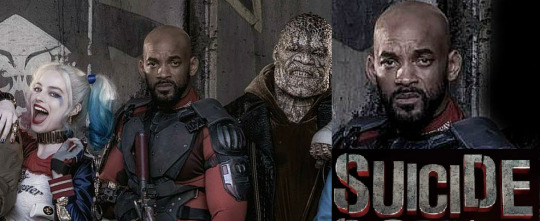
90. Suicide Squad – I’m probably going to spoil parts of the movie here. I also probably won’t proofread this review after I finish writing it. I don’t care, honestly, because just thinking about the aptly-named “Suicide Squad” makes me lose the will to live.
I went into this film expecting it to be garbage even before the negative reviews started pouring in. When I heard that Warner Bros. were planning massive reshoots and rewrites to “make the movie more light-hearted”, a million red flags went up for me. It’s one thing to add in a few additional shots or lines, but WB wanted to fundamentally alter the film’s DNA, while still retaining much of the original footage. The result isn’t so much a new film but rather two films horrifically Frankensteined together, not unlike last year’s “Fantastic Four” (how’s that for a comparison?) The first half is atrocious. It’s just a series of introductions to the main cast that all feel like badly-edited music videos. EVERY. GODDMAN. SCENE in the first half of the movie has some really out-of-place popular song that is not only groan-inducing but also doesn’t fit the tone of the scene in most cases. Slipknot doesn’t even get one of these introductions (not that it matters much since he’s killed off about 10 minutes after we first meet him). His intro amounts to another character saying the funniest line of the movie; “That’s Slipknot. He can climb ANYTHING.” Whoa, watch out for this bad motherfucker.
I don’t know how much of this you can blame on the reshoots, but the plot is fundamentally retarded, as well. Putting aside the basic idea that the contingency plan for a rogue god-like superhero is just a small team of criminals with guns and melee weapons, only two of whom have actual powers, the story progression beats are just plain dumb. The main villain is an all-powerful witch that was supposed to be on the squad but escapes because the government was very lenient in looking after her. Upon being rescued, Viola Davis’ government higher-up kills her subordinates because they “didn’t have clearance” or something like that, even though it was literally their job to help her run everything. At one point, the Joker shows up, takes Harley Quinn away from the squad, only to crash and die (but not really), and she just returns a minute later. In wanting to show his trust, the soldier in charge of the Squad smashes his explosion-app phone, and allows them to leave if they want to. In the ONLY genuinely funny moment in the movie, comic relief character Captain Boomerang wordlessly gets up and leaves. In a move I will never forgive Warner Bros. for, he just returns unceremoniously a minute later (there might be a boomerang joke there, but that’s giving the script too much credit). During the climax, the Squad has a fight with the witch, during which no one even gets hurt so it feels pretty pointless, before she says to stop and tries to coax them into joining her by making them envision and promising them their greatest desires (once again wasting the character’s potential, Captain Boomerang’s is never shown).
The characters might have been the saving grace, but they are all handled incredibly poorly. Despite being “bad guys” (which they verbally remind each other and the audience throughout), they are more like quirky Guardians of the Galaxy-esque heroes, spouting quips and doing the right thing even when it’s against their supposed nature. El Diablo makes sense, as he’s trying to repent for his sins, but why do the rest of them have morals? Why, during Diablo’s story about how he accidentally killed his family, does Harley Quinn un-ironically give him a “how could you do such a monstrous thing?” reaction. What little character development any of them have feels rushed and/or forced, where by the end they are willing to sacrifice themselves for each other and calling themselves a “family” despite having only met a few hours earlier and only exchanged a few quips here and there. Where they could have made genuinely interesting characters by making the main-characters actual villainous anti-heroes who act against the government even while working for them, Warner Bros. just made them typical Marvel heroes, spouting typical Marvel quips while killing typical Marvel cannon-fodder enemies and trying to close a typical Marvel sky portal that can destroy the world or whatever it was supposed to do, except doing it all worse. It doesn’t help that Captain Boomerang, Killer Croc, Katana, and even Joker are all useless and have literally no practical purpose for being in the plot.
How do you fuck up a movie so badly that even Will Smith can’t save it? Smith is one of the few good things about this movie, basically playing his typical leading-man Will Smith persona but he’s so charismatic and likable that you can’t help but feel bad for him for being in this dreck. The rest of the cast is a mixed bag. Margot Robbie has the potential to play a good Harley Quinn, but none of her jokes work (a combination of her delivery and the awful script) and as mentioned before, she’s written to be way too sympathetic. Jai Courtney (Boomerang) had the career-first potential to be good here, but is barely used and what little comic relief he provides is squandered. Adewale Akinnuoye-Agbaje (who I was actually looking forward to in this movie) has only like 6 lines as Killer Croc underneath all that makeup, and all of them make him sound like a black stereotype; as a favor for accomplishing the mission at the end, he asks for BET in his cell, which is a step above asking for fried chicken and grape-drank, so at least there’s that. The guy playing El Diablo is alright. The actors playing Col. Flagg and Katana are forgettable. Oscar-nominee Viola Davis is actually pretty bad as the government head of the squad, looking bored throughout and giving stilted line-deliveries while failing to be intimidating. Cara Delevingne (in her witch form) looks and talks like a particularly poorly-written Game of Thrones character, and is probably the least intimidating villain I’ve ever seen in a comic book movie. Ben Affleck is in the movie for like, a minute. That’s all there is to him.
And how can I forget Jared Leto’s performance as Joker? No seriously, how? Please tell me. He decided that playing the most famous bad guy in comic history would be to act like a Tourette-afflicted edgy teenager who rebels against his upper-class parents by shopping at Hot Topic. At least he was entertainingly cringe-worthy, unlike most of the movie, which is just the regular kind. Who knows, maybe in all that cut footage of him lies a good performance or character arc, but he seems less like a demented criminal mastermind and more like the type of person who would giggle maniacally to himself after tearing the tag off of his mattress. Also, if there’s a word for the introduction version of an anti-climax, Joker’s first appearance in the film is exactly that.
In summary, the acting ranges from decent to bad, the characters are weak, the writing is abysmal, the plot is nonsensical, the tone is all over the place, the music choices are head-drillingly irritating, the action scenes are dull to the point where I zoned out quite a bit during them, and all-in-all a movie that should’ve been stylish and cool is just drab and embarrassing. I know that director David Ayer is better than this (and that he didn’t even have any say in the final edit) and I’m sure there’s a decent cut of this film somewhere, so instead of blaming him I’m going to blame Warner Bros., a studio that gives Sony Pictures a run for their money in terms of sheer incompetency. They’re in such a hurry to catch up to Marvel that they forgot to properly set up their universe and don’t even have a clear vision for what they want to accomplish, story-wise. Say what you will about the MCU and how formulaic a lot of their movies are, but at least Kevin Feige has a vision for his series and makes it work. WB saw the less-than-ideal performance of “Batman v Superman”, panicked, and butchered Ayer’s film to try and make it appeal to as many people as possible, ultimately appealing to no one.
Hell, give Zack Snyder the reigns to the DCEU. He’s not without his flaws, but he’s the closest thing to an auteur working in superhero films today and he’s infinitely more competent in telling a story than the hacks who edited the “Suicide Squad” I saw in theaters. Who is the real Suicide Squad? Is it the team of “bad guys” in the movie? Or is it the audience who is forced to endure this piece of shit? If there is justice, it will be the executives at Warner Bros. who should be forced by shareholders to commit ritualistic suicide live on The CW following “Arrow”
Or just punched in the stomach.
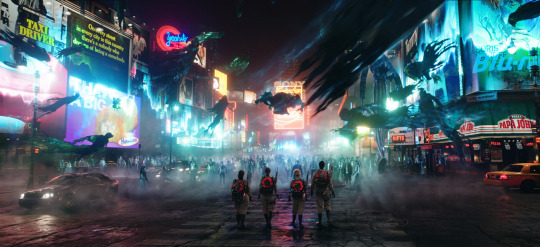
89. Ghostbusters – A “Ghostbusters” reboot is the most politically divisive film of 2016. It’s things like this that make me wonder if we’ve lost our way as a culture. Why people got so up in arms over the casting is beyond me. Personally, I think that anyone who condemns or praises a film solely because of the sex of its leads should be sterilized. But for months ahead of release, I saw almost nonstop articles, Tweets, and arguments about “misogyny” and “the patriarchy” and “raped childhoods” in regards to a silly comedy about people who hunt ghosts, and I started to wonder if it was actually a bad thing that the Chinese will soon take over the West (not that the Chinese would ever allow this film to be released, because Commies are afraid of ghosts or something like that).
It should come as no surprise to anyone with the slightest bit of rationality and foresight, however, that all this controversy would amount to nothing because the film is just a dull, unimaginative slog. I was expecting the movie to be shit because writer/director Paul Feig is a hack who never should have moved past television comedies, and Sony Pictures is a major movie studio run by a bunch of chimps with Down’s Syndrome, and apparently I’m better at pattern recognition than most. But honestly, I can’t even get worked up about “Ghostbusters” because it was just so boring. It never reached the point of being offensively bad like “Suicide Squad”, but this movie doesn’t really have anything going for it either. The lead actresses are fine, and could do well if they had some decent material to work with, but they aren’t funny enough to carry a very improv-heavy feature length film by themselves. A good improvised bit can be like a nice sprinkling of cinnamon on a tasty dessert, but “Ghostbusters” felt like eating several spoonfuls of cinnamon straight from the container. This felt like a modern-day SNL sketch arduously stretched out to two hours.
The improv could have worked if the leads had actual characters to work with, but each one is given just one personality trait (Leslie Jones is scared, Kate McKinnon is koooooky, Kristen Wiig is insecure, and Melissa McCarthy is…there), and they often break their trait for their banter where they constantly try to say funny things and tell jokes, making them feel like a bad college comedy-troupe instead of actual characters. Paul Feig didn’t even bother with any character development; just one forced scene where the animosity between Wiig and McCarthy’s characters, that’s forgotten within 15 minutes, is finally brought up again in the last 5. After a point, I started to feel bad for the cast. I know that McKinnon, Wiig, and McCarthy can do better than this (and have), and even Leslie Jones (who was the worst part of the trailer but is surprisingly the only likable and believable character in the film) deserves more than what she’s given. The only somewhat funny character was the mayoral aide who privately supports the team while publically insulting and condemning them.
As with Paul Feig’s other films, the plot is thin as can be (four women team up to investigate ghosts, start their own business, and before you know it, all hell breaks loose), and it feels very disjointed, with a lot of scenes feeling like they could be put in different orders and it wouldn’t make a difference. As a result, the film fails to properly ramp up in terms of stakes and motivations. There are set-ups without payoffs, and payoffs to things that were never really set up. And of course Feig can’t shoot action or comedy for shit, to the point where even a gifted physical comic like McCarthy looks like she’s lightly swinging at air in her fight scenes. He also clearly misses the R-rating he’s had so far in his feature films, where the lack of jokes is exacerbated without the crutch of swearing to lean on. Plus, as typical of a Sony Pictures movie, there’s enough forced product placement on display to make Michael Bay blush.
The lowest points of the film are the cutesy references to the original film and cameos from the original cast, with the absolute nadir being a scene with a Bill Murray who looks like he’s wondering if it’d be faster to run away from the film set (that he was sued into being on) or to slit his own throat. This just points to a studio product that plays it so safe and close to the original that it doesn’t have any identity of its own, and funnily enough, the gender-swapping of the lead roles is the only decent idea it has to differentiate itself.
As I said before, this wasn’t terrible or painful to watch (possible because I was already detached very early in the movie, but still). I got two chuckles, one from Jones and one from Chris Hemsworth, and a handful of snorts here and there. The CGI, sets, and prop-design are all colorful and surprisingly solid. But the overall movie is just mediocre and a chore to sit through. I normally don’t write lengthy reviews for comedies because there are only so many ways to say something isn’t funny, but the 2016 “Ghostbusters” just isn’t funny, and all the controversy that was brewed up (it wouldn’t surprise me if Sony manufactured the hateful reactions to the trailers themselves to drum up publicity) ultimately led to another one of the same bland, cash-grab remakes that Hollywood has been pumping out for the last several years. Now I may be a sexist, chauvinistic white cis-het misogynist shitlord, but I think the movie-going public deserves better than this, even those dumb bitc…[REDACTED]

88. The Neon Demon - A 16-year-old girl moves to LA to become a model, and finds quick success due to her good looks (and we know she looks good because none of the other characters, including her, ever stop mentioning it), but soon after finds herself succumbing to her own hubris and the jealousy of those around her. That’s literally the entire plot of the movie, minus some of the dirty specifics. Then again, you don’t see a Nicholas Winding Refn for the plot. As can be expected from any of his post-Drive films, characters speak very obvious dialogue with remarkably long pauses, they stare off into the distance a lot (even when just looking into a mirror), jarring ultraviolence occurs, and pretty red-and-blue lighting abounds.
I found NWR’s particular brand of violent, brightly colored autism amusing up to a point, but after a while, it became increasingly grating. Part of that is that the movie as a whole just feels kind of pointless. Thematically it’s quite obvious; the modeling world exploits young women, and said women are also jealous, catty bitches (at least, that’s the impression I got from Refn). But why the fuck is this movie two hours long? So much of the film is just NWR indulging in all of his trademark filming techniques at the expense of making interesting characters. Yes, there are plenty of striking visuals with their fair share of obvious symbolism, but that’s pretty much all there is to it. Much of the movie is filmed like a modeling session or a runway show (which is probably intentional), but there comes a point where you just want to shout “YES, I GET THE GODDAMN POINT, ALREADY.” After about an hour in, I just wanted it to end and couldn’t really care about what happened next. In what seemed like an attempt to rope me back in, the last 40 minutes or so is when the twisted and violent stuff starts happening, but I was less shocked and more annoyed and disgusted by what I was seeing.
The cast is alright, I suppose. The performances from Bella Heathcote and Abbey Lee as the two models that become jealous of the main character are fun and biting. Keanu Reeves is surprisingly entertaining as a sleazy motel manager. As much as I hated that one particular scene with Jena Malone (you’ll know it when it happens), I commend her for being so committed to her performance to actually pull that scene off. Everyone else kind of just occupies that NWR character spectrum that exists somewhere between ethereal and autistic (leaning much closer to the latter in this film).
I hate it when people say the stuff I dislike about a movie is done intentionally. Was my boredom intentional? If, however, the prospect of having Nicholas Winding Refn slowly jerking himself off in your face for two hours while maintaining unblinking eye contact with synth music playing in the background sounds like your cup of tea, then “The Neon Demon” will satisfy your unusually specific fetish, you weirdo.
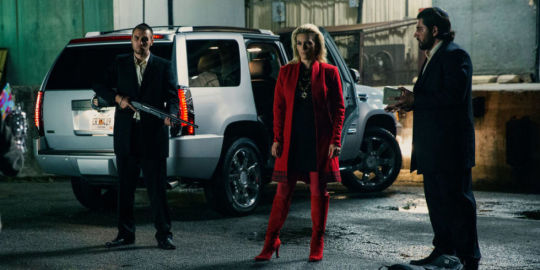
87. Triple 9 – Have you ever seen an urban police drama? Congrats, you’ve already seen “Triple 9”. Basically, there is a squad of crooked Atlanta cops who plan to rob a government building with some criminals in order to appease a mob wife (hammed-up by Kate Winslet in what could possibly be her first bad performance), and they aim to simultaneously stage the murder of a fellow cop across town so there would be little resistance during their robbery. There are ride-alongs, roughing up of suspects, lots of swearing, drug use, betrayals, etc. Pretty much every “gritty” urban crime movie cliché since the ‘90s is in this film, and very little of it is interesting. The movie only really comes alive during its action sequences. The opening bank robbery and mid-film raid especially are expertly crafted and are genuinely exciting. However, they (and a wonderful little cameo from Michael K. Williams) are the film’s only highlights, and the only other thing “Triple 9” is noteworthy for is having such a talented cast and wasting them on such been-there-done-that material. It’s not an ordeal to get through; it holds your attention and it’s thankfully not as edgy as I feared, but between the dull plot, lame dialogue, and unlikable, two-dimensional characters, “Triple 9” is more of a Single 5 (out of 10).
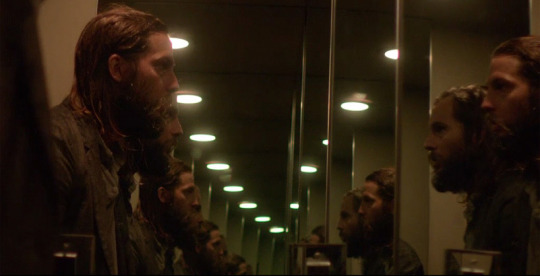
86. The Invitation – A man named Will, who looks like a cross between Jesus and Tom Hardy, brings his new girlfriend to a dinner party set up by his long-estranged ex-wife and her new husband. Things start to get weird when they begin talking a lot about a spirituality group they’re a part of, and Will’s paranoia over their strange behavior is made worse when all of his friends seem to accept it with no problem. I went into watching this movie with little to no expectations, and those expectations were steadily raised by the performances and direction, and it all got pissed away at the end. For a while, it seemed like a really good drama with a genuinely interesting exploration of grief, but without spoiling anything, in the third act it became the EXACT movie I was really hoping it wouldn’t become. I’m sure most people won’t have the problem with this movie that I did, and the good actors and Karyn Kusama’s strong directing (she expertly builds tension and creates a great sense of space) keep it going for the most part, even despite how dumb and illogical a lot of the characters are. But I was just so disappointed by the schlock it became that it just left a bad taste in my mouth. Accept this “Invitation” if you want, but I’m staying home instead.
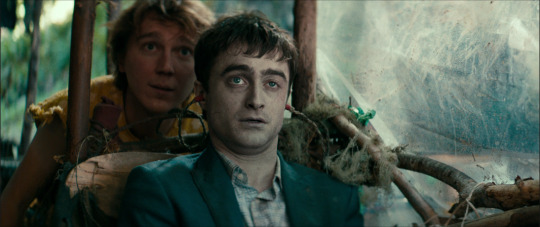
85. Swiss Army Man – Look, I give it points for originality, but this was never going to be my kind of movie. It’s the kind of premise and cast (Paul Dano uses Daniel Radcliffe’s magical farting corpse to get back to civilization while learning about life) that seemed destined to be “baby’s first high-concept indie film”. I saw it because I wanted to give it a chance anyway, and while it’s not without its merits (a good deal of creativity, two committed performances, and plenty of visual flair), the endless grossout humor, montages, and really ham-fisted explanation of themes and character development wore me down to the point where I just didn’t care by the end. I would have liked for the movie to have a more straight-faced approach to the situation, which I think would have underlined the absurd humor present. Instead, we have the kind of ironic whimsy one would get if they saw a bunch of Spike Jonze and Michel Gondry films and completely missed the point. I also would have liked a darker and more realistic ending, one that would actually feel like a culmination of the themes of loneliness and isolation the movie wouldn’t shut the fuck up about. As you might have guessed, the tone is all over the place, too.
If you like this movie, that’s fine. But “Swiss Army Man” is certainly not 2deep4me, and if there is any point I missed in watching it, I don’t care enough to re-watch it. Someone told me that a lot the things I found annoying about this film are intentional. Well, intentionally annoying is still. Fucking. Annoying.
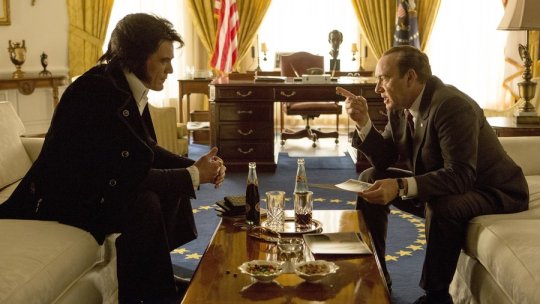
84. Elvis & Nixon – The premise for this movie is really neat. On a December morning in 1970, Elvis Presley strolls up to the White House to request an emergency meeting with Richard Nixon and convince the President to swear him in as an undercover agent, leading to one of the most famous photos in U.S. history. The execution: not so great. The main problem is that the actual meeting is only the last 15-or-so minutes of the movie. The lead-up involves Elvis and his manager’s efforts to actually set up the meeting with Nixon’s staff, while Nixon is hesitant about allowing it. There is way too much stuff about the manager and his family, and Nixon’s staff. It’s not a lot of screentime, but it’s stuff/people you don’t care about in the slightest and is too much by definition (no offense to Colin Hanks, but he should really stick to TV). A lot of this stuff could have been replaced by more Elvis/Nixon, or just cut out entirely, since even at 87 minutes, the film’s length is stretched out.
Luckily, the movie is saved by the outstanding talents playing the titular characters. Michael Shannon as the King and Kevin Spacey as Tricky Dick are so good that they go beyond mere caricatures and actually feel like they embody the historical figures, even if the material is rather light. Much of the movie’s focus is on Shannon’s Elvis, and he easily holds the film together, even though you wish there was more of Nixon. The meeting between the two is of course the highlight of the movie, a wonderful stranger-than-fiction moment of history that would have made a pretty good short film. Here’s hoping for an exploitation-style sequel where they team up to fight evil drug fiends, because they deserve a movie as fun and unique as they are.
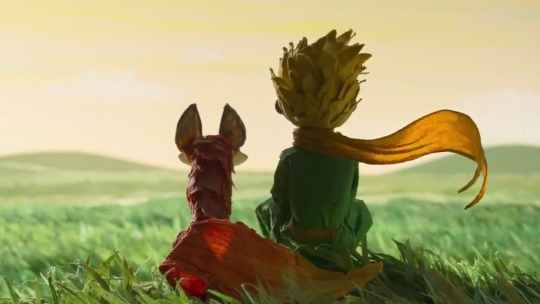
83. The Little Prince – Full confession: I wrote this review a couple of months after actually seeing “The Little Prince” on Netflix and I barely remember anything about it. I remember thinking it was a nice little animated film with a nice message about not forgetting your childhood spirit and imagination and sense of wonder as you grow up. I remember thinking that the CGI animation was nothing special (it was animated in France with a modest budget, so I won’t complain), but the stop-motion sequences were pretty impressive. I remember chuckling a few times and getting the feels once or twice.
It’s alright, from what I recall, so check it out if you like. I’m sorry if you’re a big fan of “The Little Prince” and were hoping for a more in-depth and detailed review, but I genuinely had a hard time remembering stuff about this film, which (considering the film’s message and key themes) is pretty ironic.

82. Jack Reacher: Never Go Back – I was going to make a superlative at the end of this list for “most generic”, but I realized nothing came close to this Tom Cruise action thriller. This movie is so relentlessly generic that it almost feels intentional, like a satire of one of those mediocre 90’s thrillers that are shown endlessly on cable, probably as a double-feature with “U.S. Marshals”. Tom Cruise has never made a bad movie, but this is easily one of his worst ones. Typical conspiracy thriller plot from the type of shitty airport-bookstore paperback novels that boring middle-aged people enjoy (and that these movies are adapted from). Noteworthy only for the scenes with Cruise’s maybe-daughter and their dynamic, something that feels like it’s from a different movie altogether but funnily enough is the only stuff that actually works. Not terrible in any way, but this is something for a lazy Sunday afternoon or to have on in the background while you do something more interesting like ironing your clothes or vacuuming dog hair from underneath the sofa.
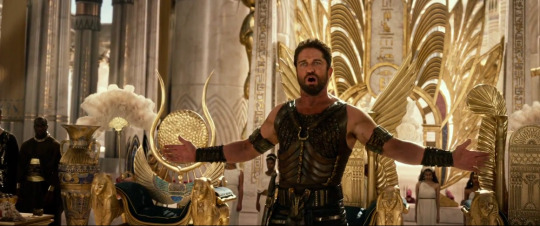
81. Gods of Egypt – Who would have thought that a silly fantasy movie about ancient Egyptian deities would be such a beacon for controversy the way it was prior to release? (The controversy was swiftly forgotten about, as it usually happens). Don’t get me wrong, whitewashing is certainly an issue in Hollywood, but in a film where 10-foot-tall, golden-blooded gods rule over a flat Earth consisting entirely of Egypt while Ra, the God of the Sun, rides around in a magic spaceship taking potshots at a giant space worm all day, complaining about historical inaccuracy is a bit silly. Regardless of what ancient Egyptians actually looked like, any attempt at historical realism would just be jarring and out-of-place here.
Gerard Butler and Chadwick Boseman hamming it up as the evil Set and smarmy Thoth are fun, as is Geoffrey Rush as Ra. Shame that the rest of the cast is as dull and forgettable as they are. The CGI quality is in the halfway-point between “good” and “Syfy movie-tier”. It’s not exactly convincing, but it’s pretty and colorful enough that you don’t need too much suspension of disbelief. Tonally and stylistically, the movie harkens back to those cheesy low-budget fantasy films from the 80’s (if not in budget and star-power). I particularly love how the human girl love interest is portrayed as an innocent girl-next-door-y type, but her massive, barely-contained rack is prominent in almost every frame she’s on screen.
The only major detrimental flaw (and it’s kind of a big one) is that “Gods of Egypt” feels about 20-30 minutes too long. It just doesn’t have the narrative strength or filmmaking energy to sustain its’ running time. If it was edited down (particularly the parts with the young, discount-Orlando Bloom main human character), it’d be a reasonably fun movie. Still, I appreciated “Gods of Egypt” for its goofily-sincere throwback spirit, and nothing about it was painful to watch. Not god-like, but not god-awful either.

80. High-Rise – It’s difficult for me to review a film like “High-Rise”, because while there’s a great deal I admire about the film, the overall experience just felt hollow and repetitive to me. It’s about a young doctor who moves into a fancy 1970’s London high-rise, a self-sustained building with many luxuries intended to provide equal quality of housing to all its inhabitants, where mounting tensions between tensions between the upper and lower floors eventually give way to literal class warfare (subtle). While the first half of the movie is engaging, as the doctor maneuvers through all the social groups and meets a lot of the residents, the second half where the actual fighting starts lost me pretty quickly. None of the characters behave like normal human beings, which makes it hard to be invested in their conflict. While there’s some maintenance issues and disrespect in the building, it’s not clear why they all descend into savagery so quickly. I guess it’s something we’re just supposed to accept (human nature, man), but I feel like a more prolonged slide into chaos would have helped the movie, especially since the second half is just repetitive “one side does bad shit to the other, while the doctor tries to stay out of it” nonsense.
While I don’t buy any of the characters, the cast is strong and they play these caricatures with great conviction. I actually love the aesthetics of the movie; the set design, lighting, camerawork, etc. all being very striking and creative. Director Ben Wheatley’s talent here is evident, even if I stopped caring about the material after a while. I get that this movie is intended to be satire, so a lot of my complaints about the movie could be something that someone else would enjoy because it was all intentional, man. Maybe you’ll get more out of it than I did, but to me it was just a pretty and well-acted slog.
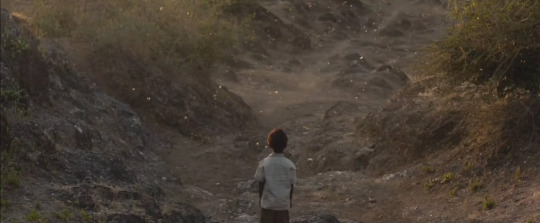
79. Lion
White saviors
Inspirational piano-heavy music the occasionally remembers to throw in some foreign flavor
A cute kid
A solid performance from a minority actor (Dev Patel)
A former Oscar winner who cries a bunch (Nicole Kidman)
A well-intentioned but kind of condescending depiction of another culture
Over-reliance on fish-out-of-water humor
Really obvious plot beats and recurring elements
An attempt to depict “realism” in poverty but watering it down for a PG-13 rating,
A happy/emotional ending
“Based on a true story”
Ending text that not only says what happened to the real-life figures with photos and video, but also includes a statistic about missing children in India and how this film is helping to fix the problem while a pop song by Sia plays.
I know this was based on a true story, but it’s like the fucking Academy themselves made this movie.

78. Independence Day: Resurgence – Roland Emmerich is like a more boring Michael Bay. Many of his films are little more than special effects showcases, dragged down by stock characters and awful writing. Oftentimes, the stupidity on display in a Roland Emmerich movie goes past the point of fun and becomes downright insulting to the audience. Charitably put, the man’s kind of a hack., but even a broken hack is right twice a career (sort of). The first time was 1996’s “Independence Day”, one of the most famous movies of the 90’s and a fun piece of cheese in its own right. The second time was 2016’s long-awaited (by nobody) “Independence Day: Resurgence”*. I don’t wish to imply that “Revengeance” is high-art or anything, but if you’re in the right frame of mind, it’s a simple and comfortably enjoyable flick.
A big part of that is that it’s never insultingly stupid. It’s not smart or anything, but it goes about its business without giving anyone a headache. The characters aren’t deep, but they’re likable enough for the audience to enjoy following them and for possibly the first time in Emmerich’s career, they’re not irritating. “Revolutions” is sincere in its goal to entertain, and displays enough self-awareness to get the audience to relax, like when Jeff Goldblum cheekily comments “They like to get the landmarks” during the film’s main destruction sequence. There’s also some hilariously goofy dialogue like “The ship will touch down over the Atlantic.” --> “Which part?” --> “ALL of it.” There’s a little bit of Chinese pandering (including that juice-box filled with milk or some shit that I keep seeing in these movies), but not enough to annoy, and weirdly it suits the theme of different nationalities banding together.
The cast is fine, but really nothing special. Goldblum is enjoyable because he seems constantly aware of the kind of schlock he’s in, but “Regurgitation” is sorely missing Will Smith, who is more charismatic than all the new cast members combined. When Bill Pullman is giving the best performance, your film isn’t going to win any acting awards. One other thing that I personally really missed was David Arnold, whose score for the 1996 film is one of my favorite film scores of that decade, and the only time the soundtrack for this one comes alive is when it occasionally reprises his majestic themes.
In summary, if you’re looking for something original or high-brow, look elsewhere, but if you just want to kill a few hours and seeing a diverse** group of attractive, multinational humans band together to fight aliens warms your heart a little bit in these cynical times, then “Independence Day: Redemption” will scratch that particular itch.
* I also admit to enjoying “White House Down”
**by diverse I mean black, white, Chinese, and Jeff Goldblum.
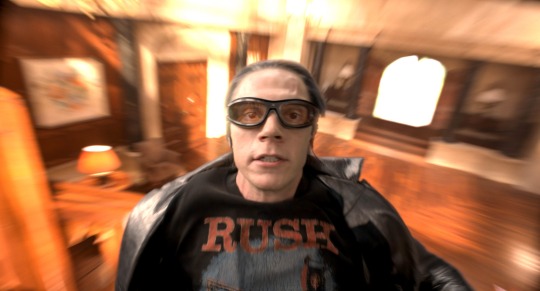
77. X-Men: Apocalypse - There's a bit in "X-Men: Apocalypse" where the younger characters go see "Return of the Jedi" and one of them comments on how the third movie of the trilogy is always the worst.
How prophetic that line turned out to be.
Not that X-Men: Apocalypse is a bad movie, but it’s definitely closer to Brett Ratner’s “X-Men: The Last Stand” than it is to Bryan Singer’s previously strong entries in the franchise. This is definitely one of those “you take the good with the bad” situations. This is a really inconsistent (tonally and otherwise) movie, so instead of writing a repetitive “this is good, but this isn’t” review, I’ll just list off the positives and negatives and leave it up to you to decide if it’s worth watching or not. This will include some spoilers, but you’re not missing much and the canon in these movies is a complete mess anyway. I’ll say that I was entertained, sometimes genuinely and sometimes ironically, for most of the film, so take that how you will.
The Good:
Evan Peters’ Quicksilver, who steals the second X-Men movie in a row
The Quicksilver mansion scene
Nice visuals
Good soundtrack
The early scenes in Poland
The Wolverine cameo
The Bad:
Nightcrawler being wasted despite being one of the best parts of Singer’s “X2”
Jennifer Lawrence is clearly phoning it in
The film does nothing fun with the 1980s setting
Oscar Isaac is wasted on a generic “I’m going to destroy the world and only the strong shall remain” villain.
Storm joins Apocalypse’s gang for like no reason, then switches sides pretty abruptly during the climax
Olivia Munn’s Psylocke has like, one or two lines the whole movie
For the third movie in a row, Magneto becomes the bad guy because he’s Magneto
For the third movie in a row, Professor X gives Magneto the “You don’t have to do this, there is still good in you” speech.
I know it’s the key theme of the franchise, but to hear these characters complain about mutant rights and discrimination is getting tiring after so many movies
It’s two-and-a-half hours long
The Funny:
Nightcrawler’s makeup
Everyone in the movie keeps saying how important Mystique is when this is the most useless and unnecessary her character has ever been.
After killing like, millions of people during the climax, they just let Magneto go, with Professor X telling him “I’ll see you around, old friend”
The characters are 20 years older than they were in “X-Men: First Class”, but all still look like they’re in their 20s or early 30’s.
That scene where Professor X beats up Apocalypse in his mind
Coca-Cola product placement
Magneto destroying Auschwitz
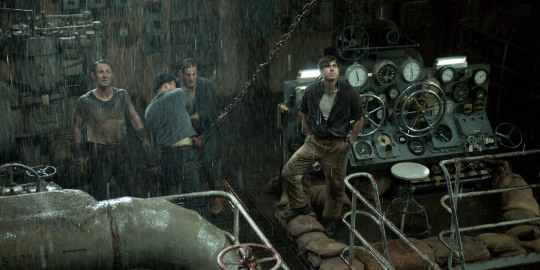
76. The Finest Hours – “The Finest Hours” is a period disaster/rescue drama about a small 1950’s Cape Cod Coast Guard team’s attempts to rescue the crew of an oil tanker after their ship gets Titanic’d by a major storm, and it’s as old-fashioned a movie as it gets, even to a fault. It’s a refreshingly straightforward film. I liked the community/teamwork-focused buildup, as we get to know Chris Pine’s Coast Guardsman, his love interest, and the crew of the ship before the disaster hits. I liked the scenes on the water the most, the experience of them struggling to clear the huge waves during the heavy weather is actually pretty harrowing. I liked the warm tone and the understated heroism.
There’s really not much to this film. I feel like it’s a bit too safe and predictable and not as white-knuckle exciting as I’d hoped. I wasn’t a fan of how the movie kept cutting back to the generic worries of the people on the shore, and the only things in this film thicker than the nostalgia ah the faahkin New England ahhccents. Still, I enjoyed it. It’s not a first-rate vessel, but it stays afloat.

75. Warcraft – I’ll start this by saying that I’m not a Warcraft fan and have never played any of the games. With that out of the way…
"Warcraft" is the nerdiest movie I think I've ever seen. It was so geeky, I felt like watching and enjoying it gave me my virginity back. This movie was made for Warcraft fans and literally nobody else (maybe the Chinese, but they're an easy-to-please bunch).
I actually really admire that. In an age where almost all blockbusters are watered-down, homogenized garbage made by people who seek maximum profit by catering to the largest possible demographic, seeing Universal Pictures take such a risk and sinking $160 million (plus marketing) into a film so niche and nerdy warms my heart. A movie that tries to please everybody pleases nobody in particular, and I'm happy for the Warcraft nerds for having their own cinematic moment.
The movie itself is kind of a mess, however. Even putting aside the stuff you probably need to be a WC fan to understand, the pacing is wonky, the script is weak, most of the human cast is bland, the editing sucks, and it ends very anticlimactically. While Duncan Jones (who is the main reason I saw this movie) pulls off some impressive visuals and great moments, the movie for the most part lacks the epic feel you’d expect in a big-budget fantasy movie. I was able to follow the basic story, but I was definitely lost at times, and remembered like, 3 or 4 of the characters’ names by the time the movie ended.
“Warcraft” certainly has its positives, however. While most of the human cast is underwritten or boring, Travis Fimmel and Ben Foster are both quite good in their roles, easily standing out from their cardboard cut-out castmates. The orcs won the lottery on their actors, all of whom play the orcs with such conviction that they feel more believable than most of their human counterparts. Even the writing was better during the orc scenes, weirdly. Speaking of believable, the special effects on display are fantastic. Between the amazing-looking orcs, the magic effects and the scenery, the CG artists have definitely earned their paychecks on this one. The battle scenes were fun, and (THANK GOD) shot clearly without using shaky-cam or fast editing, those two errant turds on the delicious pie of most action films. It’s also nice to see a movie that seems like it was created out of love and affection by people who actually care for the franchise, and who don’t feel the need to make it ironic or quippy.
While I mentioned that the writing is weak (most characters are frustratingly undeveloped and there are lots of important-sounding proper nouns that left me scratching my head), I see plenty of room for improvement, and with more refinement and focus, I can see a great sequel arising from this. I genuinely hope this franchise continues, because even though it’s not my thing and certainly not without its weaknesses, I enjoyed it for the most part and it feels like such a refreshing medicine to the disease of bland, corporate modern blockbusters that I don’t mind the odd taste or that the spoon is made from frozen fanboy wank.

74. Teenage Mutant Ninja Turtles: Out of the Shadows – I admit to being one of the few people that liked the Michael Bay-produced 2014 TMNT reboot, so I was also one of the few people looking forward to this year’s generically-subtitled sequel. I’m happy to say that as incremental as it may be, OOTS is a definite improvement. It feels less like the factory-assembled reboot typical of Hollywood attempts to cash in on nostalgic properties, and feels more in line with the original cartoon series. No longer is charisma-vacuum Megan Fox the main character; she is relegated to supporting duties, and the turtles (still enthusiastically played by their mo-cap actors) take center stage. This movie does the typical sequel thing where it includes more villains than the first, but all of them (besides Shredder, who is little more than a cameo) are surprisingly entertaining and never outstay their welcome. Tyler Perry is delightful as a mad scientist, as are the two guys who play man-beasts Bebop and Rocksteady. “Arrow” star Stephen Amell is clearly having a blast as vigilante Casey Jones. The action sequences are creative and fun to watch.
There’s plenty of product placement, but the Turtles have always been whores designed to sell merchandise, so it doesn’t feel out of place. I miss Brian Tyler’s bombastic music from the first film, the score here by Steve Jablonsky being much more generic and forgettable. The few attempts at character development are trite and unnecessary. The writing is still kinda crappy, and there’s a bit too much juvenile humor. I suppose my biggest complaint is that while the filmmaking is competent, it really lacks the sort of energy and inspiration to take it to the next level. Almost all the elements for a genuinely good Turtles movie are here; it just needs someone to put it all together into something that’s more than the sum of its parts, and not the dude who directed “Earth to Echo” (I’d heard of it either).
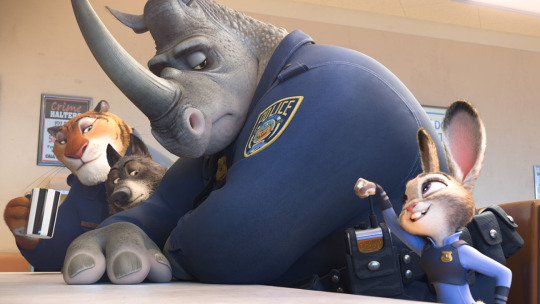
73. Zootopia – Nice animation, great attention to detail and some good visual gags (the population-counter on the rabbit farm, the wolf cop going undercover, etc.). Highlight of the film was the opening school-play scene. Nice message for the kids about how prejudices can lead even the most well-intentioned of people astray. Plot goes through the familiar beats of a Disney film, except for a pretty retarded third-act heel turn that I won’t spoil, but it would make more sense and have more story impact if the character didn’t feel so minor, and if it wasn’t so last-minute in the movie. “Frozen” was dull as shit, but at least the scene where HANS BETRAYS ANNA (spoiler warning) was pretty hilarious because of how well-timed and out of nowhere it was. The “grown-up” references (Godfather, Breaking Bad, etc.) feel pretty forced, mainly due to them just being references and not actual jokes. Overall, it’s a decent, well-made, and occasionally funny film (“I mean, I am just a dumb bunny, but we are good at multiplying”), but the overly-formulaic and predictable plot signifies that Disney’s lack of creative ambition is still there. Also, the sloth scene might have been funny if I hadn’t already seen it in the trailer. It’s definitely not one of those scenes that’s funny more than once.
Recommended for kids, furries, and those who love animal puns.
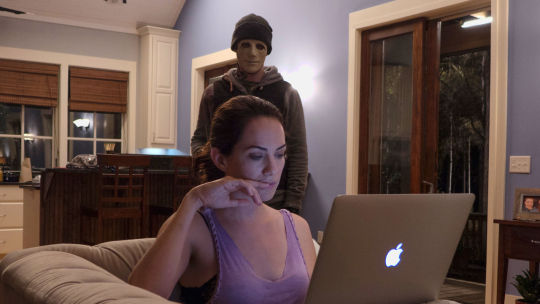
72. Hush – A deaf-mute writer is terrorized in her home by a psychopath intent on killing her. A nice premise with a refreshing twist on the tired home invasion genre, and the movie is a brisk 81 minutes. However, I feel like it should have been shorter, and it was only so long because the villain was so unbelievably stupid. At multiple points he could have entered her home and killed her pretty easily, but the plot dictates that she needs to think of ways to survive and outsmart him, so he’s just written as a crazy and evil idiot who wants to toy with his prey. I imagine most people would be fine with it, but his behavior became more annoying than scary after a while.
Making the film watchable is the solid directing and cinematography, along with writer/star Kate Siegel who makes for a very sympathetic and likable protagonist. We both wince and feel for her character when she gets hurt, as she sobs quietly but can’t audibly cry. Her performance is so convincing that I was genuinely surprised to find out that she’s not actually deaf in real life. The movie is decent and worth watching if you like horror-thrillers, and it shows than Blumhouse can still produce the occasional, not-garbage horror film.

71. War Dogs - I wasn’t a fan of the “Hangover” trilogy, even if the third entry was an admirably bold middle-finger to all of its established fans, but I saw talent in Todd Phillips’ direction which made me somewhat look forward to his next endeavor. Based on a true story, Miles Teller and Jonah Hill play two 20-something Miami dudes who get into the world of gun-running and happen upon a major but shady deal with the U.S. government. Basically, “Lord of War” for the new generation. However, where “Lord of War” was, despite its’ wry sense of humor, a pretty dramatic and searing look at the arms trade and the U.S. government’s involvement with it. “War Dogs”, meanwhile, feels more like a lightweight “Wolf of Wall Street”-esque rise-and-fall story of two friends and businessmen that, despite the constant references to the Bush administration, feels like only a passing criticism of the government. The key problem with the movie is how been-there-done-that it is. Even if you know nothing about the real-world story that inspired it, all the dramatic beats and character progressions are thoroughly predictable, and watching it I felt like I’ve seen this movie a hundred times already. It even opens with a variation of that freeze-frame “You’re probably wondering how I got in this situation” cliché. It’s not bad. It’s solid in pretty much every aspect. The directing by Phillips (I like a visual gag where a character sees approaching Iraqi insurgents in his truck’s side mirror, then the camera pans down to “Objects in mirror are closer than they appear”), the writing, the acting (with a noteworthy turn by Jonah Hill). It’s all fine. But the movie’s crippling lack of ambition means that by the end of the year, it’ll probably be completely forgotten about. I’m writing this review two days after having seen it and I’m genuinely having trouble remembering things about it. To put it in a hack-y movie critic kind of way; “War Dogs” is a gun that doesn’t malfunction, but never hits the bulls-eye either.

70. Jason Bourne – If the Bourne films popularized the “gritty espionage thriller” genre, 2016’s “Jason Bourne” feels like a generic knockoff made while the trend was hot, except it’s several years later and no one really cares. Still, I was looking forward to the film, because there are so few good action movies coming out these days and Paul Greengrass is at least a pretty strong director. I will always slightly resent Greengrass for popularizing the shaky-cam, fast-editing style of action filmmaking, but I admit he does it better than pretty much everyone, and it actually suits Bourne’s gritty, improvisational nature. There’s an early chase set during a riot in Athens and a climactic chase in Las Vegas that feel as urgent and intense as any action scenes I’ve seen in a while. Still, you wish the guy would invest in a tripod or something. It’s nice that Greengrass doesn’t discriminate, but exclusively hiring camera operators with Parkinson’s does make the end product a bit hard to follow, visually.
The plot is some hokum about the CIA trying to knock off a billionaire social media tech guru because he won’t let them use his product to spy on everyone, and somehow Jason Bourne is brought out of exile/retirement because of EVEN MORE buried secrets about his past. It’s pretty generic stuff that tries to be timely but comes across as trying too hard. Damon’s a compelling lead, and he’s given a decent villainous counterpart in Vincent Cassel, but it’s hard to be involved in the material. I was also disappointed by the lack of character development for Julia Stiles’ returning Nicky Parsons. Some insight into why she came out of hiding to give Bourne information would have been nice. The rest of the cast is unmemorable; Tommy Lee Jones in particular looks like he’s counting down the seconds until he stops shooting and can cash in his check.
You can tell that this is a tacked-on cash-grab sequel. They couldn’t even bother thinking of a proper Bourne title (The Bourne Resurgence, maybe?), and while Damon and Greengrass are definitely not half-assing it, you can tell their hearts aren’t really in this. Their workmanlike approach and their undeniable talent, however, does mean that Jason Bourne is an enjoyable thriller, and you’ll at least get a great pair of action scenes out of it. Still, what the hell were they thinking, making a Bourne film without Jeremy Renner?

69. Rogue One: A Star Wars Story - There is perhaps no bigger red flag to me for a major blockbuster movie than hearing about “extensive reshoots”. Putting aside the lessons we’ve learned from “Fantastic 4” and “Suicide Squad”, the main problem with these kinds of reshoots is that it speaks to the studio not having enough confidence in the director’s vision, and more in the opinions of test audiences. I know that reshoots are commonplace in the film industry, but when they announced that “Rogue One” would have several weeks of reshoots that weren’t even headed by director Gareth Edwards, my heart sank a bit.
Now, I don’t mean to compare this to the previously mentioned comic-book dumpster fires, but the fact that “Rogue One” is just “kinda good” makes it pretty disappointing for me. Before some of you nerds ask; no, I didn’t watch this film with the sole purpose of criticizing it and ruining the Star Wars circlejerk. I was really looking forward to it when I heard that Gareth Edwards would direct, because his recent “Godzilla” reboot was fucking awesome and easily one of the best blockbusters of recent years, and I had hoped that “Rogue One” would mark an effort in taking this unkillable franchise to bold, new directions. It’s not like doing so would even be considered risky; “Star Wars” fans would literally pay money to eat dogshit if they were told it’d be canon or if the actor who played Wedge Antilles told them to do it.
But there’s the problem. Despite some differences in approach to the main saga, “Rogue One” is as safe as they come. Sure, there’s no opening crawl and the visuals are grittier than usual, but in terms of dialogue, storytelling, style of music, etc., it’s still very much a Star Wars movie. I do like how the movie takes itself fairly seriously and is bereft of the typical cringe-worthy Disneyquips©, but it kind of lacks the passion and inspiration that made so many people fall in love with the original trilogy.
Michael Giacchino’s score does the job, but isn’t all that memorable. He happily mimics John Williams’ style, but doesn’t display the sense of flair or majesty that made Williams’ music for this series so famous. It’s a shame we’ll never get to hear original composer Alexandre Desplat’s work for this film (he couldn’t do the score due to rescheduling around the reshoots).
The cast is a major case of “talented actors let down by a weak script and thin characters”. Try doing the Plinkett thing and describe the characters’ personalities, without talking about their role in the plot or their motivations, and ask yourself if any of them sound interesting. The main character Jyn Erso is especially disappointing, since what initially seems like a personal quest to find her father turns into her just selflessly becoming a noble rebel hero. There’s kind of an arc, sure, but it’s seriously missing any real drama to make the arc meaningful. This is especially bad during the slow and plodding first two acts of the film, which are rather unengaging and even boring at times.
The only somewhat amusing characters are the droid K-2SO (Alan Tudyk), the blind kung-fu former Jedi (Donnie Yen), and the Death Star director (Ben Mendelsohn). The droid is pretty much the only source of humor in the film, and he feels welcome because he doesn’t feel over-the-top (he’s a kind of cross between C3PO and HK-47). Donnie Yen is an insanely charismatic actor, and he makes his character interesting enough that he can overcome the writing. Ben Mendelsohn makes for an entertaining and slimy villain, but he’s let down by the script and the constraints of the canon more than anyone. Mendelsohn’s naturally villainous performance is wasted due to his character’s frequent emasculation at the hands of old franchise baddies Grand Moff Tarkin and Darth Vader.
And therein lies the crux of the matter, both that of the film and of Disney; they focus less on building the future or telling new, memorable stories in lieu of milking the past for all it’s worth. This is best exemplified by Disney’s decision to reintroduce a pair of ANH characters using their creepy, uncanny-valley CGI technology and body doubles. They did this in a few Marvel movies to have actors play younger versions of themselves, but here they use it to bring a dead actor (Peter Cushing as Tarkin) back to life, and it’s quite morbid and uncomfortable when you think about it. They literally bought a dead man’s likeness from his estate to milk it for nostalgia bucks. Is that where we are as a society where we’re totally cool with something like this? Wouldn’t it be much more natural (and cheaper) to just recast the old characters? You know, with human beings and whatnot?
Don’t get me wrong. As an action-space-fantasy movie, “Rogue One” works well enough. I mentioned previously that the first two acts are meh, despite some good moments (like the Death Star’s demonstration on a desert city, and the whole opening scene). Most of the movie was characters traveling from one colorless location to the next, getting into a scuffle with the Empire, then escaping. It’s in the third act where the movie really kicks into gear. The stakes are raised, things feel more urgent, and the bland locations are swapped for a beautiful tropical beach setting with an Empire base on it. It’s basically one large action sequence, but it works. Edwards again uses his excellent sense of scale and visual prowess to make the battle feel epic and exciting. As someone who isn’t a big Star Wars fan, it’s easily the best 30-40 minutes in any of the movies for me.
However, while “Rogue One” gives an admirable effort in being its own thing, it can’t help but keep calling back to the original trilogy just to please its established fanbase. I don’t blame all of the film’s flaws on the reshoots. There’s no obvious difference between original and new footage like a crappy wig or awful, forced humor. And who knows, maybe the reshoots actually made the film better. But at the end, “Rogue One” feels like it doesn’t want to be a Star Wars movie but is forced to be one (pun intended) by its strict parents. So often the characters go on about “hope”, as if they are seeking HOPE of a NEW variety. It may be like poetry (it rhymes), but after a point it becomes less poetry and more beating you over the head with a rhyming dictionary. For future installments, let’s cross our fingers for a little less “hope” and a little more “new”.
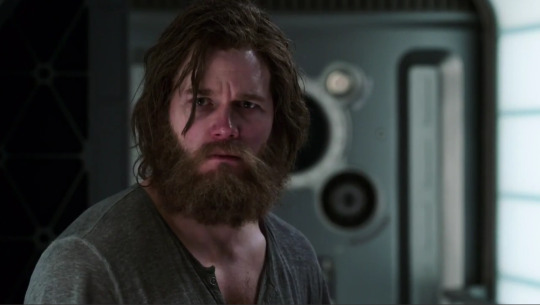
68. Passengers – Betrays Chris Pratt’s best movie performance to date, an excellent first act, and its own interesting (and pretty disturbing) premise by watering it down with schmaltzy Hollywood romance, unnecessary action, and a cancer-inducing end-credits Imagine Dragons song. I could write an entire essay on why the movie’s specific approach to its story is deeply uncomfortable. I’m also pretty much over Jennifer Lawrence at this point.
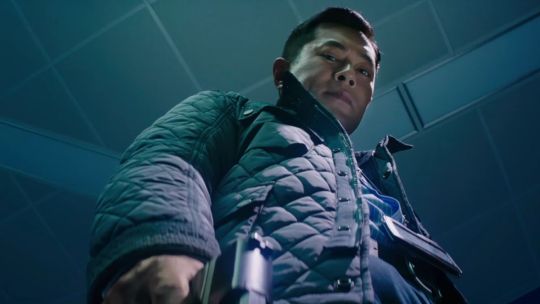
67. Three – Intriguing and unique chamber piece, but its comical elements and over-the-top melodrama feel out of place, and the final shootout feels like style just for style’s sake, which makes it oddly boring. Watchable, but a massive step down for Johnnie To after his excellent “Drug War”.
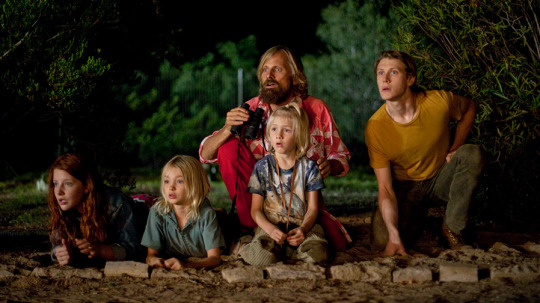
66. Captain Fantastic – Soulful performance from Viggo Mortensen and the occasional touching and insightful moment help buoy this portrayal of family and unconventional parenting whose biggest flaw is having a script and viewpoint that’s too smug and proud of itself for its own good, which makes most of the emotional moments feel cheap and unearned. Wes Anderson could have made a great movie out of this.

65. The Edge of Seventeen – Overcomes (just barely) the unlikability of its main character, the annoying way characters always describe what they’re going through, and its own sheer predictability with good performances, the occasional funny line and a fairly honest and empathetic look at growing up. I’d respect it more if it had the balls to have an unhappy ending. Woody Harrelson gives probably my favorite portrayal of a teacher in a movie.
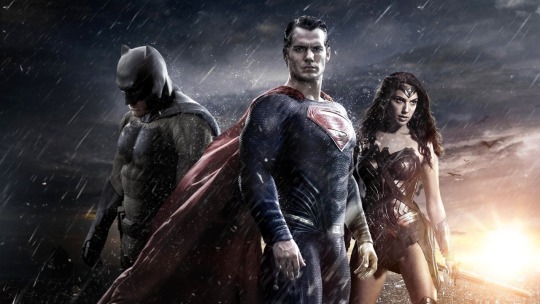
64. Batman v. Superman: Dawn of Justice – Oh, boy, here we go. For the record, this review is of the extended cut of the film.
I firmly believe that you can make or break a movie in editing. No matter how good the writing, acting, directing, and cinematography are, if a film is poorly edited, it becomes confusing at best, and a complete chore to watch at worst. Such was the case with the theatrical cut of the highly-anticipated (not by me, of course) “Batman v. Superman: Dawn of Justice”, a film that despite being two-and-a-half hours long, felt like a rushed and confusing mess. I’m not saying that the extended cut is some sort of masterpiece, but this 3-hour version is what Zack Snyder intended the finished product to be before Warner Bros. got their stupid fucking fingers on it. Characters are given more scenes to be fleshed out, subplots are better developed, and the pacing is significantly improved, amounting to a much more coherent and downright better film. If you saw the theatrical version and are really on the fence about the film, I recommend watching the extended cut.
The movie itself is still fundamentally flawed in some aspects. It’s still a film constrained by the pressure to set up an entire cinematic universe, which makes the story itself suffer. It probably should have been solely about the personal grudge between Batman and Superman and the consequences it takes on both of them, and them eventually teaming up together when they realize they’re not so different and both want the same thing. The actual movie tries to do that, have Lex Luthor try to destroy both of them, introduce Wonder Woman, set up Wonder Woman’s origin story, set-up three other Justice League members’ origin stories, set up the Justice League movie itself, have an investigative Lois Lane subplot, hint at a future bad guy, and create a giant Frankenstein monster for the third act, among other things. The movie does keep most of these plates spinning, but some of them do fall. It’s an ambitious undertaking, but we’re still left with expensive broken china.
The writing is pretty hackneyed, too. If you can explain Lex Luthor’s motivation for hating Superman to me without citing a comic book or saying “it’s just what he does”, please do. They hint at some biblical reason for it (the Christ allegories and symbolism are even less subtle here as they were in “Man of Steel”, to give you an idea), but it came across as Lex hating him for no particular reason and trying to quote scripture to justify it. There are like three extended dream sequences in the movie, which feels like two too many. And then there’s that awful flow-breaking scene where they set-up The Flash, Cyborg, and Aquaman. I’m reminded of an anecdote where during the making of “Man of Steel”, Zack Snyder wanted to include an after-credits scene but producer Christopher Nolan opposed, telling him “A real movie wouldn’t do that.” This story is probably bullshit, but I think it’s funny that Snyder made an after-credits scene and just crowbarred it into the middle of the movie.
“Batman v. Superman” attempts (and actually succeeds for a while) to really create a sense of consequence in a comic book movie, with the whole world, particularly Batman, being concerned about Superman’s presence on Earth after the destruction caused in “Man of Steel”. But it’s all kind of thrown out the window when that conflict is immediately dropped after the “MARTHA” scene so they could team up to fight the aforementioned Frankenstein monster. The “MARTHA” scene has become kind of infamous, but I was actually fine with it (even if it could have been better written) until Batman says “Don’t worry. Martha’s not dying tonight”, which got a good howl out of me. It was at the very least an interesting movie until it became the typical third-act destruction fest that has characterized so many superhero flicks, with even a few tonally jarring quips thrown in for good measure. The actual fight between Batman and Superman only lasts for like 5 minutes, despite so much buildup. While fun, it feels really schlocky, especially when Batman rips a sink out of a bathroom wall and starts beating Superman over the head with it. Why they started fighting in the first place instead of talking it out like Superman originally intended is beyond me, as well. Zack Snyder’s penchant for outstanding visuals is never in question (he does handheld camerawork better than pretty much anyone) but his grasp on storytelling has always been a bit iffy, even if this is arguably his best work.
If you’re a comic book fan and weren’t a fan of the characterization in this film, the extended cut won’t change your mind on that. Superman is still kind of a dick, Lex Luthor is still a Jolly Rancher-sucking autist, and Batman still kills people. It (mostly) makes sense in the context in the film, and I personally didn’t care too much, but I know some comic book fans who won’t forgive it. Last but not least, I want to mention what is probably the most annoying product placement I’ve seen in a movie this year. It’s not as gratuitous as a TMNT or Transformers flick, but at least those films didn’t take themselves seriously. There is nothing that can ruin a good, serious scene like a really out-of-place product placement. I was enjoying the scene with Clark Kent and Lois Lane in the bathtub until the camera turned to the bottle of Olay and stayed there for like a solid 2 seconds. The scene I was most looking forward to in the movie (the “Man of Steel” destruction of Metropolis as seen through Bruce Wayne’s eyes, which was really well done) was really hurt by the fact that right before the movie started they showed an ad for the Jeep used in the scene, using footage from the movie. There’s also a scene where Lex Luthor tries to force-feed Holly Hunter a Jolly Rancher. I understand that the movie’s titanic budget has to come from somewhere, but it’s shit like this that really pulls me out of the movie.
The cast is strong, particularly Jeremy Irons’ Alfred and Ben Affleck, who exceeds all expectations as Batman, even if he looks a bit silly in the suit. If nothing else, I’m really looking forward to his solo Batfleck film. Gal Gadot is nothing special, but at least she isn’t terrible. Henry Cavill is solid and likable even when the script lets him down, as is Amy Adams (not to politicize things, but I feel like this movie is getting no credit whatsoever for actually having a female love-interest who is like ten years older than her male counterpart, as opposed to the typical older-male-younger-female one). I like how they try to make Laurence Fishburne’s newspaper editor like a reverse J. Jonah Jameson from Spider-Man, constantly telling Clark Kent to report on some local sports team and admonishing him for writing about a vigilante dressed up as a bat beating the shit out of criminals and branding them.
I could go on, but at least BvS feels like an actual movie, instead of the really long trailer that was “Man of Steel”. Its (many) flaws aside, Zack Snyder is to be commended for using such a massive budget to at least try and do something different and ambitious than typical superhero films, and the fact that he succeeds as much as he does despite so many expectations and so much pressure is to be lauded. His cast is good, his action scenes are brutal and weighty (I loved that “Arkham” style warehouse fight between Batman and a group of armed thugs), his heart is in the right place, and he really, honestly dares to be different. If he had a better script and a not-terrible studio to back him up, “Batman v. Superman: Dawn of Justice” would be appreciated for what it is, and not the kind of movie that inspires actual news articles about RottenTomatoes.

63. Billy Lynn’s Long Halftime Walk – Uneven but occasionally powerful and refreshingly biting look at America’s oft-hypocritical worship of its soldiers and what battle can really do to their psyche, with lead actor and newcomer Joe Alwyn deftly carrying the movie on his shoulders. Let down by a weak script and most of the supporting characters being one-dimensional caricatures, however intentional it may be. The weirdest cast ever assembled for a drama (Garrett Hedlund, Chris Tucker, Steve Martin, Kristen Stewart, and Vin Diesel) works surprisingly well, except for the sadly out-of-place Martin. Didn’t get to see it in the original 4K, 120fps format, but at least I don’t get a headache out of it.
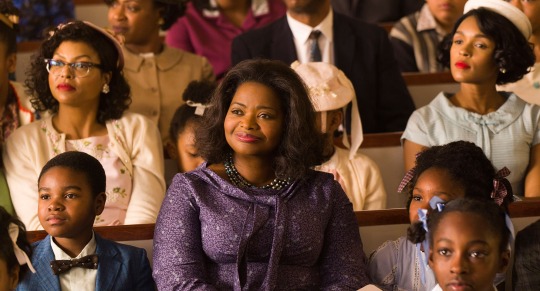
62. Hidden Figures – Typical inspirational historical drama. Sugary and as clichéd as it gets, but solid enough that it works. Elevated by strong performances from the three leading women, made amusing by how every other line spoken by any of them is an Obama-esque crowd-pleasing “Mmhmm” moment, and almost ruined by the presence of Bazinga as a racist, sexist strawman who is just there to be continually outsmarted and embarrassed by the smart, black lady. Probably going to become a staple in high school math/physics classes with lazy teachers. Thumbs up for the Oscar-bait title.
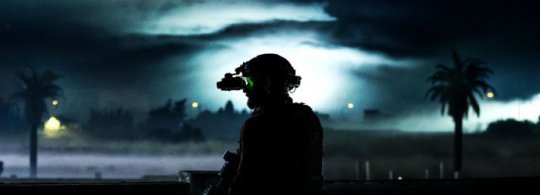
61. 13 Hours: The Secret Soldiers of Benghazi – I let out a good chortle when I heard that there would be a movie about the 2012 Benghazi attack starring Jim from “The Office” and directed by none other than Michael Bay, a man whose approach to maturity and good taste generally amounts to a passing laugh and cocaine-sneeze. It was to my pleasant surprise (and admitted slight disappointment) that “13 Hours” turned out to be not only a solid military thriller but also Bay’s most restrained and mature movie. Don’t get me wrong; there’s still plenty of military hardware porn, explosions, and tastefully lit shots of a shirtless John Krasinski (hnnng). However, it also doesn’t include the obnoxious humor and out-of-place product placement that characterize most of his films (although there is a really unnecessary scene in a McDonald’s drive-through), and it actually takes itself fairly seriously, which is surprising coming from the guy who directed a film about two Miami cops who single-handedly invade Cuba.
It presents an account of what happened that night at the U.S. embassy and nearby CIA station as seen through the perspective of the security contractors stationed there, and it avoids politicizing the matter. There’s an annoying CIA chief strawman who refuses to let the contractors go in early to rescue the ambassador, but that’s pretty much the extent of it. The rest is a tense military action film, along with the expected jingoistic hero worship that these types of films have to include by law or something, though thankfully it’s not as bad here. Bay spends a decent amount of time setting up the location, the characters and the situation, before tits go inevitably up. The characters are fairly thin, their non-action scenes amounting to the usual dick-swinging soldier banter and some phone calls to their wholesome, attractive families back home, but the actors are good and convincing enough to make you care about them.
The action scenes are the reasons to see this, characterized by strong sound design and the aforementioned hardware porn that I admittedly enjoy, as well as some great shots, like the slo-motion one of a soldier surrounded by sparks. I also liked the atmosphere of the film, as the contractors slowly move through the ghostly streets of Benghazi, one of them remarking “It’s like we’re in a horror movie”, as some residents nearby are casually watching a soccer match while ignoring the gunfights outside their homes, as if it’s just another weekday evening.
The writing is pretty weak. It gets the needed information across, but the characterization is thin, the dialogue ranges from corny to boring, and there really isn’t enough plot to make this movie as long as it is.
Nontheless, it’s a solid action-thriller. I’ve defended Michael Bay for a long time now (mainly because he made “The Rock”, and I don’t see any other fucking director that made “The Rock”), but between this and 2013’s “Pain & Gain” he shows how much better he can be with smaller budgets and when not constrained by a plot involving giant robots punching each other and making racial wisecracks.
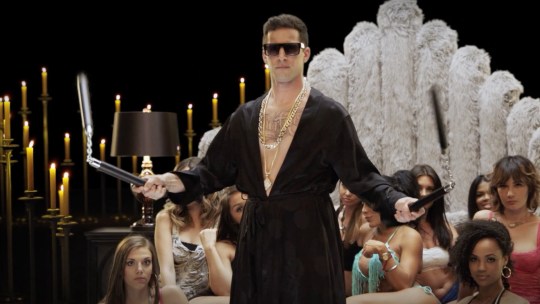
60. Popstar: Never Stop Never Stopping – Imagine “Walk Hard: The Dewey Cox Story”, but not as good, and you get a good idea of what “Popstar” is like. The humor was pretty hit-or-miss and definitely favored quantity over quality when it came to the jokes, as can be expected from a movie made by SNL alumni, but it kept me entertained and made me laugh enough to warrant a recommendation. Funniest bits were the TMZ parodies, Justin Timberlake, and the “Equal Rights” music video.
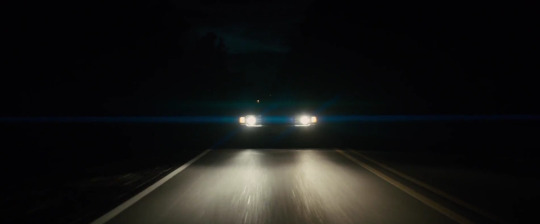
59. Midnight Special – I like Jeff Nichols as a filmmaker. It’s partly because Michael Shannon is in all of his films, and I’ll watch anything that man does at this point, but Nichols has shown himself to be a nuanced and compelling storyteller with an excellent command of both atmosphere and tone. It’s this skilled storytelling and another strong performance from Shannon that make Midnight Special worth watching, even if it’s all in service of a story that becomes pretty dumb by the time we find out what’s going on.
The basic plot is that of a father who runs away from a religious compound with his son and is soon hunted by a number of groups because of some mysterious power that his son possesses. The opening scene where they and a helping friend of the father hurriedly leave a motel room and drive away into the night is excellent and expertly sets up a low-key but involving sci-fi thriller tone. Unfortunately, the more the movie goes on, the more we find out what the son’s powers are and what his “purpose” is, and without spoiling anything, it lost me pretty quickly after the late-second act revelation. The strong cast led by Shannon and Nichols’ direction kept the movie compelling enough to get me to the finish line, but this is definitely a case of a screenplay being too ambitious for its own good.
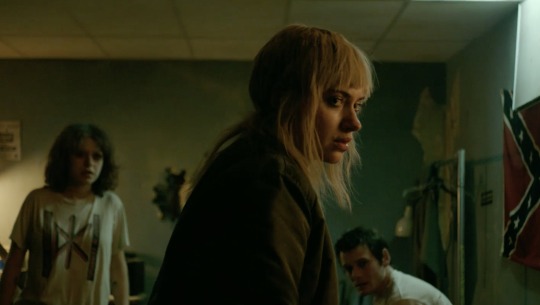
58. Green Room – Punk rockers vs. neo-Nazis is a premise more fitting of a sillier movie, in my opinion. Writer/director Jeremy Saulnier (who made 2014’s underrated gem “Blue Ruin”) probably knew this, and subverts it by making “Green Room” as grim and unpleasant as he possibly could. Going off of a theme from “Blue Ruin”, the deaths in this movie are often bloody, realistically brutal, and purposely sudden and anticlimactic, simultaneously being a violent movie but also anti-violence. Saulnier’s technical aptitude and the talents of the cast are never in question, and the movie itself is quite gripping and well-paced. I don’t think “Green Room” is as good or thematically rich as “Blue Ruin”, and the ending is a bit of a letdown, but it’s still a well-made and clever genre flick, and if you enjoy feeling like shit and averting your eyes from the screen then it’s the movie for you.
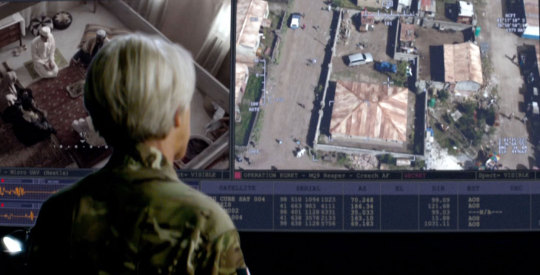
57. Eye in the Sky – A government joint-operation to kill some high-ranking terrorists in Kenya via a drone strike is halted when a little local girl enters the kill-radius. The story is told from the perspective of a ground recon team trying to get her out, the drone pilots, and the military brass and government officials who argue about whether the strike is justified and should be carried out. It has a good setup and a pretty powerful climax, but drags quite a bit in the middle portion where those in charge of the operation keep referring up to their superiors to figure out if they can/should/will fire the missile. The cast, in particular the late, great Alan Rickman as a weary general, are good enough to get you through the duller bits of the movie, and it’s really nice to see Barkhad Abdi in a movie again. While it could have trimmed some of its excess fat, “Eye in the Sky” is a tense, compelling thriller, and a much more mature and responsible examination of the consequences of drone warfare than “London Has Fallen”, albeit much less entertaining.
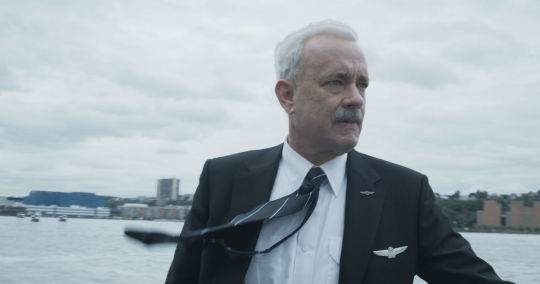
56. Sully – You’ve got to give Clint Eastwood credit. For a guy in his mid 80’s, he sure is prolific these days, regularly cranking out solid movies every year or two. In retelling the events of the “Miracle on the Hudson” passenger plane water landing from a years beack “Sully” continues that tradition by being good. Not great, but good. Tom Hanks makes for a fine lead, Aaron Eckhart is decent as Hanks’ co-pilot and friend (albeit constantly overshadowed by his own glorious mustache), just about everything else is meh. The highlight of the movie is the water landing itself, shown 3 times at different points from the perspectives of an air traffic controller, the passengers, and finally the cockpit. These scenes are intense and pretty harrowing, dodgy CGI aside. The rest of the movie is either the lead-up to the flight, or the aftermath where Captain Sully deals with the mental trauma from the incident and contends with a federal investigative committee that easily wins the award for “Most Obvious Strawmen of the Year”. Whatever. The film is well-made and compelling enough. As I said before, it’s good. It’s the definition of a 7/10 movie. If you’re old, like the audience during my theater showing was, you’ll probably love it. Everyone else will probably just like it. If you’re expecting something along the lines of Eastwood’s “Unforgiven” or “Letters from Iwo Jima”, you’ll be disappointed, but if you just want a solid, likable movie, this won’t Sully your expectations…I’m sorry for that one.
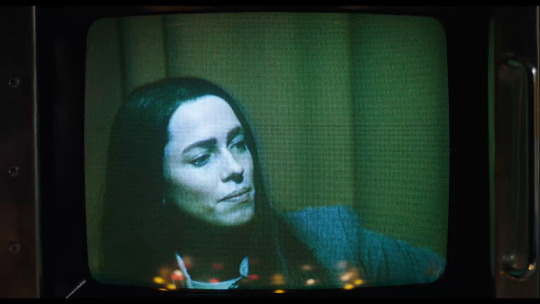
55. Christine – An amazing, simultaneously magnetic but also hard-to-watch performance by Rebecca Hall as 1970’s reporter Christine Chubbuck, and a very raw portrayal of depression, but ultimately feels pointless as it says nothing about Chubbuck or her mental state, as if the film is keeping her at a distance when it should be holding us down face-first into what she was truly feeling, making the ordeal feel kind of exploitative, when you think about it. If you know her story, the scene you spend the whole movie anticipating is done excellently, however.
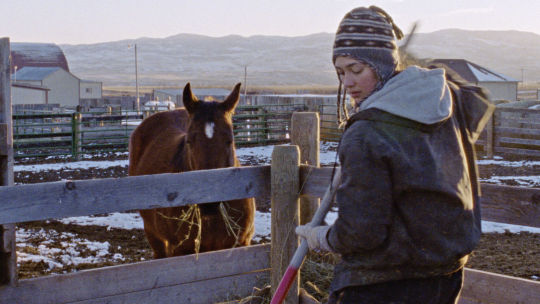
54. Certain Women – MINIMALISM. It’s either your type of thing or it isn’t. “Certain Women” is three loosely-connected stories about women who live in Montana, and it’s as grounded and un-flashy as a film can get without being a home movie. It’s one of those films that’s about normal people and their everyday problems, and makes it all seem profound. To me, it worked well for the most part. I was engaged by the nicely composed cinematography and the good performances. The three stories vary in quality. Laura Dern plays a small-town lawyer who gets caught up in a hostage situation, and this is the most straightforward of the three, but also quite engaging. Michelle Williams plays a mother who wants to build her dream home in the woods but faces ambivalence from everyone in her life, and hers is the weakest story, if only because it feels so short and anticlimactic (even by this movie’s standards).
The third story is surprisingly the best, with a ranch hand played by newcomer Lily Gladstone who forms a bond with a young law school graduate played by Kristen Stewart, and it’s an affecting and nuanced look at loneliness. Kelly Reichardt’s direction is modest and very low-key, but it’s empathetic and creates a good sense of atmosphere. This movie is also slower than watching paint dry at half-speed, lacks any overt drama and is very light on plot, so it’s one of those movies you’ll either completely love or won’t care for at all. I liked it, because I’m an edgy contrarian, and because I like a movie that gives its characters breathing room and trusts the audience to be smart enough to get their own thematic value out of it, so it’s worth your while if you’re not feeling too sleepy. Plus, there’s an adorable corgi in it, so automatic recommendation from me.
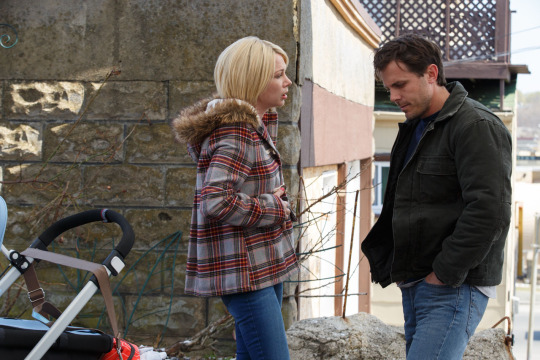
53. Manchester by the Sea – Reading the reviews and seeing all the award nominations, you’d think this mostly plotless exploration of grief is the desperately-needed salvation of cinema. When the credits rolled, however, all that hype ended up giving me was a resounding “Wait, that’s it?”.
The film is about a Boston janitor with a tragic past whose brother dies, and he goes back to his coastal New England hometown to handle his brother’s affairs and break the news to his son. As the janitor, Casey Affleck delivers one of the best portrayals of grief I’ve ever seen. Even before you know his story, his eyes and demeanor subtly hide an ocean of pain and heartbreak, and he pulls it off so naturally you often forget you’re watching an actor. Equally as good (and possibly better) is Michelle Williams, who plays his ex-wife. The filmmaking crime of the century is only putting her in the movie for like 5-10 minutes, where focusing more on her and Affleck’s relationship would have made the movie infinitely better, in my opinion. The guy who plays Affleck’s nephew is alright, given that his and Affleck’s relationship is the core of the movie, but nothing to write home about other than one really good breakdown scene. Everyone else ranges from “passable” to “clearly acting for the first time” to “distracting cameo from Matthew Broderick”.
I don’t wish to imply that the movie fails in any major way. I wasn’t a fan of how often the movie tried to be funny (“funny” in that New England way where characters swear a lot), and there is a glaring overuse of music, but it wasn’t a deal-breaker. I suppose that outside of a small handful of powerful scenes and moments, “Manchester by the Sea” felt like it was missing that emotional gut-punch it aimed for. It peaks halfway through in a flashback where we see what made Affleck’s character the way he is, and the movie only comes close to matching it during the last scene between Affleck and Williams. Don’t get me wrong; I understand the intention of making the film understated, so as to show a realistic depiction of grief, where people kind of just continue going about life and trying to not think about it. However, it goes a bit too far in this direction, to the point where I didn’t care for the mundanity of their lives and wanted some crying and goddamn emotion. This may be an over-simplification of how I feel, but basically, the movie is 10/10 when Affleck and Williams are onscreen together, an 8/10 when it’s just Affleck, and a 5/10 or a 6/10 when it’s any other combination of actors.
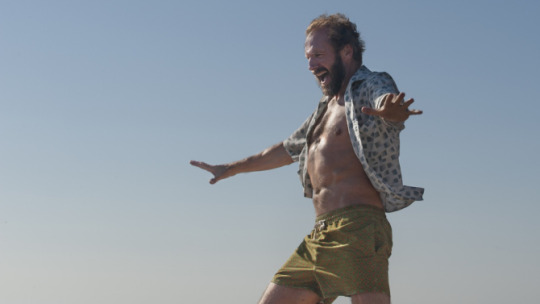
52. A Bigger Splash – Seems like it’s going to be a mature meditation on romance and desire until Ralph Fiennes shows up 5 minutes in, steals the entire fucking movie away from both the director and the rest of the cast, rubs his dick on the print, then sets it on fire while giggling to himself and dancing around naked. One of the best performances in a career filled with great performances. Movie goes downhill significantly in the last 30 or so minutes.

51. The Love Witch – Clever satire of gender dynamics as seen through the eyes of a love-addicted femme fatale witch. PERFECTLY nails the old-school Technicolor horror/sexploitation vibe. The art design, camerawork, hair/makeup, and even the way the actors behave is spot-on. Bravo to director Anna Biller and all involved as far as the technical aspects go. Story is at first detrimentally slow and the movie is far too long, but it picks up in the second half. Feels a bit too written, as if the characters occasionally stop being themselves and become mouthpieces for the writer/director.

50. Hardcore Henry – Let it not be said that there is no innovative filmmaking these days. Russian musician and music video director Ilya Naishuller was given a few million dollars to make a balls-to-the-wall action film filmed entirely from the first-person perspective of the main character. The most impressive thing about the stupidly-titled “Hardcore Henry” is how much mileage it manages to get out of its first-person gimmick, and how surprisingly well-made it is. Actual stunts are performed, effects are mostly practical (aside from a few bits of awful CGI), and you always feel like you’re in the body of the main character. The action scenes are fun and inventive, there’s a good deal of humor (I liked the bit with the overlapping subtitles), and Sharlto Copley gives a great performance as several incarnations of the same man with different personalities and looks. The plot is completely shit, and gets a bit too bogged down with exposition at times, but it’s never too intrusive. I suppose the biggest concern there is with this movie is if you can handle the filming technique, because the constant movement of the camera, especially during the action scenes, can give you motion sickness. I got a headache and a bit of nausea while watching it, but it could have been from the McDonald’s I had just before seeing it, so I’ll give it the benefit of the doubt. I think that it works much better on a small screen instead of a movie theater either way, and even while on the verge of throwing up, I had a good deal of fun with “Hardcore Henry”. If you’ve ever used a VR headset while on meth, it should give you a good idea of the experience.
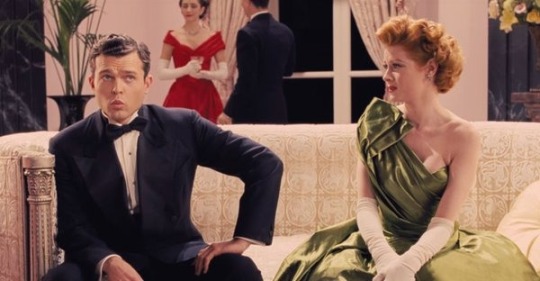
49. Hail, Caesar! – The Coen Brothers are my favorite filmmakers. So strong is their output that even their “bad” movies are good movies by any other standard. I don’t wish to imply that “Hail, Caesar!” is one of their “bad” ones, but it’s definitely on the lower end of their spectrum. The promotional material led me to believe that it would be a comic thriller about a 1950’s Hollywood fixer (a “problem solver” for studios) who teams up with a number of colorful showbiz people to rescue a kidnapped leading man. While the basic plot is there, the movie feels more like a leisurely series of vignettes about the colorful characters, loosely-connected by the fixer asking them for their help. It’s all amusing, colorful, and beautifully shot by eternal Oscars bridesmaid Roger Deakins, but it feels like it’s missing any sort of narrative thrust or stakes. The Coens don’t seem to be going for that sort of film, and it feels intentionally meandering and light, so the film is better if you go in expecting it. The writing is entertaining, but while the film is certainly hilarious in parts and never boring, some comedic bits feel stretched out for far too long (such as the scene with the religious leaders), which is unusual for the Coens.
The whole endeavor is less about plot and more about being a fun tribute-by-way-of-pisstake to Old Hollywood. It reminds me a bit of their earlier work “Barton Fink”, albeit broader, sillier, less existential, and much less cynical. We see old-fashioned editing rooms, grand movie sets, a wonderful musical number, Communism, etc. The Coen Brothers made a film that feels nostalgic towards a simpler era of filmmaking, while still acknowledging that even back then they made crap films. The biggest selling point in the movie is its’ all-star cast. I can’t remember the last time a movie had this many big-name actors attached to it. Sadly, due to the light nature of the story, a lot of them feel like glorified cameos, even if there isn’t a weak link among them. George Clooney is in top-form in the role of the kidnapped actor, the type of buffoon the Coens always seem to make him play. Channing Tatum is great as a tap-dancing musical star. Completely stealing the show is up-and-comer Aldren Ehrenreich, who plays a dopey but sweet cowboy actor, and who is so naturally funny, likable and charismatic here that I don’t have a single doubt about him becoming huge in the near future.
It just goes to show that even a lesser Coen Bros. film is still vastly better than the best work by most directors. While slow and kind of pointless overall, “Hail, Caesar!” is still a funny, gorgeous, and charming homage to the Hollywood Golden Age, one that rewards attention and repeated viewings, and welcomes them as well.
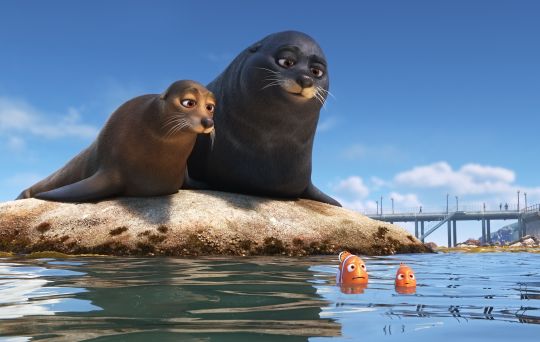
48. Finding Dory – Not on par with “WALL-E” or “Up”, but entertaining and nicely emotional. Feels like a welcome return to form for Pixar after so many years of disappointments. Bonus points for being the good kind of sequel, one that not only works on its own but actually adds new dimension to the original. Kind of disappointing, because before seeing the movie I was all ready to say “Finding Dory? More like FOUND IT BORING”. Nice message about family and taking care of a family member with special needs. Looking forward to “Finding Marlin”, where we see Marlin as an alcoholic going through a midlife crisis as he tries to singlehandedly raise a crippled son and his mentally handicapped friend.

47. Deadpool – One of my biggest pet peeves in movies is characters breaking the fourth-wall. I don’t mind a film being cheeky, but a movie occasionally pausing itself to acknowledge that it’s a movie annoys me to no end. I say this because “Deadpool” actually does fourth-wall breaking right, making it a key part of the humor and tone and story rather than an occasional “look at how clever and ironic we are” moment.
One would think because of this that “Deadpool” is just an endless series of self-referential jokes. It mostly is, but thankfully there’s an actual story, a bicycle for all the colorful tassels to hang on. Don’t get me wrong; the story is generic as hell. It’s still your typical superhero origin story, albeit one helped greatly by the nonlinear structure, alluding to Deadpool as an unreliable narrator. Also helping is a surprisingly engaging romance aspect, thanks to Ryan Reynolds’ and Morena Baccarin’s great chemistry and that the romance is a key part of the main character’s motivations (and that the girl feels like an actual character, not just a crowbarred-in love interest like almost every other comic book movie). One of the best scenes in the film is a montage of them “celebrating” various holidays.
Reynolds is perfectly cast as Wade Wilson, a role that his whole career since “Van Wilder” has been building towards. He effortlessly captures the character’s smarminess and gallows humor, but also makes him just likable enough to root for. Baccarin shows enough personality and comic timing that I certainly won’t mind seeing her having a bigger role in the sequel. The action sequences are the highlights. Tim Miller (in his directing debut) shows a clear aptitude for this, making the fight scenes bloody, funny, and visually creative, doing more with $60 million than most directors can do with $200 million.
Your enjoyment of “Deadpool” will come from whether you like its sense of humor. Given the sheer amount of jokes the film flings at the wall, a number of them are going to fall flat. However, to me a lot of them did land, and the movie is quite funny despite being a bit too in love with itself, and any comedy film that doesn’t give away its best jokes in the trailer (especially with a marketing campaign like this film had) is worthy of a recommendation in my eyes.
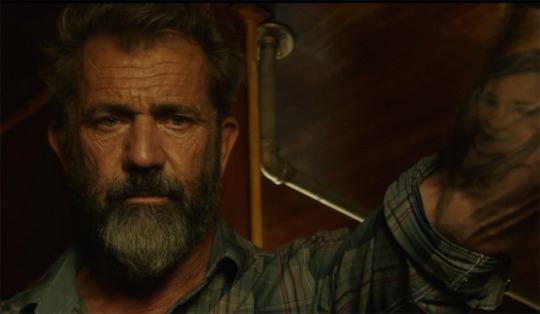
46. Blood Father – This is the best Liam Neeson movie that Liam Neeson never made. The action is tense and hard-hitting, the cast is good, and the movie is a very lean and efficient 88 minutes. However, there’s some distractingly bad editing at times, the plot is typical Liam Neeson fare (daughter is in trouble with criminals and seeks out her estranged ex-con dad to help out) and the dialogue is pretty wonky and overly reliant on swearing. Also, the girl is fairly annoying, but I suppose it suits her character so I won’t judge her too much for it. What makes the movie work is Mel Gibson’s performance. Looking increasingly like a shredded, captivity-era Saddam Hussein, Gibson is a volcano almost constantly on the verge of eruption. He plays a pissed-off man better than anyone, but he also showcases a good deal of humor and heart, able to convey more with his demeanor than most actors can with an entire monologue. Plus, watching him bite a guy’s ear off before head-butting him repeatedly is great fun. While Gibson is definitely better than the film’s B-movie material, he sells the hell out of it, elevating everything around him and making up for a lot of the movie’s flaws (you get the feeling it’d be much better if he directed it, as well). “Blood Father” is not quite the Mel Gibson renaissance-marking comeback I keep hoping for, but it’s good enough to recommend. Here’s hoping we don’t have to wait another few years to be reminded how great of an actor he is. Can’t quell the Mel.
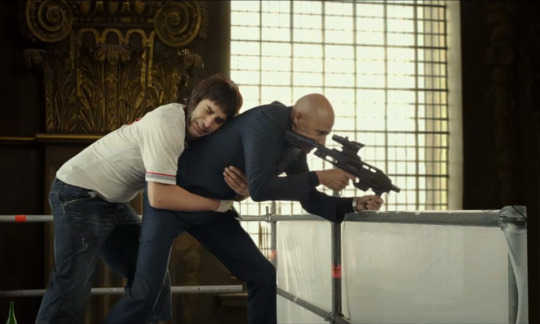
45. The Brothers Grimsby (AKA Grimsby) - It’s been a while since we’ve gotten a comedy from Sacha Baron Cohen. His stuff other than “Borat” has gotten a mixed reception, but I’ve always felt that that as a comic he has excellent timing and creativity, and even when not doing his famous “interacting with real people while in character” routine, the guy knows how to put together a joke. In a comedy world filled increasingly with endless cameos and cringe-worthy improv humor, it’s relieving to see a comedian that can still write a solid gag and perform it well.
Cohen plays Nobby, a trashy but kind-hearted English football hooligan who lives in Grimsby, a town so squalid that on a sign it says that its sister city is Chernobyl. He’s spent decades searching for his long-lost younger brother Sebastian (played by Mark Strong), and upon finally finding him he discovers that Sebastian is a highly-trained secret agent who is involved in stopping an elaborate terror attack. Naturally, shenanigans ensue which results in the two brothers teaming together to save the world. The plot is basically “What if James Bond had a fuckup brother?”
Some of the humor is as gross-out as it can get, getting plenty of use out of genitals and bodily fluids (there’s one sequence involving elephants that I don’t think I’ll ever forget). Quite a bit of the humor is based around English class differences, which may go over the head of American audiences, but I quite enjoyed. And some is just tastelessness and over-the-top comedic violence. Sometimes it doesn’t work, but I found myself surprised at how much did. There’s a good deal of set-ups and payoffs to the jokes, which I found refreshing, like someone actually spent time to craft the comedy in this film. I’ll say that I laughed pretty often, and I was never less than amused. Strong and Cohen have excellent chemistry together, and the film is at its best when it focuses on the two and their exchanges, with Strong proving to be an excellent straight-man to Cohen’s ridiculousness. It even has a nice little subplot about the two brothers bonding and coming to terms with why they were initially separated that even pays off during the climax.
The movie is a little over 80-minutes and moves at such a fast pace that even if a certain gag doesn’t work, it quickly moves past it. The trade-off to this is that when a gag does work, it’s not given much time to play out. I full-heartedly believe that brevity is the soul of wit, and it’s not a huge issue, but I do wish some of the jokes had a bit of breathing space. Probably the movie’s biggest sin is completely wasting its supporting cast. Penelope Cruz, Isla Fisher, Rebel Wilson, and Ian McShane all feel like bit players who are there just for plot purposes. Maybe that was intentional, to play the film like a straight-faced James Bond film with Cohen there to single-handedly derail it, but why cast talented, well-known actors in such useless bit parts?
I still recommend the film for being genuinely, unapologetically funny, and while a lot of its jokes are in bad taste, they never feel mean-spirited or overly edgy. They come from Cohen’s desire to shock you into laughing, but it feels self-aware and innocent enough that you’re more amused and bewildered rather than offended. Still, if gags about AIDS, incest, bestiality, casual gun violence, lower-class scum, and things being shoved into asses don’t sit well with you, then “The Brothers Grimsby” is not the bland, PG-13, all-inclusive safe-space you want, you precious snowflake.

44. Operation Avalanche – Starts off slowly and ploddingly but before long, it overcomes its’ potentially-gimmicky premise and occasionally unconvincing façade to become a surprisingly engaging and creative foray into “historical” found-footage bolstered by writer/director/star Matt Johnson’s deft storytelling and clear passion for filmmaking, with an unexpectedly excellent car chase to boot.
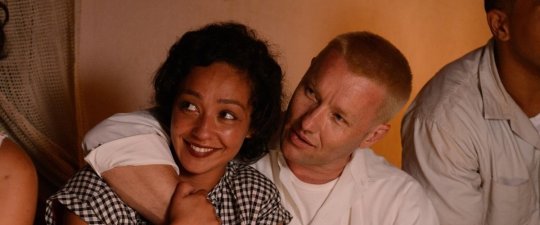
43. Loving – Jeff Nichols’ “Loving” is an account of Richard and Mildred Loving, an interracial couple who were arrested and then exiled for being married in 1950’s Virginia, and whose case to return home eventually went all the way to the Supreme Court. Given the material and the convenient title, you’d think this was blatant Oscar-bait all the way through, but for the most part it’s not. Jeff Nichols’ empathetic direction and the strong, restrained performances by Joel Edgerton and Ruth Negga as the two leads make this film feel human instead of exploitative. Nichols makes an interesting choice to keep the movie very personal and focused on the couple, with the broader Civil Rights Movement only briefly mentioned. I actually liked this approach as it makes you feel the pain and struggle and love of the characters first, and then by extension see how damaging prejudices (both institutional and personal) can be to people.
The film doesn’t completely escape Oscar-bait trappings, however. It still has the comedy-actor-playing-a-dramatic-role in the form of Nick Kroll as the ACLU lawyer assigned to the Lovings. He’s not bad or anything, but he feels a bit distracting and the role doesn’t amount to much. The music is fine, but it still has those corny inspirational cues at moments of triumph and perseverance, places where I think silence would have been much more effective. My biggest complaint is that it’s a Jeff Nichols movie and Michael Shannon is only in it for one scene. It's an important and good one, but you really wish he’d be in the movie more or maybe that’s just me because I LOVE MICHAEL SHANNON, HOLY SHIT. I've come to the conclusion that the quality of a Jeff Nichols film is often in direct proportion to how much Michael Shannon is in it (seriously, go see "Take Shelter" if you haven't already).
The best part of “Loving” is the two leads, who share a quiet but powerful chemistry, both of them reserved people whose love for each other you can feel in the littlest gestures and who don’t need any obvious histrionics or even words to show their feelings to the audience. It’s the solid core that makes the movie good, elegantly guided by Jeff Nichols’ confident and mature direction, even if the rest of it isn’t all that remarkable. Not quite a “Loving” for me, but eaily a “Liking”.
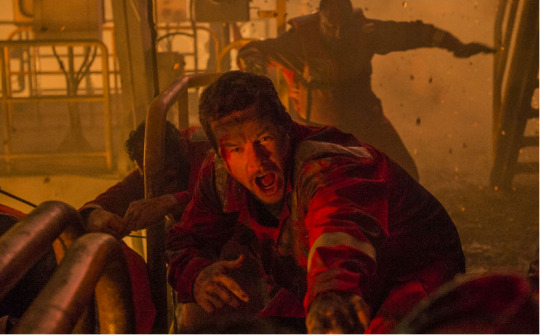
42. Deepwater Horizon - I’ve liked Peter Berg as a director ever since his underrated action-comedy “The Rundown”, starring The Rock back when he was still billed as “The Rock”. He shows an aptitude for action, pacing, and getting good performances out of his actors, but lately, he’s had a really bad case of hero worship. This, “Patriot’s Day” and “Lone Survivor” all have a frankly fetishistic view of real-life bravery, all ending in a text commending the bravery of those involved and including the names of victims, etc. This always felt like a cheap trick to me, one meant to elicit tears and nods of approval from middle-aged audience members who don’t go to the movies that often, rather than properly characterize his heroes. He gets around this somewhat by casting good actors who are likable enough that we care for them in spite of the weak writing and schlocky sense of patriotism. It all just feels weirdly exploitative of the real-life tragedies that the films depict.
As for the movie itself, it’s quite good. It starts with the prerequisite buildup on the Deepwater Horizon oil rig, showing negligence on the part of some of the management and the BP executives (read: strawmen), while showing the intelligence on display by the regular, blue-collar engineers and oil rig workers. I don’t deny that things were actually like this (truthfully, I don’t care enough to look it up), but it does feel pretty clichéd in movie form. Then the disaster hits, and there’s a solid 40-or-so minutes of the rig blowing up while the crew scramble to try to contain the situation and evacuate. This part is great. Berg’s technical skill is on full display, helping you follow the characters and what’s going on despite a lot of them speaking in mostly technical terms and the setting feeling like being trapped in a maze that’s on fire. It’s fantastically gripping, edge-of-your-seat stuff, helped by the theater-shaking sound design and convincing visual effects. The film ends with some tearful family reunions and heart-wrenching breakdowns when the survivors get back home. I’ll say that if I walked out of the film RIGHT after the screen faded to black, I would have a higher opinion about it.
If you like or at least don’t mind the hero-worship stuff, I’ll say that Deepwater Horizon is one of the year’s best-crafted thrillers, a disaster movie where the disaster actually feels scary and real as opposed to the dumb fun of something like “San Andreas”. I’m not against paying respects to the dead or to the bravery involved, but I think it should be done within the context of the film and the script, not forcing the audience to stay an extra five-minutes as some sort of memorial service that we paid money to attend.

41. Rams – This film is about a pair of Icelandic brothers who own neighboring sheep farms. They haven’t spoken to each other for 40 years due to implied but never explicitly-stated petty squabbles and stubborn jealousy, but are forced to work together to save their sheep when their flocks suffer from an outbreak of scrapie, a fatal degenerative disease that affects sheep and goats. This film is very affecting, low-key filmmaking, deftly handling heartbreaking drama, touching bonding, and even some surprisingly funny (albeit-bleak) comedy such as a scene where one character transports another to a hospital. It makes great use of the “show, don’t tell” filmmaking rule. Many scenes have little to no dialogue, but all serve a purpose in terms of plot or characterization or insight. The plot of sheep farmers trying to protect their flock may seem like a hard-to-relate-to storyline, but the film has universal themes of family and loss, and its observant and sympathetic storytelling makes the film accessible to anyone, even if they aren’t familiar with sheep mating procedures.

40. Kubo and the Two Strings - Laika has always been an overlooked animation studio, most known for making the wonderfully creepy “Coraline”, but finding little success in terms of box office even while their films are all quite good. Take “Kubo and the Two Strings”, a flawed but highly original and absolutely stunningly animated film that only managed to make a little over its production budget back, while “Zootopia” made over a billion dollars. Such is life.
The film itself is about a one-eyed boy named Kubo who is hunted by a vengeful demon and must team up with a magical monkey statue and a beetle-man to find some mystical MacGuffins that can help defeat it. It starts out very well, showing the boy’s daily routine of using his magic guitar and origami to tell stories to the local villagers. After shit goes inevitably down, it’s still quite compelling for a while, bringing a melancholy flavor to the boy’s journey and his interaction with his two companions. The problem is that the actual plot is pretty uninteresting, especially after the predictable late second-act plot twist, and while I can appreciate that the conflict resolution in the third act doesn’t just end by one character beating up another, the actual manner in which it’s resolved is pretty dumb.
The reason to see “Kubo and the Two Strings” is its gorgeous stop-motion animation. I had to smack my mouth a few times to remind myself that I wasn’t looking at high-quality CGI. It’s reassuring to learn that Laika is owned by the billionaire former CEO of Nike, so the studio isn’t exactly hurting for cash and can continue to focus on making their original and creative and beautiful movies without needing to dumb them down for most audiences, but it’s still a little depressing when good, accessible films fail to find their audience. While flawed (and nowhere near as good as “Coraline”), “Kubo and the Two Strings” is worth checking out if you love stop-motion animation as much as I do and you’re just waiting for the next Aardman film to come out.
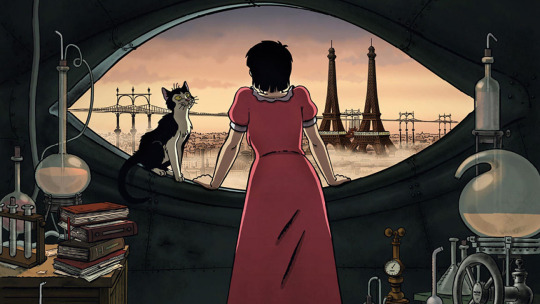
39. April and the Extraordinary World - In an industry almost completely dominated by 3D CGI-animated films, it’s somewhat refreshing to come across a traditionally-animated 2D film. “April and the Extraordinary World” is a French film set in an alternate-history 1940’s where the world’s foremost scientists of the past several decades have gone missing, causing crucial technological innovation to not happen and for the world to continue relying on coal and eventually wood-burning steam power. In a world on the brink of war for resources, April is a young French woman whose parents are two of the missing scientists, and we follow her and her talking cat Darwin as they attempt to solve the mystery behind the disappearances.
I want to start off by mentioning the art style. The characters are the simple but expressive beady-eyed 2D people you’d expect from European animation, but the design of the bleak steampunk world and the technology is amazing. However, and this is what I really like about the film, while it shows how cool-looking steampunk technology can be, it also criticizes it for being completely retarded and impractical and damaging to both the environment and to people, cosplayers be damned (Europe is completely treeless and characters have to wear gas masks if they’re outdoors for too long). The characters (especially the talking cat) are spunky, entertaining, and even have their fair share of depth. The film carries a nice message about using science and optimism instead of violence and negativity to solve the world’s problems. This feels more like the film that “Tomorrowland” should have been, before it got Lindelof’d.
However, it does have kind of the same problem that “Tomorrowland” did, in that the third act gets pretty stupid. It’s certainly not as bad or as nonsensical as it was in that film, and while the plot twist and eventual revelation are actually built towards instead of just dumped on us, it does get rather silly and I sort of lost interest. Without spoiling too much, it does end up relying on that tiresome “in order to save humanity, we have to destroy it” sci-fi cliché that was dumb even back when “The Terminator” did it.
Still, on the whole, I was surprised by how much I liked “April and the Extraordinary World”. While it certainly loses some steam near the end (pun originally unintended), it’s still engaging and surprisingly entertaining enough for the duration of its running time to warrant a recommendation.
Note: If you can, see the French-dubbed version. The English voice actors are good, but the movie and lip-sync feel off by not being in their original language. For the record, this is the only time I’ll ever say that something (other than bread) is improved by being French.

38. Mascots – To me, a mark of a good comedy is if it makes me laugh a lot. By that criteria, Christopher Guest’s latest mockumentary about a professional mascot competition and its participants is a good comedy. There’s not much to say about this film if you’re familiar with Guest’s other improv-heavy comedy films, and structurally it’s very similar to “Best in Show”. It’s not as good as that gem, partly because it feels like a more manufactured scenario, a parody of a part of culture and a competition that doesn’t feel real in the first place (as opposed to the biting satire of the very real world of professional dog-shows), and partly because Fred Willard is only in this for like 5-10 minutes instead of 40-45. Guest regulars Eugene Levy and Catherine O’Hara’s absences are also felt.
Still, what I like about Guest’s style of comedy that I despise about the Judd Apatow/SNL style of improv is the timing. He knows how to edit his jokes and his characters to keep them funny, and he knows when to let a joke go, as opposed to letting it linger and rot. The fact that he doesn’t write screenplays or hold any rehearsals for himself and his cast pretty much means that he films them performing improv and leaves in whatever is funny. Despite the aforementioned absences, the cast here is still great (with standout performances by Parker Posey, Susan Yeagley, and the guy who fucks from “Silicon Valley”), the movie has plenty of laughs and a surprising amount of poignancy and sweetness, and some of the actual mascot routines in the latter half of the movie are both hilarious and even breathtaking, particularly one involving an expressionist modern-dance about feminism and art in an armadillo costume.
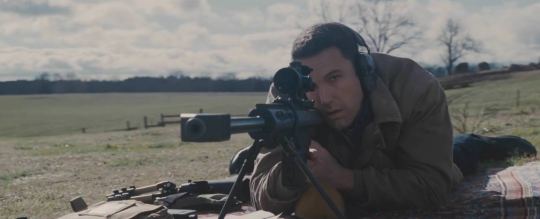
37. The Accountant - One of the most entertainingly uneven films I’ve seen in a long time, “The Accountant” tries to be a character study, a corporate thriller, an operator-style action film, a family drama, a quirky comedy, a PSA about autism, and it even flirts with being an odd-couple romance. It never really comes together in the traditional sense, but I’d be lying if I said it wasn’t a blast watching it try.
The plot is about an autistic accountant who in his secret-life uncooks finances for some of the world’s most dangerous people, and how a seemingly simple assignment in auditing a robotics firm becomes dangerous and blah-blah-blah. This movie has far too much plot and little of it is worth caring about. Where it works surprisingly well is in the character study of the main character, Christian Wolff (who sounds like a name belonging to a character in a cheap erotic novel you can find in airport shops). You see his upbringing, the circumstances that led him to his current career, and his routines in trying to deal with life with high-functioning autism. I (cheekily) said from the start that Ben Affleck is perfect casting for an ass-kicking autist but he’s actually, genuinely, unironically good in a committed and fleshed-out performance that wouldn’t feel out of place in a more serious movie about adults with autism.
In trying to do the other aspects, however, the movie kind of falls apart. The first act is a mostly straightforward setup that you could be forgiven for thinking that it won’t even be a thriller. Wolff’s awkward bluntness around neuro-typicals is played for mild chuckles, because of course it is. Only at the end of it do we see that he’s a badass operator once he’s betrayed and people try to kill him. The second act where a government agent played by J.K. Simmons gives us a 10-minute exposition dump is pretty dull. There’s a hint of some romance between Wolff and a young accountant whose life he saved played by Anna Kendrick, but thankfully it’s never fully realized (“Gosh, I find your lack of social development and the way you cleanly killed the men who attacked me soooo sexy.”)
It’s only in the third act where he goes out to get the people who are after him where the movie becomes a wonderful nirvana of schlock, the “John Wick meets Rain Man” asploitation I hoped it would be. I’m not going to spoil too much, but it has the two funniest plot twists of any film this year, a solid 5 minutes where a caretaker at a home for autistic children gives a PSA about caring for people with disabilities, and a hilarious and completely unnecessary villainous monologue for the ages, courtesy of a paycheck-loving John Lithgow. My only complaint at that point were that there were no accounting-related one-liners in the film, including but not limited to:
- I just depreciated YOUR LIFE
- Don't write me off as a loss just yet
- They must be held accountable
- She's becoming a liability
- He's likes torturing people. He's accrual man
- A character named General Ledger
I don’t know. I chose a dull major, alright?

36. Moonlight – Clichéd dialogue and an annoying tendency to skip over some important/interesting events in the main character’s life, but empathetic performances, a great cast, and a good understanding and balance of the movie’s story and its’ theme of identity. I’m a bit of a tough nut to crack, emotionally speaking, so I feel like the subtle approach from this movie didn’t affect me as much as it did the many people who hail this film as the Second Coming of Christ.
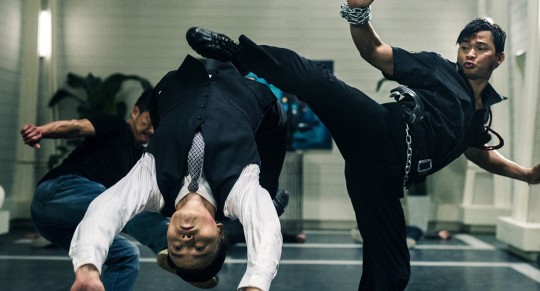
35. Kill Zone 2 – Insane, jaw-dropping, balls-to-the-wall fight scenes that are too often hampered or outright interrupted by that silly and intrusive “plot” nonsense that unfortunately characterizes most post-Jackie Hong Kong kung-fu films. Still, any film that has Tony Jaa doing a flying double knee through a bus windshield and into the driver gets a recommendation from me.
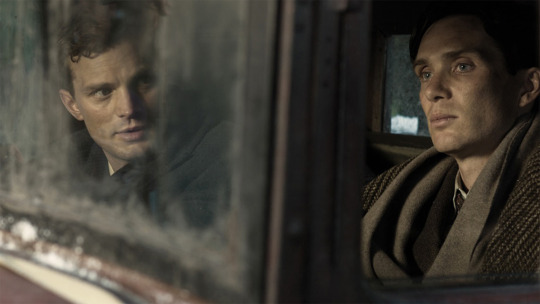
34. Anthropoid – “War is not romantic”.
I’ve always held a soft spot for well-made genre films, and “Anthropoid”, a World War II thriller that, despite a title and poster that look like they belong to some sci-fi horror movie, is certainly that. “Anthropoid” is about a historical real-life mission by the Czech Resistance to assassinate a high-ranking Nazi official in occupied Prague. What I like about this movie is how solemn it is. None of the good guys are clear-eyed heroes who live happily ever after. These are anxious, grimly-professional saboteurs. Most of the resistance members question over whether killing one man is worth the possible consequences it would bring to the Czech people, while the two leads soldier on, determined to follow their orders. Cillian Murphy and the guy from “50 Shades of Grey” (Jamie Dornan) make for a likable pair of leads, and the characters feel human instead of movie-ish. Even during their romances with two local Prague women, it feels less like forced Hollywood trite and more like people trying to comfort each other in a hopelessly bleak environment.
The movie starts slow, but builds well to the more thrilling stuff. Interestingly (minor spoiler), the assassination attempt only occurs halfway through the movie, with the second half being the fallout and repercussions. A more generic movie would have ended with the assassination, before including text commending the bravery of the Czech Resistance and how their mission was successful, but “Anthropoid” instead shows and talks about the horrible things the Nazis did in retaliation, including killing thousands of Czech civilians, before showing what happens to the Resistance members involved in the assassination. I won’t ruin it, but the last half-hour of the movie is pretty devastating stuff.
There’s nothing particularly wrong with Anthropoid, as long as you don’t mind the slow build. It doesn’t really strive for greatness or deep meaning in any way. It’s just a well-made, well-acted, tense, bleak, and morally grey look at an important event in World War II and how it (and war in general) affects people. Bonus points for the cast actually making an effort to speak with Czech accents, instead of the usual historical non-British movie done entirely with British accents.

33. The Siege of Jadotville – Hey, speaking of solid genre flicks starring Jamie Dornan! I love a good war film, so when I heard that when Netflix produced one set during the Congo Crisis of the 1960’s, a refreshing change from the usual “popular” wars like WWII, ‘Nam, and Iraq/Afghanistan, my ears perked up. The plot is about an Irish company of UN peacekeepers who are sent to the tiny town of Jadotville in the resource-rich Congo during a period of upheaval and civil war. Murky politics and other UN operations in the area make things worse, and in retaliation the rebel government and French/Belgian mercenaries send a massive force to attack the isolated Irish troops.
There’s about 40 minutes of setup, in which we see the soldiers (led by Dornan), most of them still teenagers, at home before they get shipped off, we get a broad overview of the political climate in the Congo, including the coup leader and the UN representative sent to assist the central government (played by a shitty hairpiece with a Mark Strong attached to it), as well as the situation that led to tits going up for the peacekeepers. The remaining hour of the movie is the titular week-long siege, with the Irish defending a tactically disadvantaged position with limited food, ammo, and water against a very numerically superior enemy.
All of this is very well-crafted, with good pacing and editing, especially during the battle scenes, which are tense, harrowing, and filmed in a way that you actually get a solid idea of the geography of the siege. History, and even the movie at one point, both say that there were 150 UN troops at Jadotville, but it never seems like there's more than a few dozens of them. It's not a huge issue, but a little distracting.
The characters are pretty thin, with only a handful of the soldiers actually having names, and the writing is nothing special. It’s efficient in the sense that it gets the necessary information across and doesn’t intrude on the story, but it does have the usual clichés you see in a war film. The soldiers are portrayed as brave, noble, and heroic, while the UN leaders and generals are shown as callous, selfish, and incompetent. After some reading into the history, I found that this is not untrue, but it still feels like a conventional audience-pleasing dynamic. To the film’s credit however, it does a nice job of showing how morally grey the conflict was, without really claiming moral superiority for either side, but still makes you care for the UN soldiers at the heart of it. Even the trademark ending text is done tastefully and respectfully.
If you want a compelling, well-crafted war film and have a Netflix subscription, then “The Siege of Jadotville” is worth checking out. Between this and “Anthropoid”, Jamie Dornan has proven himself a capable (and wonderfully mustached) leading man, and in my eyes has done a good job getting his reputation back to “respectable” after “Fifty Shades of Grey” and...oh, there's two sequels to it coming out? Well, here's hoping for more good war films from the lad afterwards.
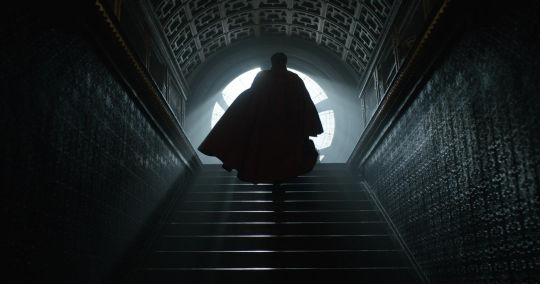
32. Doctor Strange – Same-old shit from Marvel, in terms of writing and story, but at least contains enough beautiful visuals and creativity to take away a good deal of the staleness. Bonus points for having a climax that is the exact opposite of a typical superhero destruction-fest.

31. The Magnificent Seven – At a film festival like TIFF, which is mainly meant for foreign, independent, arthouse films and prestige pictures, “The Magnificent Seven”, a remake of John Sturges’ 1960 original and an unapologetic, old-fashioned Western, stands out. As a genre-film aficionado, that appealed to me enough that I saw this movie even though it would come out in theaters a few weeks later.
And I’m glad I did. “The Magnificent Seven” is just plain, loud, over-the-top fun. If you see the trailer, the movie is exactly what you think it’ll be like. A woman seeks frontier justice against the power-hungry coal baron who terrorizes her town and murdered her husband, and pays a bounty hunter (Denzel Washington, who looks like he was born to play a cowboy in this movie) to go after him. He recruits 6 more outlaws, killers, and warriors to aid him in his quest to protect the honest townsfolk from the evil businessman and his army. Whiskey is drunk, guns are drawn, banter is exchanged, and lots of people get shot and blown up. Antoine Fuqua (an expert in making solid genre flicks) keeps the movie paced well, gives the characters breathing space to flesh out a bit, and makes the action loud, exciting, and well-filmed. No shaky-cam bullshit here, just good, efficient filmmaking with lots of nice Western vistas.
The cast is strong, especially Washington and Chris Pratt (who I worried would be out of place but acquits himself well here), along with solid supporting players. The writing is nothing special, but gets the job done, although there are some unfortunate missed opportunities at character development and payoffs, especially when it comes to Ethan Hawke’s (fabulously named) Goodnight Robicheaux, a former Confederate sharpshooter who hung up his guns. Also, a minor issue, but the film severely overplays how effective a mid-19th century gatling gun is.
There’s nothing altogether remarkable about this remake from a quality standpoint, but in a year filled with failed reboots and sequels and unremarkable superhero films, a good, solid personality-filled Western shoot-em-up about a multicultural team of badasses teaming up against the evil establishment is more than a welcome breath of fresh air.
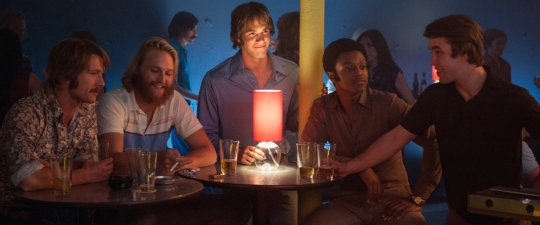
30. Everybody Wants Some!! - Richard Linklater’s spiritual sequel to “Dazed and Confused” feels very much like a Richard Linklater film. There’s not much plot; it’s just about a college freshman baseball player and his team’s escapades over the weekend before the semester starts in the fall of 1980, as they hang out, go party, try to get laid, and attend their first practice. There’s no real structure to this film. It’s meandering in typical Linklater fashion, where the movie is more about the characters, the setting, and the dialogue. If you don’t mind this sort of thing, “Everybody Wants Some!!” is a very enjoyable movie. The characters and performances are on point, the banter is entertaining, the music is great (used especially well during a scene where the characters drive around town singing “Rapper’s Delight”) and even when Linklater waxes philosophical as he sometimes tends to, it feels less pretentious and more like the characters being themselves. When they talk about life, man, they’re often drunk or high or sleep-deprived, which feels like a nice bit of self-awareness from Linklataer. It even gets a bit inspirational at times, as the themes of finding out your identity and place in life and making the most of your short time on this Earth hits home surprisingly well. Funny, charming, and likable in every way that “Boyhood” wasn’t, “Everybody Wants Some!!” marks a welcome return to form for Richard Linklater, which is amazing considering it didn’t even take TWELVE YEARS to make.
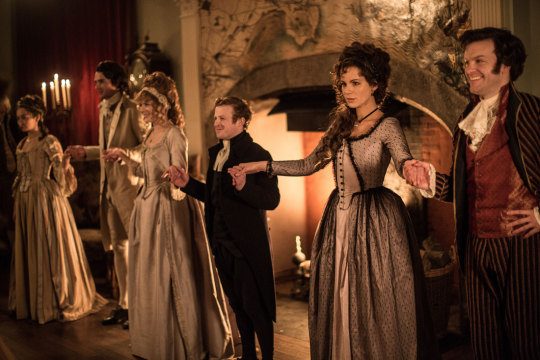
29. Love & Friendship – Not being a big fan of hoity-toity costume dramas and having never read any of Jane Austen’s work, I really didn’t think this Austen adaptation would appeal to me. However, following the initial 10-15 minutes where my brain adjusted to the Regency-era English, I found that I really enjoyed this film. It’s a comedy of manners centered on a widowed socialite (played by the never-better Kate Beckinsale), a cunning and manipulative woman who is well-known as the best flirt in London, and her attempts to get her daughter married to a wealthy suitor as she herself juggles those in her social circles. I found myself loving the barbed interplay between well-written characters. The cast is uniformly excellent, with a strong performance by Beckinsale and a show-stealing turn from Tom Bennett as a wealthy but utterly gormless suitor, the kind of man who keeps talking even when he doesn’t know what he’s talking about, and who is completely enchanted by the “tiny green balls” at dinner (peas). The whole movie is kind of plotless, with very little narrative drive and it feels like important character developments are often skimmed over (two characters have a pleasant conversation in one scene and are married like, 5 minutes later). The whole movie feels very light, albeit very watchable. Watch it for the excellent cast, the lovely sets and costumes, and for the genuinely hilarious writing, but don’t expect to be all that invested in what happens. The whole thing feels like a dinner party with much wittier and politer versions of your extended family, albeit just as catty and spiteful.
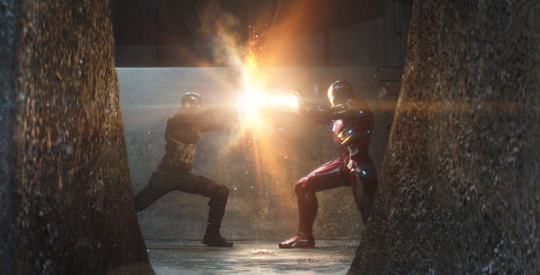
28. Captain America: Civil War - By now most people have acknowledged the problems with the Marvel Cinematic Universe. While most are solid superhero flicks, they all feel kind of safe and sterile, films marked-tested to appeal to as large an audience as possible. While this leaves less room for error, it also limits how good they can become. If all you want is good actors wearing ridiculous costumes punching each other and destroy expensive CGI environments while mumbling groan-worthy quips, the MCU has got you covered. Those of us who want them to approach something like Raimi’s Spider-Man films or Nolan’s first two Batman films are often left wanting. Sometimes it has gotten better than the norm. The first half of “Captain America: The First Avenger” was excellent before it became kind of a rushed mess in the second. Shane Black’s “Iron Man 3” felt like the only genuinely auteur-driven film in the whole MCU (if only because so much of the humor is based on what Black and Downey Jr. accomplished in “Kiss Kiss Bang Bang”). “Captain America: The Winter Soldier” is still the high point of the MCU, a terrific and surprisingly character-driven action thriller that barely felt like a superhero flick. The point I’m laboriously trying to get to is that while “Civil War” for the most part takes itself seriously and actually approaches “Winter Soldier” levels of greatness, it can’t help but fall back on the lame, quippy, fanboy-masturbating sameness that has defined this cinematic universe since Joss Whedon first got involved with the franchise.
The plot is that a mysterious man frames Captain America’s friend Bucky for a terrorist attack, while Tony Stark feels guilty about collateral damage caused by the Avengers’ various battles and wants to sign some UN accord to make the Avengers government regulated, and tries to hunt Cap down when he goes rogue to try and protect Bucky. It’s pretty convoluted stuff if you’re not already caught up on the franchise, but not too difficult to follow. My main concern going into this film was that it’d be more of an “Avengers” film than a “Captain America” film. Cap’s films have a good track record, while the two Avengers movies are kinda crap. Thankfully, the heavy focus is on Cap and his efforts to protect Bucky from an increasingly hostile and angry Tony Stark. Despite what the marketing tries to say, the whole UN accord business feels minor at best, only there for a #WhoseSideAreYouOn hashtag to appease the autists who want their precious comic-book to be faithfully adapted. The story is surprisingly engaging, and while the aforementioned mysterious man is the real villain and does an effective job, the role of antagonist is actually filled really well by Iron Man. The characters are given enough room that pretty much everyone in the ensemble gets a moment to shine, the pacing is good, and (despite the Russo Brothers’ annoying use of shaky-cam and fast editing) the action scenes are solid and actually serve a purpose. It was almost a great “Captain America” film. And then Spider-Man shows up.
Spider-Man was added to this film halfway through filming due to Marvel striking a deal with Sony Pictures for the rights to the character, and his crowbarring into the movie is really obvious. There’s a whole half-hour of the movie that he’s in, where from introduction to the big punch-up at the airport to his exit, it feels like a completely different film, filled with the aforementioned light-hearted quippy humor that pretty much completely dissolves all tension, momentum, and conflict that movie had done a pretty good job building up to that point. It’s not bad in and of itself, but it feels like it suddenly became an “Avengers” movie, a big-budget re-enactment of a 10-year-old boy playing with his action figures. The only reason I don’t despise this part of the movie is because it at least has a few genuinely funny moments (most of them courtesy of Paul Rudd’s Ant-Man). The film recovers fairly well from this, and actually serves up a strong and pretty emotional climax that isn’t just wanton CGI destruction, but it still left a bad taste in my mouth, like I was bukkake’d by neo-nerd hipsters while sleeping and managed to clean myself off but the stains on my soul remained.
Look, I’ve said a bunch of negative (and some disgusting) things about this movie and the MCU in general, but “Civil War” is overall a good movie. The character work is strong, it’s occasionally funny, the cast is mostly terrific, and it’s definitely in the upper-echelon of this franchise. But the things that hold this series back (the sameness, the dull visuals, the lack of stakes, circlejerking, etc.) hold this movie back as well. Who knows? Once they’re done with this phase of the MCU, they can actually start to experiment and not just make the same kind of movie over and over, because let’s face it; people will come see these anyway. Hell, give me a She-Hulk movie directed by David Lynch, or a blaxploitation-style origin story about Nick Fury starring Michael Jai White, or a musical romantic-comedy about Squirrel Girl directed by George Miller. I don’t know. I’d rather see any of those than ANOTHER GODDAMN SPIDER-MAN REBOOT.
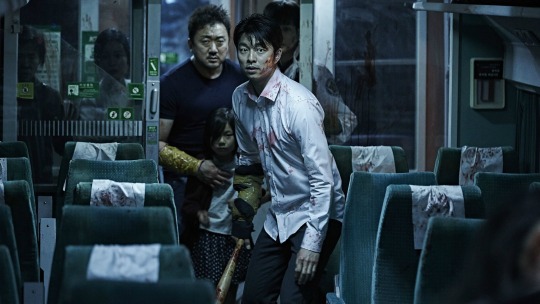
27. Train to Busan – Pretty much what you’d expect, plot and character-wise, from a zombie movie, but damned if South Korea doesn’t possess some of the finest film directors in the world, and Yeon Sang-Ho brings his A-game to revitalize an appropriately undead genre. Great cast, intense and creative set-pieces, and a nicely emotional focus on character. I’m not Korean, so I’m not sure if there’s any satire or message involved (the film does seem like a pretty accurate depiction of South Korea when StarCraft II servers go down). Somewhat dragged down by iffy CGI and the hair-pulling stupidity and dickheadedness of main human antagonist, who makes “The Walking Dead” Season 2-era Shane seem like a rational and believable fellow.
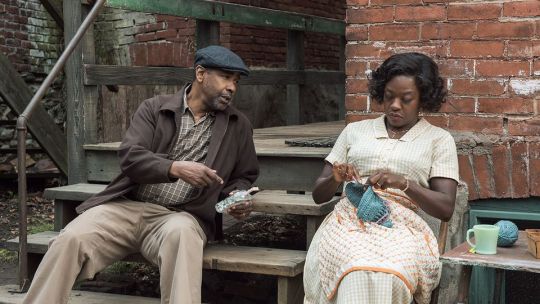
26. Fences – Little more than a filmed play, but a well-filmed one bolstered by good writing and knockout performances from Denzel Washington and Viola Davis. About 20 minutes too long.
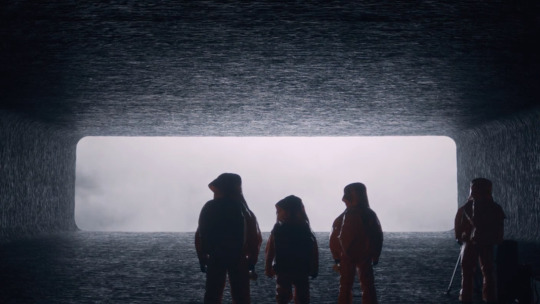
25. Arrival - Canadian director Denis Villeneuve has been making quite the reputation for himself in recent years for his mature and well-crafted thrillers. While I find his movies just a touch overrated, I do admire a lot in them, from the technical craft to his ability to command strong performances out of all of his actors. This year’s “Arrival” continues that trend, marking his most mature film to date and one of the extremely rare mainstream hard science-fiction movies to come out these days. This is not a movie about laser battles and space explosions and sticking your tongue down the throats of hot human-looking alien babes (I’m excited for “Mass Effect: Andromeda”, alright?), but about communication.
Several banana-shaped alien spacecraft touch down at random points around the earth without any apparent motive or pattern, and countries around the globe bring experts together to try and communicate with them. The plot centers around linguistics professor Amy Adams, who is brought in by the military along with a physicist played by Jeremy Renner to head into the alien craft in America to try and set up communications with the aliens. It’s a neat perspective to see one of these alien contact movies from someone trying to understand them rather than fight them, and Amy Adams turns in another strong performance as a woman who is experiencing a personal crisis while being at the very center of a worldwide phenomenon. The rest of the cast is good too, but this is her movie to command, and she does so with ease.
While Villeneuve no longer has Roger Deakins as director of photography to rely on, he and his new DP Bradford Young make this a very strikingly beautiful movie, filled with bleak subdued colors but with an astonishing sense of scale. The scene where Amy Adams enters the alien craft for the first time is outstanding, with the camera work, lighting, and environment doing a genuinely amazing job conveying how…well, alien the ship feels. I also like the design of the aliens themselves (a sort-of cross between the facehuggers from “Alien” and the Reapers from “Mass Effect”), a refreshing change from the humanoid aliens you typically see in sci-fi.
The plot is surprisingly brainy, primarily concerned with the process of establishing of communication and later a very different perception of time and choice from how we typically perceive them. It’s not too difficult to wrap your head around this stuff, but you do have to pay attention, because this isn’t a movie that dumbs itself down or holds your hand.
As much as I admire and enjoyed the movie, I do have a criticism, and it’s that the whole thing feels…cold. I don’t just mean the color palette or the really strong air conditioning in the theater where I watched it. I mean emotionally cold. I’ve heard a lot of people praise how emotional the film is, but it didn’t really affect me all that much. Even the scenes with Amy Adams and her daughter, no matter how Malick-y they’re shot, felt mostly like salad dressing to try and make the audience connect with the main character. Even when you (no-spoiler) find out the plot significance of these scenes, I liked it much more on an intellectual level than on a gut-level. Also, and this part is hard to explain without spoilers, but there’s a love story that’s pretty crucial to the theoretical concepts later in the film that feels comically underdeveloped, like we’re supposed to believe these people fall in love despite working with each other for a few days and rarely talking about anything other than work (and because they’re attractive movie stars, of course). Plus, there are quite a few annoyingly clichéd characters, like the fear-mongering radio talk show host, the weary and no-nonsense military man, and a Chinese officer named General Shang who apparently rules the entire country of China without answering to anybody.
Despite these niggles, I still liked “Arrival” a lot. It attempts (and in my mind strongly succeeds) to present a realistic scenario of what alien contact would be like in today’s political and cultural climate, and again, it’s really refreshing to see a science-fiction film where science, communication and peace are used for conflict resolution as opposed to violence. It’s really ambitious on both a thematic level and a technical one (the special effects in this movie are some of the most seamless and believable I’ve ever seen), and even the problems I have with the writing don’t distract from Denis Villeneuve’s directorial talent. Here’s hoping he doesn’t screw up the new “Blade Runner”.

24. Shin Godzilla – Lacks the awe-inspiring visuals and sense of scale of Gareth Edwards’ “Godzilla” (which I forgive because this had like 1/10th the budget), but makes up for it with a richer story and sense of humanity. Whereas that film is about our powerlessness at the hands of giant monsters, this one is more about working together to overcome it. What begins as a bureaucratic farce eventually gives way to the Japanese government putting aside any squabbles and politics to focus on saving the lives of its citizens from a giant, rampaging lizard. It’s kind of inspiring to see a movie like this where a government tries to prevent destruction instead of causing it (with a not-so-subtle pisstake of the Americans, whose contribution to the efforts amounts to little more than bombing and almost nuking Tokyo). Plus, Godzilla himself is awesome here, looking and acting like a genuine monster, and pulled off with a nice mix of practical and digital effects (other than his initial form where he looks like a retarded CGI iguana with googly eyes). Kickass soundtrack, as well.

23. War on Everyone – “I’ve always wondered; if you hit a mime (with a car), does he make a sound?” Michael Peña’s character wonders out loud at the start of the movie, right before he and his partner (and driver) find out. Within one minute of the movie, you already know if it’s for you or not. “War on Everyone” is about two cops (Peña and Alexander Skarsgård) who are as corrupt as they come. They regularly blackmail and beat up suspects, take bribes, and drink on the job. They never really try to justify this behavior. Their attitude can be best summed up by a line Skarsgård says before getting into the driver’s seat of a car while piss-drunk; “Let’s go fuck some scumbags.” There’s some plot about their investigation into a robbery/murder orchestrated by the guy from those shitty “Divergent” movies who looks like discount-Toby Kebbell, but the plot feels like an afterthought. It’s more so about the two characters and their antics and their musings on life, greatly enlivened by the excellent performances and chemistry of the two leads, as well as the cracking, pitch-black funny script from writer/director John Michael McDonagh (who also made the fantastic Irish gems “Calvary” and “The Guard”). This feels like if McDonagh made a Shane Black film. It’s not a powerful meditation on faith and morality like “Calvary” and it’s not a great character-study like “The Guard”, but “War on Everyone” shows that even a lower-tier McDonagh film is still as hilarious and biting as they come, and it even comes with a bit of heart and soul. Still, definitely not recommended to the easily-offended. It feels kind of pointless, but I could listen to McDonagh characters talk shit to each other all day.
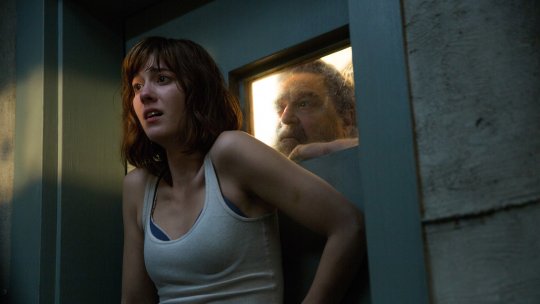
22. 10 Cloverfield Lane - I will try to be as spoiler-free as possible in this review. Honestly, if you STILL haven’t seen it and want to, just go watch it and know that it definitely comes recommended.
I’ll admit it; even though I wasn’t a huge fan of the shaky-cam monster-athon that was “Cloverfield”, the mysterious and vague trailer for “10 Cloverfield Lane” got me properly hyped up as I tried to figure out the connection between the two movies. In an unusual twist, most of the movie is only tangentially a work of science-fiction. The plot is about a young woman named Michelle who runs away from home as some vague disaster occurs. She’s knocked out, and wakes up in an underground survival shelter run by a paranoid survivalist named Howard, along with a young guy named Emmett. Howard says that there has been a massive attack, but Michelle is skeptical and is unsure if Howard is trustworthy or crazy.
The bulk of the film is in the bunker, as the trio try to cope with the various realities of living in a survival shelter, including each other. This entire section is excellent. Deftly alternating between lighthearted bonding, uncomfortable comedy, and pressure-cooker intensity, debut director Dan Trachtenberg shows he is an expert when it comes to tone, pacing, and atmosphere, further enlivened by Bear McCreary’s terrific score. Even better is the main trio of actors, all of whom play off of each other well and really flesh out their characters. The guy who plays Emmett displays a dopey likability that suits the character well, while Mary Elizabeth Winstead makes Michelle much more intelligent, tough and compelling than your average "horror" protagonist (I use that term broadly). Powerfully commanding the whole movie is John Goodman, who easily makes Howard sympathetic at times and genuinely terrifying at others. This is a brilliantly batshit performance by one of our very best character actors, and even if the rest of the production wasn’t up to par (which it definitely is), he alone would make this film worth watching.
The reason this movie isn’t higher on my list is because of the last 10-or-so minutes. Without going into detail (and the trailer gives this away anyway), Michelle leaves the bunker by the end. It’s like the entire film gets wrapped up and ends satisfyingly, but then it goes on for another 10 minutes that feels like a completely different movie with a whiplash-inducing change in tone. It’s all still skillfully made and well-acted, but the effect just feels bizarre if you’re watching it for the first time. At first I thought the sequence was there to connect it to the first “Cloverfield” and make it a semi-sequel, but it’s too vague for me to buy it.
Maybe it is all some continuous “Cloverfield” universe, or better yet, it’s an anthology film series in the vain of “The Twilight Zone” or “Black Mirror”, one where talented up-and-coming directors make unique sci-fi thrillers. If that’s the case, it’s best not to read too much into the ending, and to just try and accept the movie as a standalone despite the jarring tonal shift at the end. One thing I actually quite liked about the ending is that it satisfyingly concludes Michelle’s character arc, making her a surprisingly well-developed protagonist that has actually grown by the end. Maybe if I watch this again (and I do plan to), I’ll like it more and probably give it a higher spot on the list, but even on a first impression, “10 Cloverfield Lane” is an engaging and balls-tighteningly tense thriller with a top-notch cast and production working at the top of their game. John Goodman is so good, man.

21. London Has Fallen – Holy hell, where do I even begin? Rare is the movie where I honestly cannot tell if it’s trying to be a comedy or not. It has a serious post-9/11 depiction of terrorism, but it treats all the bad guys like cannon fodder to be disposed of in spectacular ways. It has some lines about the consequences of U.S. foreign policy in the Middle East, but these lines are throwaway at best and never brought up again. It tries to somewhat humanize its villains, but it also has Gerard Butler executing a wheel-chair bound terrorist before going on a tirade about how they’ll never win and that America will still be standing in a thousand years (not sure if the Third Reich comparison is intentional).
The action scenes are competently shot/staged, if unremarkable (despite a fun CGI-assisted long-take shootout). The script feels like it was either written in a weekend or improvised on the spot by Butler and company. In fact, I feel like this wasn’t originally written as a sequel to “Olympus Has Fallen”. None of the previous movie’s events are referenced, and all the recurring cast members (save for Butler and Aaron Eckhart) feel like glorified crowbarred-in cameos. It’s absurd to have a White House cabinet of Oscar winners/nominees and give them all a collective 5 minutes of screen-time. I’m pretty sure Oscar-winner Melissa Leo doesn’t even have any lines. I’m sure the paycheck was nice, at least. The first 15 minutes or so are fairly boring, even if things pick up considerably afterwards.
The one indisputable quality this movie has is Gerard Butler. Butler gives a genuinely jaw-dropping performance as bloodthirsty and very likely insane Secret Service agent Mike Banning (our hero, naturally). Mike Banning is the type of guy who reacts to getting shot in the shoulder and the birth of his child with roughly the same facial expression. Mike Banning is the type of guy who despite being very proficient with and usually having convenient access to firearms, frequently elects to brutally stab the bad guys numerous times with a combat knife. (“Was that really necessary?” President Aaron Eckhart asks after Banning slowly stabs a terrorist in the ribs to death while making his brother listen via walkie-talkie. “No”, Banning bluntly admits.) Even from the peaceful initial scenes of him accompanying the President on a jog or talking to his wife, you can tell something is very off about him. We as the audience are of course expecting/awaiting shit to hit the fan, but Butler is nearly trembling with anticipation to start murdering terrorists during these scenes. Butler makes almost every bit of dialogue sound like a badass one-liner, on one occasion offering the President a glass of water while saying “I don’t know about you, but I’m thirsty as fuck”, spewing the word “fuck” out of the side of his mouth like a shotgun blast. Even on the off-chance that the movie isn’t taking the piss, Butler most definitely is. I’m not being ironic when I say that this is one of the great comic performances of our time, and the success of the movie (for me) is due to the movie being centered around Butler and his hilariously absurd machoism.
The director of this movie is an Iranian who escaped his war-torn home to Sweden as a boy. This, coupled with Butler’s performance, Butler and Eckhart’s borderline-homoerotic bromance, the ridiculous one-liners and speeches, and an indefensibly heroic portrayal of drone-warfare, makes me feel like “London Has Fallen” is really one big satire of U.S. foreign policy subtly disguised as a stupid, offensive action movie, something conservative idiots will applaud, liberal idiots will condemn, and fun, smart, attractive people will appreciate and enjoy for what it is. I saw this and “Gods of Egypt” with a few friends as a sort of once-in-a-lifetime Gerard Butler double-feature, and I had a grand time.
I felt like I could smell this movie, and I like that. Watching “London Has Fallen” is like sex; You wouldn’t want someone walking in on you during, and you’ll probably want to take a shower afterwards, but once you get past the initial foreplay, it’s a great time from start to raucous, bloody finish.
Wow, that metaphor got gross in a hurry.
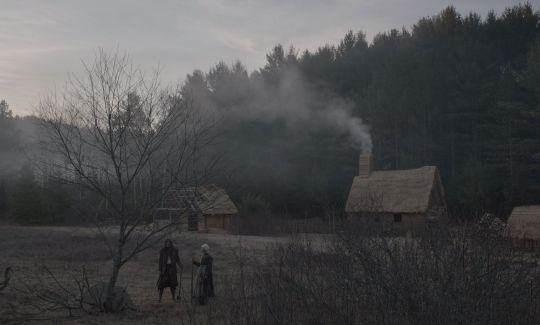
20. The Witch – I put off watching “The Witch” because every time in the past few years that people heralded the newest “great, modern horror film” (It Follows, The Babadook, etc.), I found them to be massively overrated and even a bit disappointing, even despite their good qualities. After finally seeing it, I can safely say that it’s definitely one of the best horror films in years (which isn’t saying much, but still).
The story is of an early 17th century Puritan family who get exiled from their village and set up a farm in an isolated area near the woods. Strange supernatural things start happening to them, and the movie becomes the gradual degradation of their mental states, as they start to blame and fight amongst each other, not unlike my beloved “The Thing”.
This is a very atmospheric, slow-burning kind of horror. The emphasis is on creeping dread rather than murdering attractive 20-something teenagers. For a first-time filmmaker, director Robert Eggers shows an excellent grasp of pacing, tone, and visual storytelling. Once you get used to the historical Ye Olde English manner in which the characters speak (subtitles are recommended), the writing is surprisingly quite good, with well-defined characters with clear conflicts and motivations. The acting ensemble is terrific. The whole movie is pretty much just two parents, a teenage daughter, an adolescent boy, and two young children, and they are all fantastic. Seriously, as someone who despises children (both in real life and in film), this is some of the best child-acting I’ve ever seen.
My problem with the movie is that (and this is kind of a spoiler, but it happens early in the film) I was hoping that it wouldn’t be clear whether or not the supernatural stuff is actually happening, or if the family is just losing their minds because of some clever metaphor or allegory. But no, it’s revealed pretty early on that it is actually supernatural stuff, which takes away some of the surprise and the suspense. The music is the kind of discordant “unnerving” string-heavy stuff you’d expect in a horror movie, and I often felt that silence would be much more effective during the scenes it’s used in. Also, without giving away anything, the ending is pretty silly. It wraps up the story and the character arc of the lead character (the teenage daughter), but the manner in which it does it felt kind of over-the-top. You know what, though? I honestly thought we would get some shitty, cop-out, cut-to-black ending 5 minutes earlier, so it’s not that big of a deal. I’ll take a retarded ending over a non-ending any day of the week.
“The Witch” is a horror movie for those who don’t like horror movies, and one that treats its audience with intelligence and respect, and (the last few minutes notwithstanding) is actually satisfying and builds well to its climax. As someone who doesn’t care much for horror movies, I would say that “The Witch” lives up to the hype, and is well-worth checking out. Also, best (and surprisingly similar) use of a goat since Sam Raimi’s “Drag Me to Hell”.

19. Nocturnal Animals – A problem a lot of movies have for me in particular is when they’re tonally or stylistically inconsistent, feeling like two separate movies at odds with each other. Tom Ford’s “Nocturnal Animals” is a rare example of a movie with strikingly different stories complementing each other and actually improving the end product. The film is about a LA art exhibitor played by Amy Adams, who has an unhappy personal life despite her successful professional life. One day, her long-estranged ex-husband sends her a copy of his upcoming novel, a violent thriller about a family man terrorized by hillbillies in West Texas. The movie cuts between the novel’s story, Adams’ current life, and her past relationship with the ex-husband.
Tom Ford showed with his debut “A Serious Man” that he was great at filming and telling a story about people in rich houses being sad, as he does here, but also displays an uncanny talent at filming a gritty desert-set revenge tale. The parallels between the real life story and the novel are very finely drawn, and while I found the novel sections much more gripping than the Amy Adams story, the seemingly-disparate styles and tones never clash and instead fit really well with each other, creating a movie that is more than the sum of its parts. For a fashion designer, it’s surprising how good of a writer and director Tom Ford is, and he shows that “A Single Man” wasn’t just beginner’s luck.
Also helping the movie is the fantastic cast. Jake Gyllenhaal gives one of his best performances as both the ex-husband and the protagonist of the novel story, and Amy Adams shows incredible nuance and subtlety, reminding us why she is one of the best actresses working today. Michael Shannon steals the show for me (yes, I love him and I’m biased, shut up) as a shady detective in the novel’s story. All the supporting players are great as well, even if their roles aren’t as meaty.
My main complaints are that the dialogue is sometimes silly, some of the supporting characters are pretty one-dimensional and cartoonish (Amy Adam’s current-day husband played by Armie Hammer is a distant businessman who has to go away to New York to “make that very important sale”), and that the editing is a little wonky and overdone at some minor points. I initially had mixed-feelings about the ending, feeling that it was a bit anticlimactic and expected more to happen, but after thinking about it and how it ties to the movie’s themes and character relationships, I like it a lot more in retrospect. Unlike the movie, I can’t think of a good way to wrap this review up, but I’ll say that “Nocturnal Animals” is engaging, unique, and worth checking out, so let’s move on.

18. The Wailing – Its imposing length and frustrating lack of resolution/clarity can be hard to overcome for some people, but this South Korean supernatural horror flick is (in terms of acting, writing, directing, pacing, editing, themes, and just plain scariness and dread) the best and most effective horror film in quite a while. Like a bloodier and more emotionally tormenting version of “The Witch”.

17. La La Land – Before some of you call for my beheading for placing “La La Land” this “low” on my list, let me begin by saying that I still enjoyed the damn thing. From a purely technical perspective, “La La Land” is hands-down one of the best films of the year. Damien Chazelle’s immaculate direction perfectly captures the nostalgic sense one gets from watching old Hollywood musicals. This, coupled with terrific musical numbers and game actors makes “La La Land” an easy movie to enjoy. The story, however, is where the movie is a bit shaky.
The plot is about a down-on-their-luck aspiring actress and jazz pianist who fall in love while pursuing their dreams, and struggle to deal with the reality of keeping their relationship together while their paths go in different directions. The movie goes for a contrast between a magical, cheery Hollywood musical and a more grounded, dramatic approach, but for most of the movie it doesn’t quite gel as well as one would hope. I loved the first half of the movie, where it’s an extravagant musical about aspiring artists, but halfway through, it kind of jarringly becomes a relationship drama, with hardly any musical numbers, and this part seriously drags. It’s only near the end where Emma Stone sings her big “Give me an Oscar, goddammit” number that I even remembered this movie was supposed to be a musical. It’s like the movie takes two different approaches to its material, whereas one middle-ground approach (keep the big musical bits throughout but make them gradually more dramatic) would have made the movie a lot better, in my opinion. It doesn’t help that the two lead characters just aren’t very interesting. Don’t get me wrong; Emma Stone and Ryan Gosling try their damnedest here, but it feels more like two likable actors playing parts instead of real people with flaws and humanity, a feeling exacerbated by them not even having that good a chemistry.
If you can put up with an uneven viewing experience long enough, the film rewards you with one of the best endings I’ve seen in years, one where the themes, motivations, and songs are meshed together in a perfectly bittersweet sequence that actually makes up for a lot of the film’s flaws, and the one point in the film where the aforementioned contrast between fantasy and reality is perfectly in sync with the filmmaking style. It’s here where it stops being a movie about struggling artists and becomes something grander; a film about following your dreams but realizing that life never really works out the way you intend. This and the opening single-take number are ones for the ages, and make the film worth watching all by themselves. To put it in a one-sentence review, “La La Land” is still a case of a movie musical being really good in the first half but fizzling out in the second (something which happened in every one I’ve ever seen besides the “South Park” movie), but at least it recovers well enough to leave a positive impression.
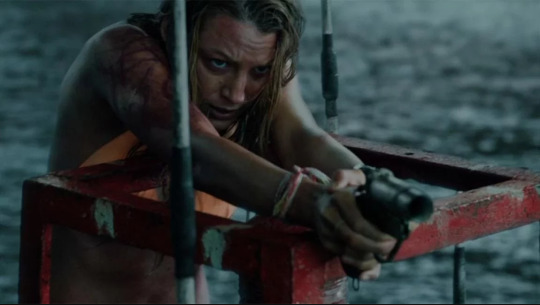
16. The Shallows – I’m as surprised as you that this “hot-girl-gets-attacked-by-shark” film is this high up on my list, but here we are. Blake Lively plays said hot girl, a medical student who travels to an isolated beach in Mexico as a sort of spiritual journey/tribute to her deceased mother, and before long gets shark’d and stranded a few hundred feet from shore on some rocks during low-tide. I thought this would be the sort of cheeky, “Piranha 3D”-esque exploitation flick, but “The Shallows” actually has enough confidence to take itself fairly seriously. The main character has intelligence and some depth and even an arc (as obvious as it may be), and she’s buoyed by Lively’s terrific and believable performance. The shark is intimidating and scary, even when it’s not onscreen. The film has a good sense of progression, gradually escalating the threat level before arriving at the admittedly over-the-top but highly entertaining finale. It has a scene of the main character performing surgery on herself, which for some morbid reason I’ve always enjoyed seeing in movies and shows. And to top it all off, there’s a seagull that befriends the main character as she’s stranded, played by an actual trained seagull whose reactions (and lack thereof) are hilarious and his role in the plot surprisingly affecting. This seems like a stupid thing to harp on about, but if there was an Oscar for Best Performance by an Animal, Sully the Seagull’s performance as Steven Seagull would easily take home the prize.
There are a few issues, like how the main character tends to speak too much to herself (i.e. the audience) about her situation, and while I didn’t hate the very end of the movie, I do wish the film had ended a minute or two earlier right when it had a perfect moment to do so, instead of going on with an epilogue. However, given the expectations I had going in, director Jaume Collet-Serra uses Blake Lively’s good looks and strong acting ability, the beautiful camerawork and setting, his storytelling skills, and an adorable seagull to blow those expectations completely out of the water (har-har).
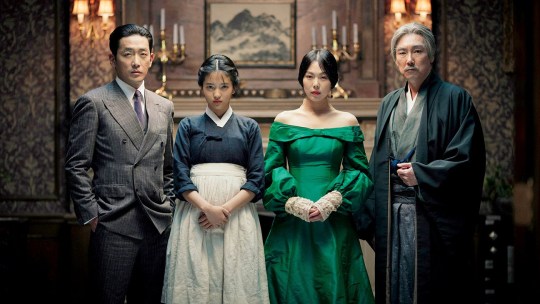
15. The Handmaiden – Gorgeously filmed, lurid, and thoroughly entertaining Korean erotic thriller with strong performances, writing, and a wonderfully dark sense of humor (an attempted hanging scene yielded one of the year’s biggest laughs for me). Strikes a good balance between artful grace and trashy pulp.
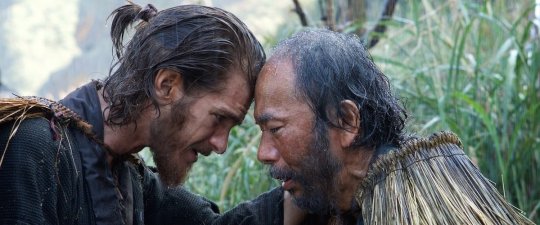
14. Silence – Of the 2016 films in which an accented and deeply religious Andrew Garfield has his faith tested by horrific violence committed by the Japanese, I like “Hacksaw Ridge” more, but this is still a powerful and deeply personal look at faith from Martin Scorsese. A challenging movie, but rewarding if you put in the effort to understand it thematically. A bit overlong and repetitive in the middle portion (though this is probably intentional), and I feel like the movie would be better if Garfield and Adam Driver switched roles, but from the moment Liam Neeson comes back into the movie, it’s outstanding to the end.

13. The Dressmaker – In the early ‘50s, a bus rolls into a tiny, rural Australian town that looks like something out of a Western. Out steps Kate Winslet, accompanied by a Morricone-esque guitar and violin, immaculately dressed and carrying a sewing machine in her case, who proceeds to light up a cigarette and say “I’m back, you bastards.”
Two minutes in and you already know you’re in for a fun movie. Winslet plays a dressmaker who returns to her hometown after being banished as a child to care for her cantankerous mother (Judy Davis), and before long, dredges up a lot of bad blood among the townsfolk that hurt and humiliated her years ago. To say any more would be to spoil the wonderful weirdness that emanates from this film. “The Dressmaker” blends family melodrama, Western, comedy that ranges from the dark to the surreal to the slapstick, campiness, tragedy, romance, and revenge. It’s a mess, sure, but it struts along with such confidence in itself and its source material that all these seemingly disparate elements miraculously work together, for the most part. It helps that Winslet and Davis are so excellent that they deftly maneuver through all these tones and keep you engaged in what’s happening. It’s tough to say what kind of person I’d recommend this to, but I’ll say this; If you’ve always wanted an Australian Western version of “Twin Peaks” where the protagonist is a female couturier instead of a male gunslinger, then “The Dressmaker” will quench that extremely particular thirst.
A note on why I consider Kate Winslet to be one the best actors in the business: SHE IS A FOREIGN ACTOR THAT NAILS A PERFECT AUSTRALIAN ACCENT.

12. 20th Century Women – Mike Mills somewhat tones down the quirkiness from “Beginners”, but still delivers a personal, heartfelt, and funny portrayal of humanity, here subverting the typical coming-of-age story of his teenage boy self-insert protagonist by focusing the film on the women in his life and how their feminist strength and independence help shape him as he grows up. Fantastic performances from Annette Bening and Greta “Love of my Life” Gerwig.

11. Moana – Beautiful visuals, wonderful music, top-notch voice acting, and a compelling and even touching story. I was pleasantly surprised by how long the movie took to set up the characters and their relationships and individual personalities before diving into the adventure. Even the stuff I normally find annoying in Disney movies (needless action scenes, cute animal sidekicks, hip modern references) are toned down here. Maui (voiced by The Rock, who has more charisma than the ocean has water, and a nice singing voice to boot) is extremely entertaining, but Moana is surprisingly a compelling character herself, someone who has aspirations and flaws and a sense of agency, as opposed to the usual dull Disney heroines who unwillingly fall into their fate before falling in love with Prince Flawless McGeneric. Great, empowering message (especially for young girls) about forging your own path in life. A million bonus points for not giving Moana a forced love interest. Another million points for Jemaine Clement as a giant, singing crab. Best animated film of 2016 by a wide margin. Disney’s best non-Pixar movie since “Lilo & Stitch”. Probably my favorite Disney Princess movie. I don’t care what anyone says; “Moana” was fucking lit.

10. Eddie the Eagle – One thing I’ve noticed about myself lately is how sick I am of “irony”. Not in the dramatic sense, but in the “replacing sincerity and any genuine feeling with some detached sense of humor” sense. I think it was the inexplicable but somehow expected rise in popularity of a meme involving a dead gorilla that did it for me. But my point is, lately I’ve been finding myself watching movies otherwise labeled as “corny” or “cheesy” by jaded, cynical and emotionally detached people, who do so just because said movies believe in their own stories without shame or self-referential humor. Well, fuck those people. They can rot in hell along with their precious gorilla.
“Eddie the Eagle” is about Michael “Eddie” Edwards, a British skier who despite having very little experience and natural talent managed through sheer determination and willpower to accomplish his dream of competing in the 1988 Winter Olympics. Eddie comes from a working class family with a loving, supportive mother and a stern, disapproving father. Despite being a talented skier, he is rejected by Olympic board members due to his uncouth and dopey nature. He realizes that he still has a chance of making it onto the Olympic team as a ski-jumper, since the British have not competed in the sport in several decades, so he runs away to Europe to start training, where he meets an alcoholic former ski-jumper-turned-snow-groomer that helps him train.
This film has pretty much every inspirational sports cliché imaginable, from the plucky loser underdog, to the grumpy mentor, to the uplifting synthesizer music, to the late moments where the protagonist is at his lowest point and wants to give up, and so on. In many cases these would be negatives. However, the movie embraces these clichés instead of trying to shy away from them, and in doing so it feels so sincere and full of heart that it actually works. You acknowledge the unoriginality, but you find yourself rooting for Eddie to succeed so much that you just don’t care. Dexter Fletcher’s direction is spirited and full of energy, the aforementioned synth music by Matthew Margeson is wonderful, and the two lead performances by Taron Egerton as Eddie and Hugh Jackman as his mentor are excellent. The movie isn’t all that historically accurate. The real Eddie Edwards himself said that “only about 5%” of the film is true, and even the tagline is “Inspired by a dream come true”, rather than “Based on a true story”. But as a Huffington Post critic said, “You can't believe most of it, but you can believe in it. That's a subtle but important difference.”
But do you want to know why this movie is so high up on my list? So many movies over the years have been praised as “emotional” and “tear-jerking” and to me ended up feeling manipulative and artificial (*cough*Room*cough*). “Eddie the Eagle”, however, with all its sincerity and heart and feel-good splendor, touched me so much that I actually cried at the end. I can count the movies that made me genuinely cry on one hand, and this is the only one that has ever made me cry tears of joy instead of sadness. If the ending scene at the airport doesn’t melt your heart, then congratulations on not having one.

9. Hunt for the Wilderpeople - Due to my continual disappointment in my usual preferred genres of film in 2016, I started to branch out a bit and check out films I otherwise normally wouldn’t, one of which is New Zealand coming-of-age comedy drama “Hunt for the Wilderpeople”. The plot is about a young juvenile delinquent boy and his grumpy foster father who, due to odd circumstances, find themselves hunted by the law and escape to “the bush”, the vast New Zealand forests. We follow them as the two survive, get into various misadventures, and face off with an obsessed child services worker. To reveal any more would be to spoil this wonderful movie. Suffice it to say I enjoyed the hell out of it. Rarely do you encounter a movie that does adventure, buddy comedy, or tragic drama this well, let alone one that does all three, while at the same time showing interesting aspects of Kiwi culture and the beautiful landscape without feeling like a travelogue. The boy (Julian Dennison) starts off as annoying, but this is intentional rather than the fault of bad acting, and he not only grows on you but also shows a good deal of comic timing and emotional range. Sam Neill as the grumpy foster dad gives a career-best performance, showing the kind of depth I didn’t expect from someone who I think I’ve only ever seen in the “Jurassic Park” movies. Honestly, I recommend this film to pretty much anyone (that has access to subtitles). It’s funny, touching, creative, and lovely to look at. Between this and “What We Do in the Shadows”, writer/director Taika Waititi has given me just the slightest bit of hope that “Thor: Ragnarok” will actually be good.
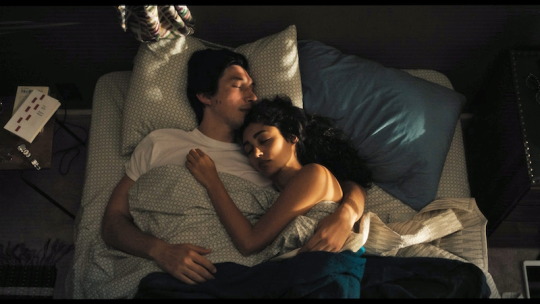
8. Paterson – Wonderfully understated, warm, and compassionate ode to the passion and creativity found in everyday life, making even the smallest mundanities feel profound and moving. No story arc or big dramatic moments to speak of; just the story of a quiet but observant bus driver/poet and his seemingly unremarkable but, well, poetic life. The relationship between Adam Driver and his wife (Golshifteh Farahani) is one of the most beautiful I’ve ever seen in a movie. Also; casting Adam Driver as a bus driver? Bravo, Jim Jarmusch.
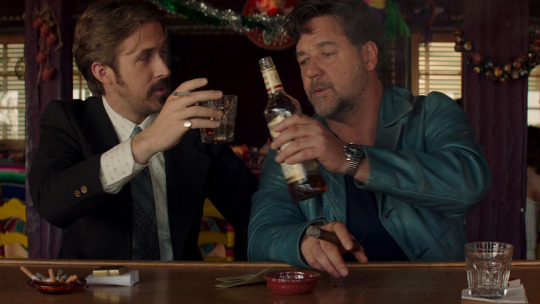
7. The Nice Guys – I can’t believe I used to not care for Ryan Gosling. Granted, for the longest time the only movie I’d seen him in was “Drive”, and it’s hard to take someone seriously as an actor when all the role asks of someone is to stare silently for uncomfortably long periods and occasionally hit people. But nonetheless, in recent years the guy has done phenomenal work and completely won me over as an actor, culminating in Shane Black’s “The Nice Guys”, where he gives his best performance to date. He is shockingly funny and provides not only a lot of the laughs in this movie, but also a good deal of its heart. He’s gotten a lot of awards attention for his role in “La La Land”, but to me this is the highlight of his career so far.
Gosling plays an alcoholic, bumbling private detective and single father who teams up with the low-rent enforcer who broke his arm (Russell Crowe) to crack a major conspiracy involving a missing girl and a dead porn star. Tagging along for much of the mystery is Gosling’s teenage daughter, played by Angourie Rice in one of the best child performances I’ve ever seen in a movie (damning with faint praise, but still, give her credit), easily holding her own in scenes with Gosling and Crowe, despite a few awkward line deliveries. The three leads are great and have excellent chemistry with each other and with the strong supporting cast, helped along by Black’s hilarious dialogue, irreverent sense of humor, and his continuing growth as a director. I already harped on this in previous reviews, but it’s really refreshing to see a comedy that actually sets its jokes up before giving them a good payoff, especially one where some setups aren’t initially obvious (a seemingly throwaway story about Richard Nixon ended up giving me one of the biggest laughs of the year later on).
There’s kind of a lack of urgency to the mystery that makes the pacing a bit lethargic. I didn’t mind it much because the characters are so likable that you don’t mind spending time with them, but it’s worth mentioning. While there’s some character conflict and growth, I wish it tied into the plot a bit more. The lack of a clear antagonist for the first half of the movie also hurts. There are a lot of jokes and visual gags, and while most work, a few do fall flat. I feel like an extra rewrite and some tighter editing could fix most of these problems, and none of them are by any means a deal-breaker.
It feels weird to call this film “original”, since it’s more or less the same film Shane Black’s been making for the past 30 years, but in an increasingly bland world of mainstream filmmaking, it’s so refreshing to see a unique voice like Black do his own thing with a great cast and a solid budget. It’s a damn shame that a film which should’ve led to some sequels instead just barely made its’ production budget back. Put it another way; if you complain about a lack of originality in Hollywood but still paid money to see the latest superhero flick instead of “The Nice Guys”, please dip your head into a bucket of wet cement until the bubbles stop.

6. Hacksaw Ridge – I’m willing to go on record and say that “Hacksaw Ridge” is probably the most violent movie I’ve ever seen (at least the most violent since the last Mel Gibson movie). Considering this, only Mad Mel can make such an insanely violent film while also telling a moving story about one man’s faith and adherence to pacifism. The story is about Desmond Doss, a conscientious objector and pacifist who wanted to serve his country as a combat medic, and whose extraordinary rescue of over 70 soldiers during the Battle of Okinawa became the stuff of legend and earned him a Medal of Honor.
The movie has kind of a typical biopic structure, showing his early years as a troublesome lad who finds meaning in life with Christianity, to his young adult days where he tries to romance his impossibly attractive later-wife, before moving to the boot camp scenes where he’s persecuted by others for his refusal to pick up a gun, and finally to the war scenes. The transition between corny but solid, old-fashioned melodrama (or MEL-odrama) and the incredible, surreal, horrific war stuff may sound jarring, but in a very smart move, Gibson opens the film with a slow-motion montage of combat with a narration from Doss. This seems kind of clichéd, but it sets your mind up to expect the stuff you’ll see later, while at the same time taking away none of the impact.
Contrary to what some may think about the film and of Gibson going in, it’s not one of those shitty “Christians are good, others suck” films that do remarkably well in the southern states. The subject of the film is deeply religious and the film has its fair share of unsubtle Christ-like imagery, sure, but not only does it not beat you over the head with it, it even feels earned after seeing what Doss is put through. Plus, if anything, it’s less about the strength of faith and more about sticking to your convictions even when the whole world tests you. Plus, it’s refreshing for a war movie to heroically portray a man who saved lives instead of taking them.
Despite being away from the director’s chair for a decade, Gibson has lost none of his storytelling prowess or his penchant for striking imagery. The period and technical detail is fantastic (during one scene where you see through the scope of a Japanese sniper rifle, the film even got the scope right). Despite having to fill the late, great James Horner’s (who couldn’t do the film due to his unfortunate death in 2015) shoes, Rupert Gregson-Williams surprisingly turns in one of the strongest musical scores of the year. The mostly-Australian cast is excellent, with Andrew Garfield giving a career-best performance as Doss (at this point, I forgive him for “The Amazing Spiderman 2”), as well as strong supporting turns from Vince Vaughn as the funny/tough drill sergeant, and especially from Hugo Weaving as Doss’s PTSD-ridden WWI veteran father. Weaving genuinely looks like a man who died in the trenches in France but whose body still returned home, turning to booze and anger to make him forget the trauma he experienced.
I would say that Hacksaw Ridge has all the makings of a great film but is slightly held back by some story choices. The film kind of ends shortly after Doss’s heroic exploits with some standard biopic text and interviews from his real-life former comrades. It’s fine, but I think it would have had more impact to first show Doss returning home and reuniting with his wife and family, considering how prominent the theme of family was in the film. Also, there is one scene late in the movie involving Japanese officers, which I won’t spoil, but it feels forced and EXTREMELY unnecessary (I guess Gibson just has a thing for beheadings).
Still, considering how good this film is overall and how well it’s being received, I’m happy to report that Mel Gibson is no longer persona non-grata in Hollywood, and that I absolutely look forward to whatever he’s making next. Welcome back, Mel. We missed you.
Note: Something I thought of after watching “Hacksaw Ridge”; Mel Gibson could totally direct a “Mad Max” film.
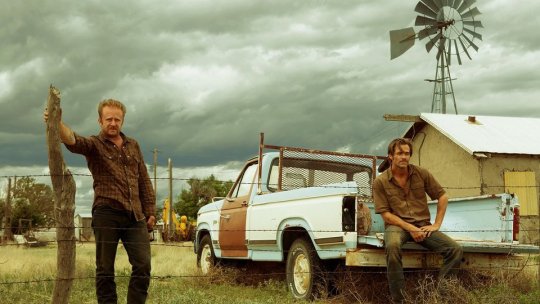
5. Hell or High Water - On an early Texas morning, a two men rob a pair of branches of the Texas Midlands Bank. While not without a few hiccups, the robberies go smoothly. The two men are siblings; calm and smart divorced father Toby (Chris Pine), and his loose-cannon ex-con brother Tanner (Ben Foster). They are trying to raise enough money to save their family farm by paying off the foreclosing bank with its own stolen money, while being hunted down by Texas Rangers Marcus and Alberto (Jeff Bridges and Gil Birmingham), the former close to retirement. There are still a number of branches they need to rob in order to raise the needed amount. What ensues is one of the most mature and intelligent thrillers I’ve seen in a long time.
There is no black or white. Just two sides of the law. We understand both sides, and the motivation of each man. While the robbery scenes are thrilling and gritty, the movie actually shows a tremendous level of restraint. The pacing is deliberately slow, but the film is so well-made and well-written and so confident in itself that it never becomes boring, and it builds exceptionally well to its grip-you-by-the-balls climax. The movie spends a lot of time with the characters talking, with dialogue that feels both realistic and entertaining. The extremely underrated TV show "Justified" has instilled in me a joy in hearing Southern people talk shit to each other, and the movie doesn't let me down in that regard. The rural, neo-Western setting is wonderfully atmospheric and does a good job conveying how tough life can be in such a place (with a noteworthy supporting performance from Katy Mixon as a waitress who refuses to give back a large tip of stolen money to the Rangers).
Even though his character is pretty much a less alcoholic and more down-to-earth version of his Rooster Cogburn from the Coens’ “True Grit”, Bridges still impresses with a soulful and highly entertaining performance. Similarly, while Ben Foster feels a bit typecast as the “wild man” brother, he still knocks it out of the park with his confidence and screen presence. The biggest surprise is Chris Pine, tuning down his smirky charm and turning in his best performance to date as a man whose cool-headedness masks his desperation.
If I had to think of a flaw, it's that the film has a slightly-annoying over-reliance on licensed country songs in the first half of the movie...really, that's all I can think of. The slow pacing might be a turnoff for some people (some extremely thick people who very likely have ADHD and are virgins), but it pays off so well that I can't even consider it a problem for anyone with a three-digit IQ. If you are tired of action movies or thrillers being dumb, this is the movie for you. If you are tired of smart movies being dull, this is the movie for you. "Hell or High Water" is a diamond in the rough that is 2016, and deserves your attention.
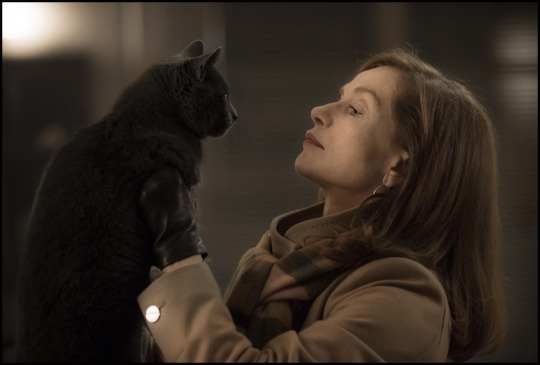
4. Elle – I saw this movie solely because Paul Verhoeven directed a sizable portion of my childhood (Robocop, Total Recall, and Starship Troopers), and he has enough goodwill based on that alone that I’ll check out anything he makes. While his European films are noticeably different from his American action classics, one thing that hasn’t faltered is his skill as a director and unique voice in telling provocative stories. “Elle” certainly has one hell of an opening. A wealthy middle-aged woman named Michèle is attacked and raped in her home in France. After the intruder leaves, Michèle calmly collects herself, cleans herself and her home, and goes to work the next day as if nothing is wrong. The rest of the movie is about her conducting her own investigation into finding out who attacked her as we learn about her feelings and why she doesn’t notify the police, as well as her complicated relationships with her friends, neighbors and family.
I can definitely see a lot of people getting offended by this movie’s depiction of rape and its consequences on the main character, but considering how complex and unpredictable human beings can be, this is one of the most bracing, raw and honest depictions of the subject I’ve ever seen. Put it simply, this isn’t your typical rape-revenge film. The excellent writing and Verhoeven’s strong command of the material and his cast elevates it beyond what I thought possible. The characters are very well-defined, with all their own quirks and needs and insecurities, and despite how uncomfortable the film can be, it’s also surprisingly very funny in how it presents them and their relationships with each other, especially during a fantastic Christmas dinner scene where all the characters and their animosities come together. There is a lot of gossiping, resentment, passive-aggressiveness and cuckoldry on display (it’s a French movie, so no surprise there). The film is certainly lurid, but everything from the story and performances to the themes and subtext is done so well that you can’t stop watching. At no moment during its two-and-a-half-hour running time was I bored.
“Elle” is a film I wouldn’t recommend to everyone due to its’ length and subject matter, but thanks to the strong writing, Paul Verhoeven’s confident direction, and a stunning lead performance from Isabelle Huppert, this a bold, gripping, and surprisingly entertaining film that is absolutely worth going out of your way to see if you can stomach it. Plus, there’s a really cute cat.
With that out of the way; please come back to America and make another gory, over-the-top action film, Mr. Verhoeven. Hollywood needs you more than you need it.
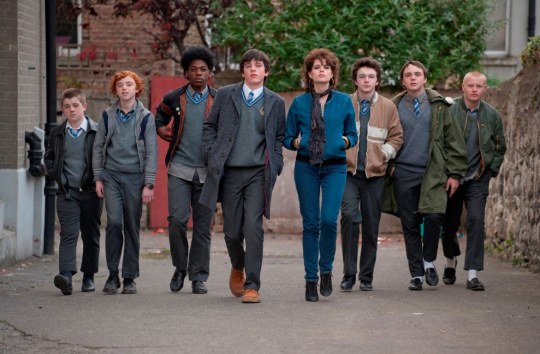
3. Sing Street – An Irish lad from a broken home in 1985 Dublin gets transferred to a rough, inner-city school. Soon he meets a mysterious girl hanging around outside the school, and in an effort to impress her, asks her to be a model in a music video for his non-existent band.
What follows is a coming-of-age story about artistic expression and love where the boy gathers anyone that can play an instrument (including the funniest part of the movie where they try to recruit “probably the only black guy in Dublin”), starts making music and videos, and slowly starts bonding with the girl. It’s tough to make a movie set in 20th century Ireland feel optimistic, but writer/director John Carney deftly maneuvers between comedy and drama, makes the film simultaneously fantastic yet grounded, making the story of falling in love and following one’s dreams feel believable and easy to root for.
From the tagline “Boy meets girl. Girl unimpressed. Boy starts band”, you can probably guess the general progression of the plot. This, coupled with the fact that I don’t like coming-of-age stories, or musicals, or Irish people*, means that this film was facing an uphill battle from me. Imagine how goddamn good this film must be that it’s number 3 on my list this year. A cynic would say that it doesn’t face much competition from an unremarkable year for film like 2016, but “Sing Street” is a wonderful ode to the power of music and young love that would be great in any year, and I defy you to watch it without a smile on your face. Basically, if you possess a heart, a soul, a dream, a love for music, or a pulse, I cannot recommend “Sing Street” enough.
*kidding. I love you, you pale, swear-y, chip-shop bombing drunkards.

2. Star Trek Beyond – After a strong start to a reboot of the storied franchise with 2009’s “Star Trek”, the series took a nosedive with “Star Trek Into Darkness”, the woefully misguided attempt to make the series dark and gritty. Because of this and the new director being Justin Lin, a man who has made four (well, three and a cameo) films about Vin Diesel sleepily growling about family in between scenes of supercars performing Cirque du Soleil acts, I wasn’t all too excited for the new entry, even though it’d be written by talented comic actor and well-known nerd Simon Pegg. Who would have thought that Pegg and Lin would have been the ones that saved not only 2016 from being a shit year for blockbusters, but also the soul of the “Star Trek” franchise?
The plot is about Kirk and the Enterprise crew getting stranded on a remote world after being attacked by a mysterious warlord while investigating a missing ship. It’s a slick and self-contained adventure, making it feel like a long and big-budget episode of the series in the best possible way. I don’t want to imply that this is the “Star Trek” of yore. It’s still a big, over-the-top space action film. But it has something that the previous two films (especially Into Darkness) lacked; spirit. The spirit of discovery, of exploration, of optimism. That despite the dangers in the galaxy, any problem can be overcome as long as all the species work together. Most importantly, it has an emphasis on character, actually slowing down at times to let them breathe and talk and joke with each other (y’know, like they’re people or something, and not just plot-devices). There’s a wonderful little scene at the start where Kirk and Bones share a drink to toast Kirk’s deceased father, and the tributes to the gone-but-not-forgotten Leonard Nimoy and Anton Yelchin were beautifully done.
It’s remarkable how well Lin and Pegg capture this “Star Trek” spirit while still making an exciting, blockbuster action film. Lin brings his A-game to the action scenes, making them fun, creative, and natural as a story progression. You always understand why the action is happening, as opposed to a random fight being thrown in for its own sake. There’s a certain scene later in the film where a ship has to take on a swarm of smaller enemies with a familiar musical cue, and I cannot remember the last time I ever felt so much hype and childish glee in a movie scene.
I guess the villain is the same generic normal-guy-who-was-betrayed-and-wants revenge that the past two films had, but between the still-excellent cast (newcomer Sofia Boutella steals the show as an alien warrior/scavenger that Scotty meets), a strong soundtrack, awesome visuals, a fun story, involving action scenes, and that warm “Star Trek” feel to it, “Star Trek Beyond” feels like a jolt to the heart of a series that was in danger of becoming lost to soulless, studio-driven blockbuster territory. Assuming there’s more to this series of films, I cannot wait to see where the franchise boldly goes from here.

1. Free Fire – This is the most fun I’ve had in a theater since “Mad Max: Fury Road”. I wasn’t a huge fan of Ben Wheatley’s previous films, but among the material I didn’t really care for, I saw an undeniable talent in his work. Here, it’s like he used his powers to make a movie precisely for me.
The film is about an arms deal that takes place in a warehouse between two groups of criminals that quickly gets out of hand after shots are fired in the exchange. The remaining 70 minutes of this 90-minute long movie is basically one really long shootout as everyone picks sides, betray each other, and get increasingly wounded while rarely ceasing their shit-talking. Think “Reservoir Dogs” as a comedy of miscommunication. In an amazing feat of filmmaking, Wheatley makes sure that this lengthy shootout set mostly in one large room isn’t boring for a second. His smart, gradual escalation of events punctuated with a number of “holy shit” moments and set pieces, held together by excellent editing, keeps the film exciting and darkly funny throughout. In between the big moments, characters take pause to hurl expletives at each other and ponder their own situation as they desperately try to get out of it, adding up to people you care about and are interested in even if they’re all dicks. This is a brilliant example of how important pacing and characterization is to a film, especially to one with so little plot.
Also helping is the hilarious banter, delivered by a wonderful and colorful cast of characters played by a small but absolutely stellar cast. Everyone is great and play their characters perfectly, with a standout performance by Sharlto Copley as an unhinged, self-absorbed arms dealer who causes much of the conflict in the film. I knew I’d love him as soon as a character says “Vernon was misdiagnosed as a child genius and never got over it.” I also want to mention the sound design, which is some of the best in recent memory, with every bullet fired feeling like a loud jolt to one’s system. The writing is highly enjoyable on a superficial level, and even carries a bit of depth with the shootout being a clever allegory for human nature and just generally what happens when idiots own guns.
“Free Fire” is by far the best movie I saw this year, and when it gets a theatrical release, I implore you to go see it. The only complaints I can think of are that the ending is just alright, and after a certain point you start to wonder where some of the characters keep getting their ammo from. Time will tell if this film stands up to repeated viewings, but this was easily the funniest, craziest, and most entertaining film I’ve seen all year. Yes, my favorite movie of 2016 is a 2017 movie in which characters argue and shoot each other in a dirty warehouse for 90 minutes. Cinema isn’t dead yet.
The “30 and Still Living in Parents’ Basement” Award for Biggest Disappointment
Nominees:
· Jack Reacher: Never Go Back
· Jason Bourne
· Passengers
· Rogue One: A Star Wars Story
· Warcraft
Runner-up:
Rogue One: A Star Wars Story
Winner:
Passengers
The “Clever Marketing” Award for Best Tagline
Nominees:
· Elvis & Nixon – “On December 21st, 1970, two of America's greatest recording artists met for the first time.”
· Free Fire – “All guns. No control.”
· London Has Fallen – “Prepare for bloody hell”
· The Dressmaker – “Revenge is back in fashion”
Runner-up:
The Dressmaker
Winner:
Elvis & Nixon
The “Postcore Avantwave” Award for Best Film Score
Nominees:
· Bear McCreary – 10 Cloverfield Lane
· Justin Hurwitz – La La Land
· Mark Mancina, Lin-Manuel Miranda, Opetaia Foa'i - Moana
· Matthew Margeson – Eddie the Eagle
· Michael Giacchino – Star Trek Beyond
· Rupert Gregson-Williams – Hacksaw Ridge
· Shirō Sagisu – Shin Godzilla
Runner-up:
Mark Mancina, Lin-Manuel Miranda, Opetaia Foa'i - Moana
Winner:
Bear McCreary – 10 Cloverfield Lane
The "I'm Glad We Decided to Keep It" Award for Best Child Performance
Nominees:
· Angourie Rice - The Nice Guys
· Auli'i Cravalho - Moana
· Ferdia Walsh-Peelo – Sing Street
· Harvey Scrimshaw - The Witch
· Julian Dennison - Hunt for the Wilderpeople
· Kim Su-an – Train to Busan
· Lucas Jade Zumann – 20th Century Women
Runner-up:
Julian Dennison - Hunt for the Wilderpeople
Winner:
Angourie Rice - The Nice Guys
The “If Only the Rest of the Movie Was This Good” Award for Best Scene
Nominees:
· Athens riot – Jason Bourne
· Beach drowning – Silence
· Captain America and Winter Soldier vs. Iron Man – Captain America: Civil War
· Car chase – Operation Avalanche
· Christmas dinner party – Elle
· Climactic robbery/shootout/getaway – Hell or High Water
· Desmond’s rescues – Hacksaw Ridge
· “Drive It Like You Stole It” – Sing Street
· Epilogue – La La Land
· Entering the ship – Arrival
· “How Far I’ll Go” – Moana
· Police station – Manchester by the Sea
· Sabotage – Star Trek Beyond
· The un-destruction of Hong Kong – Doctor Strange
· The 90-meter jump – Eddie the Eagle
· Quicksilver and the exploding mansion – X-Men: Apocalypse
· Warehouse rescue - Batman v Superman: Dawn of Justice
Runner-up:
Police station – Manchester by the Sea
Winner:
Sabotage – Star Trek Beyond
The “Pig in Lipstick” Award for Prettiest Movie
Nominees:
· A Bigger Splash
· Batman v Superman: Dawn of Justice
· Doctor Strange
· Hail Caesar!
· Kubo and the Two Strings
· La La Land
· Moana
· The Handmaiden
· The Love Witch
Runner-up:
The Handmaiden
Winner:
Kubo and the Two Strings
The “Premium Meth” Award for Best Chemistry
Nominees:
· Adam Driver and Golshifteh Farahani - Paterson
· Casey Affleck and Michelle Williams – Manchester by the Sea
· Chris Pine and Ben Foster – Hell or High Water
· Gerard Butler and his knife – London Has Fallen
· Jeff Bridges and Gil Birmingham – Hell or High Water
· Michael Peña and Alexander Skarsgård – War on Everyone
· Ruth Negga and Joel Edgerton – Loving
· Ryan Gosling and Russell Crowe – The Nice Guys
· Ryan Reynolds and Morena Baccarin – Deadpool
· Sacha Baron Cohen and Mark Strong – The Brothers Grimsby
Runner-up:
Michael Peña and Alexander Skarsgård – War on Everyone
Winner:
Casey Affleck and Michelle Williams – Manchester by the Sea
The “Healed Broken Bone” Award for Best Cast
Nominees:
· 20th Century Women
· Captain America: Civil War
· Everybody Wants Some!!
· Fences
· Free Fire
· Hail, Caesar!
· Love & Friendship
· Sing Street
· Star Trek Beyond
· The Magnificent Seven
Runner-up:
Sing Street
Winner:
Free Fire
The “Convincingly Faked Orgasm” Award for Best Performance
Honorable Mentions:
· Andrew Garfield – Hacksaw Ridge
· Ben Foster – Hell or High Water
· Blake Lively – The Shallows
· Chris Pine – Hell or High Water
· Emma Stone – La La Land
· Hugo Weaving – Hacksaw Ridge
· Joe Alwyn – Billy Lynn’s Long Halftime Walk
· Joel Edgerton – Loving
· Judy Davis – The Dressmaker
· Kate Beckinsale – Love & Friendship
· Kate Winslet – The Dressmaker
· Kwak Do-won – The Wailing
· Mahershala Ali - Moonlight
· Ruth Negga – Loving
· Sam Neill – Hunt for the Wilderpeople
· Viggo Mortensen – Captain Fantastic
· Woody Harrelson – The Edge of Seventeen
Nominees:
· Adam Driver – Paterson
· Alden Ehrenreich – Hail, Caesar!
· Annette Bening – 20th Century Women
· Casey Affleck – Manchester by the Sea
· Denzel Washington – Fences
· Gerard Butler – London Has Fallen
· Greta Gerwig – 20th Century Women
· Isabelle Huppert - Elle
· Jeff Bridges – Hell or High Water
· John Goodman – 10 Cloverfield Lane
· Michael Shannon – Nocturnal Animals
· Michelle Williams – Manchester by the Sea
· Ralph Fiennes – A Bigger Splash
· Rebecca Hall – Christine
· Ryan Gosling – The Nice Guys
· Ryan Reynolds – Deadpool
· Sharlto Copley – Free Fire
· Tom Bennett – Love & Friendship
· Viola Davis – Fences
Runner-up:
Gerard Butler – London Has Fallen
Winner:
Ryan Gosling – The Nice Guys
In regards to my final award:
The whole “Fuck 2016” thing has been done to death, albeit not undeservingly, so this’ll be my only word on the matter. A lot of us had a rough year, dealing with political strife, global conflict, environmental issues, personal problems, celebrity deaths, “Suicide Squad”, etc. Even in film, 2016 has felt like a bit of a downer, with many films I was looking forward to letting me down. However, there have been quite a few gems, especially in the latter half of the year, and a good number of these are off the beaten path, ones I actively searched for to find and ones I gave a shot even if they’re the type of thing I wouldn’t normally see.
My point is, we have to make an effort to get the good out of life. You can still find some gems while wading through a river of shit (which you’re going to wade through anyway), and I’m not just talking about movies. Try something you normally wouldn’t. Try to pick up a new hobby. Make some personal time for yourself, even if you’re swamped with work or school. Start exercising if you don’t already (hell, try yoga). Don’t just accept that life is shit; do something to make it less shit. Always strive to better yourself, because while there’s no such thing as perfection (unless you’re Michael Shannon), it doesn’t mean we shouldn’t reach for it.
The mere fact that you’re reading this means that you’re actively trying to de-pleb yourself, or maybe it’s because you love me or maybe I just make you laugh sometimes. In any case, thank you for reading this year-in-review. As it has been for the past two years, writing this was fun and therapeutic. I wish you all luck in seeking happiness (and good taste in film, like mine), and for those of you who have a bad day somewhere on that journey, film is always there for you, including the following films which can cheer one up even on the rainiest days.
The “Ancient Indian Burial Ground” Award for Film Most Likely to Raise Your Spirits
Nominees:
Eddie the Eagle
Sing Street
Hunt for the Wilderpeople
Everybody Wants Some!!
Moana
Runner-up:
Sing Street
Winner:
Eddie the Eagle
2 notes
·
View notes
Text
(Dis)Content Creators

Youtubers, 2014’s lasting models of Harrasment, and how the internet is suddenly a lot more left than you’d think.
(Note: pardon the messy mishmash of Unicѻde characters here and there, I’d rather not be part of the witch hunt for masturbatory mass-debαting, and I find flying under the S.E.O. radar helps that endeavor.)
Recently, Јѻntroп’s been acting the right dick. He’s never been the smartest cookie, and it’s not his paid job to be the shining example of internet public figuredom. But people are kinda reasonably pissed about his “whats wrong about locking refugees out lol” tweetstorm of late. And a lot of it, I’m sure, is a kind of disappointment. There’s a lot of people out there who look up to him, know his life story, and I guess for some reason expected more compassion from him.
To be honest, this isn’t super surprising to anyone who’s familiar with the circles of the Youtube creators. While there’s lots of crossover, and some inevitable bickering here and there, you can roughly feel out the corners of the map.
There’s a contingent of mostly fairly funny and talented animators who met on Nҽwgrѻunds and ended up on Youtube (which ended up sucking for said animators). It’s a tremendous shame that the general humor of the group turned so obsessively toward “Fҽmιnαzϊ SЈש censorship” and anti-sheeple insular rhetoric. But nonetheless, they and Јѻn ended up being quite close knit, and yeah, of course he was going to be a bit emboldened.
Јѻn has always been a bit politically green – I remember him in a podcast (might have been one of the old TGS Co-Optionαl podcasts) where he was trying to defend his claim that people shouldn’t get mad about videogame representations of women, with a woman present. It was like watching a cat fight its collar. He was a consequence free child of the 2007 internet age where “rape” and “retarded” were words to throw out for shock effect. He ended up on rҽddιt, the magical internet island of lost boys who never grow up. Women aren’t oppressed, racism is over, yadda yadda.
In turn, a symbolic partnership with Sӑrgѻп of Ѧkҟӓd, a non-face of gӑṃеrgatҽ, was nothing special. It doesn’t take much to join in the circle jerk; tweet about cultish sheeple being racist toward MEN and you’ve earned yourself a seat.
Still, how dangerous can the partnership of such a pop icon and a chin stroking self-acclaimed genius of a cock get? How will this play out?
To be honest, I think it’s been playing out since it began. It got us into this political mess, and remains the swarming gadflies of twitter we know and love today.
MECHANISMS OF THE GATE
This cybercultural partnership between pop culture and the rҽichwing should remind us about the ways in which Gӑṃеrgatҽ still affects the current political climate, specifically in online spheres. Notably, it’s interesting to see the cultural attitudes remain the same. Even in the face of finding something absolutely ridiculous to defend, the urge to take the pseudo-philosophical discѻurse to fucking prove intellectual superiority™ is apparently too delicious.
During my Bachelor, I researched that 2014 pissbaby fiasco to death. I would work it in to whatever essay I could, and for a while compulsively hoarded every available peer- reviewed article on online-shittiness-culture I could find. Something I wrote a lot about when I was filtering through gӑṃеrgatҽ’s language was not only a unified lexicon of insult, posturing, and argumentation, but a specific frameworks and ideologies of rationality.
Almost all of gӑṃеrgatҽ was hinged on insisting on two things:
-Race doesn’t exist, it’s not a thing, so stop making it a thing. If you’re talking about race, then you’re using PoC as an argumentative crutch, and surely no better than a racist. Erasure must occur, because I don’t want to have to defend my view that whiteness is normalcy.
-Gender does exist, it’s binary, and all common-sense differences between genders are rooted in biological fact. For example, women don’t play real video games because their biological drive for empathy stops them from shooting baddies.
(Queerness, and expression thereof, are often side stepped. Usually lumped into the race category - “gay people have nothing to do with it”. Sometimes lumped into the gender category, as often non-normative heteromasculinity is seen as performed.)
Regarding race, it is an argument of who belongs. Regarding gender, it is an argument of who is superior. These tenets of social structure in the world of “whoever debates wins” are still smeared across the comment sections of the world today. It’s only been two and a half years. The people who felt empowered in the gӑṃеrgatҽ movement will hold these attitudes close.
It appears to me that the biology-backed “common-sense” ideologies regarding gender superiority remain at wild play here. It’s a language of caricatures, and the SЈש is a woman.
The ideological transposition seems to go like this:
The woman, who lacks rationality, and is more prone to emotional outbursts of empathy. is not endowed, biologically, with the clearheaded, objective rationality of men. Therefore, even their empathy is comparatively feigned and weightless, and like the difference between a three year old crying over spilt milk vs. a grown man’s grievance over the death of a loved one.
The thing about worldviews like this is that once the first egg becomes a chicken, it doesn’t take long for the chicken to lay an egg.
Where maybe at first, the SЈש was a kind of woman, but types and tokens blur. All women become likely SЈשs. Women become SЈשs when they have a point that doesn’t align with a man. Eventually, the SЈש is just the woman out of line, refusing to virtuously lick the philosopher-king’s boots and parrot their objectivities.
But this accusation would be an affront to a gӑṃеrgatҽ-minded uberṃҽinsch! Pure sexism actually! Who’s talking about gender here!? We were only talking about how SЈשs are unreasonable! YOU’RE the one being sexist.
You can trace some of that same DNA of the Discѻurse™ around the refugee crisis. As soon as you reframe/move the goalposts of a racist problem to a Nationality problem, then you cannot by definition be islamophobic, because you’re not talking about humans anymore. You’re talking geography. Even though you did just totally say something incredibly racist, it doesn’t count cuz the tweet was deleted.
I’ve seen the term “Virtue Positioning” being tossed around recently. It’s interesting to note that as the subjects for debate get bloodier and messier and death counts become necessarily attributed to it, the goobermeinsch’s rebuttal is that empathy is sidestepping the issue. Who cares if people die, the important part is I’m taking you to town in INTELLECTUAL CHESS! WHOO! (It matters not that I will only frame the debate in ways where I win).
The positioning that’s actually going on is ideological frameworks of gender being set up so that the left is female, the right is male, and therefore the right wins. It’s what fuelled gӑṃеrgatҽ in 2014, and I guess the tactic’s effective enough to keep around.
“WHATEVER-DUDE” SOLUTIONS
What do you do when confronted then? I feel it would be pointless bringing this similarity up and leaving it hanging. If there’s been two years of resisting this harassment, then there’s gotta be some methods to employ.
When you’re asked to play house-rules calvinball, you know that you’re not going to win any medals. What can debate possibly hope to accomplish right now?
“Whatever dude. Have a good life.”
We are not here to debate. We are here to donate. We are here to protest. We are here to resist.
(DISCLAIMER: I mean, for god’s sake listen to the people who have legitimate problems and call-outs. Intersectionality is not divisive, it is the all-too-frayed twine that will unite people together, and everyone resisting would do well to strengthen our bonds with allies by throwing out our fuckhead perceptions about immutable goodness of the ego.)
The march does not halt to win over a “well AAAAaactually...” Your arguments belong with the demanding of accountability. Your energy should be spent doing what you can to help those who you can help. Internet progressives, just do your thing. Be there for the oppressed, and win the day - or as many days you can.
The Right’s not winning people over right now – when you get what you want out of a scam, you don’t hang around and try to patch up friendships. The thing about supporting and defending fascism is that before long, they turn you into an outsider. It doesn’t matter who you are, if your eyebrows are a bit too thick you’ll become a muslim. Your sexual deviancy makes you dangerous. Your chronic illness makes you a leech. Could just be a wrong place, wrong time. No matter how many boots you lick, they will step on you.
Sooner or later, people will see the trouble they’re in. They’ll convert. The Right’s numbers are always borrowed. Until that point, we’re gonna look real cultish to the cult. That’s how cults work: the world’s gone to shit and you’re the only “sane” ones.
YOUR HEROES ARE LEFT
There’s at least one silver lining to this cross-section of internet personality and this general craziness: a good majority of Youtube personalities know what’s up. In the last few weeks, I’ve seen a lot of people drop the apolitical guise. It’s not that they were centrists before - talking politics was just dodgy in the industry. But there’s a healthy amount of “fuck it” right now, and I’m happy for all of those sore, long-bitten tongues. I’m glad there’s enough of a contingent of generally older, 20+ viewers and consumers and patrons to send words of support and relief that their podcast hosts aren’t ทαzi sympathizers. There’s still a wall of sludge, but skins are being quickly hardened.
I’m most happy for all the kids. All of those 15 year olds who thought they were on the culture war’s hateful winning side, to wake up one day and their twitter feed is filled with distressed, active, and empathetic people. Marching and resisting.
Although it’s certainly not the entire story, a lot of these personalities are looked up to. They are the adults who “get” videogames, who talk about Anime and comic books – they’re 2017’s equivalent to the cool record shop owner in the 70’s who introduces you to punk.
I hope this “fuckit” storm shattered a lot of assumptions, and I hope that it spurs a reconsidering of the places where the good stuff on the internet comes from. (Hint: it’s not hatred).
0 notes